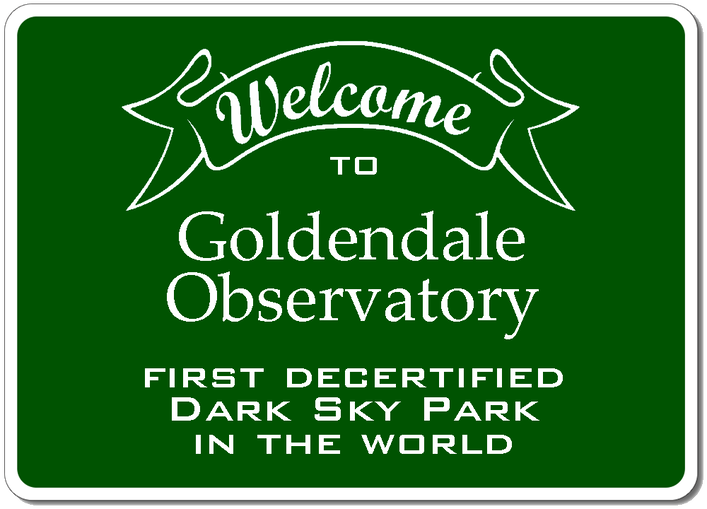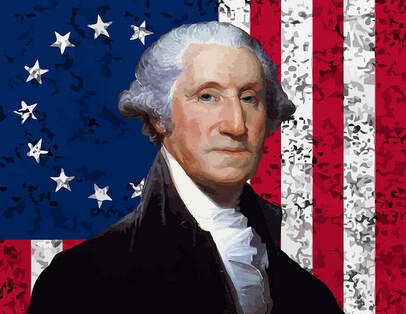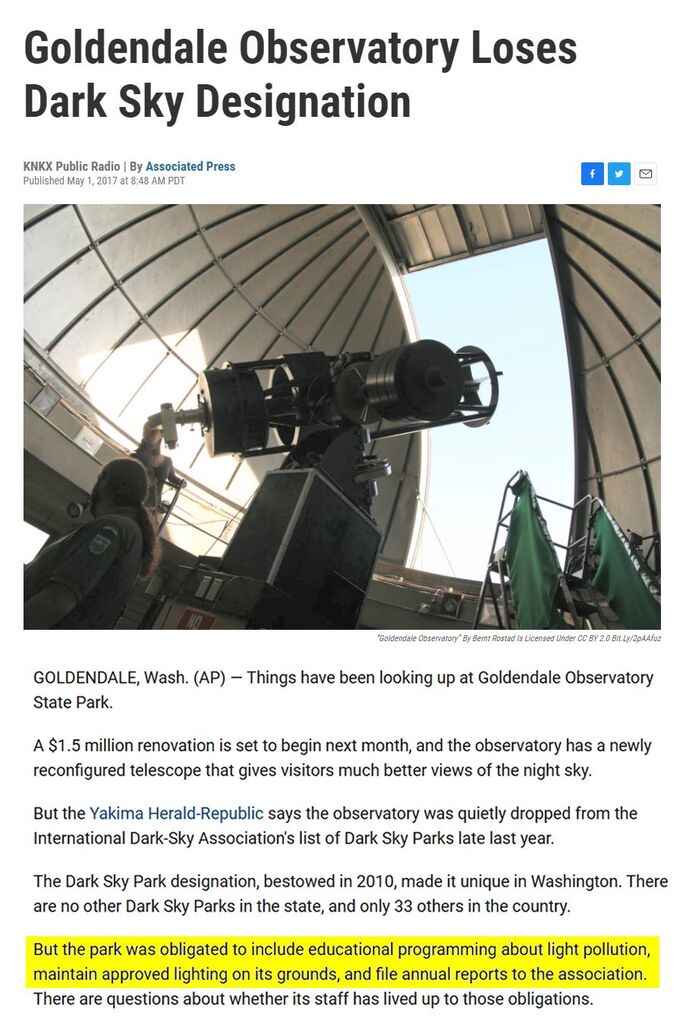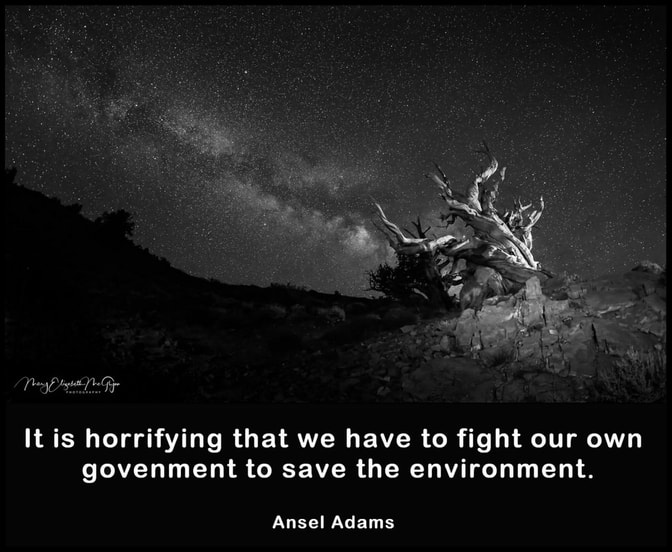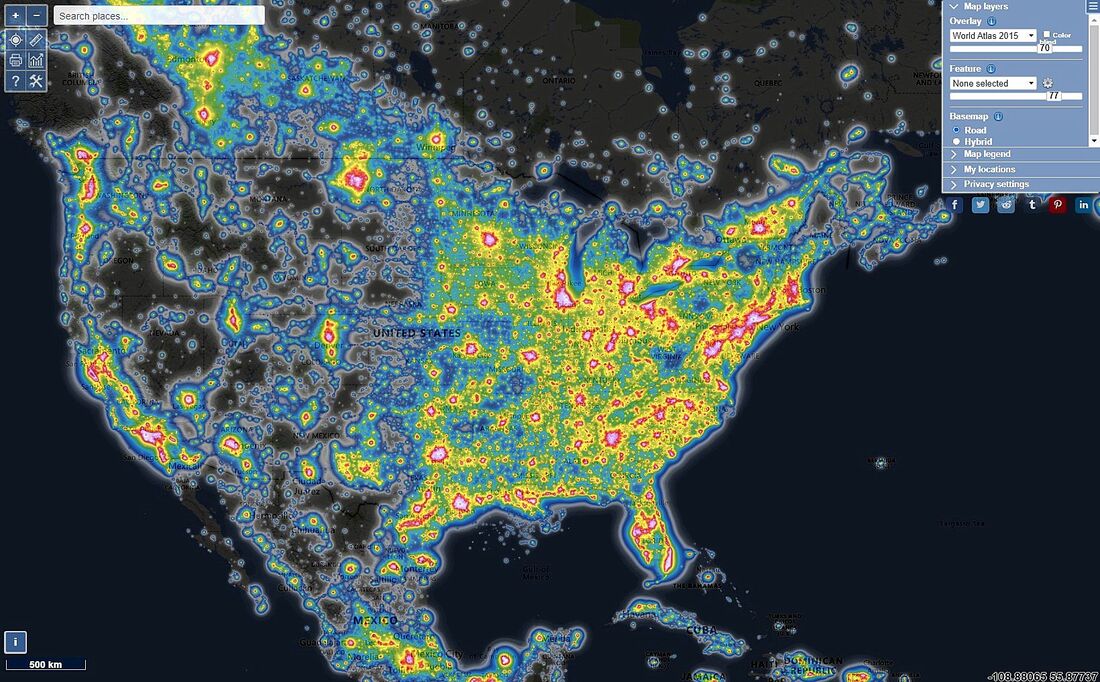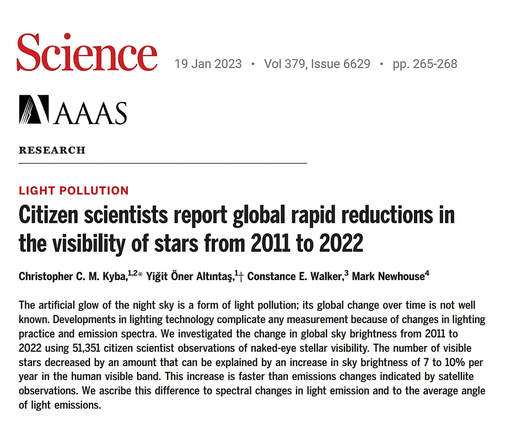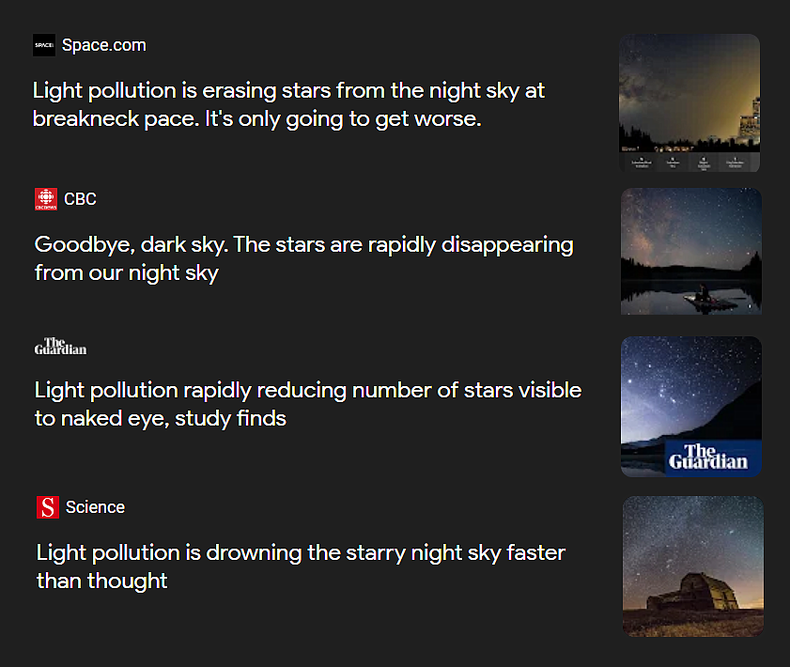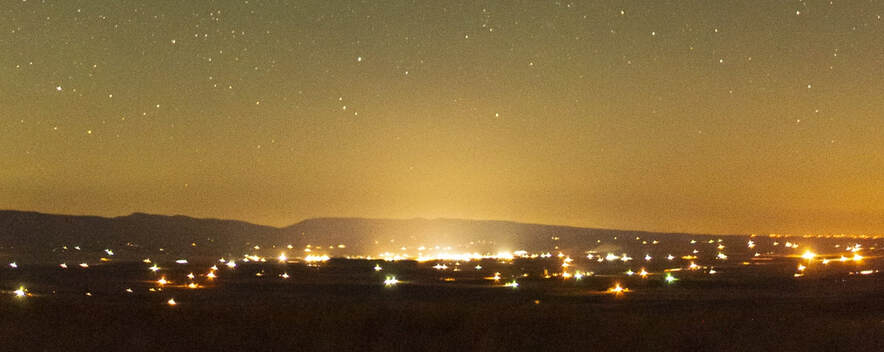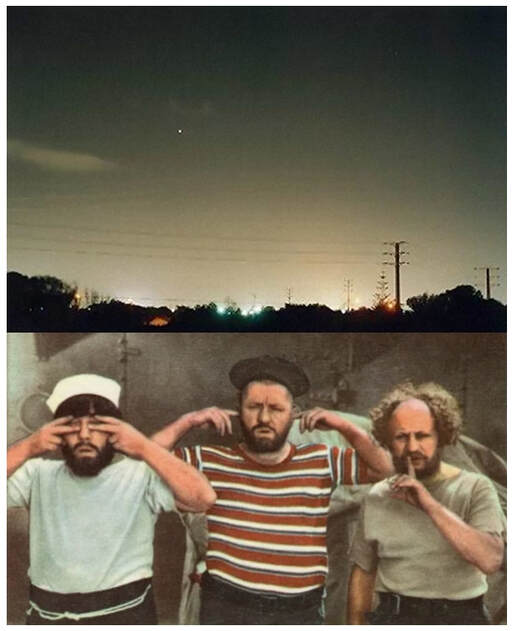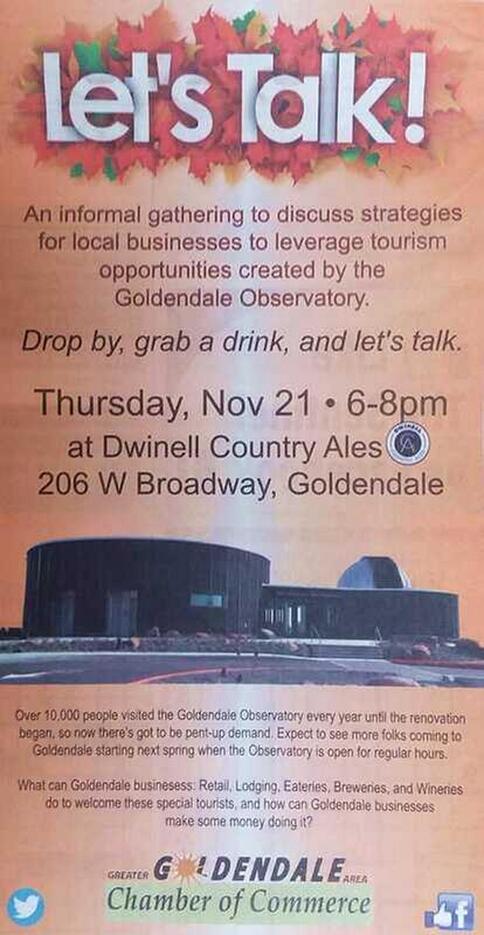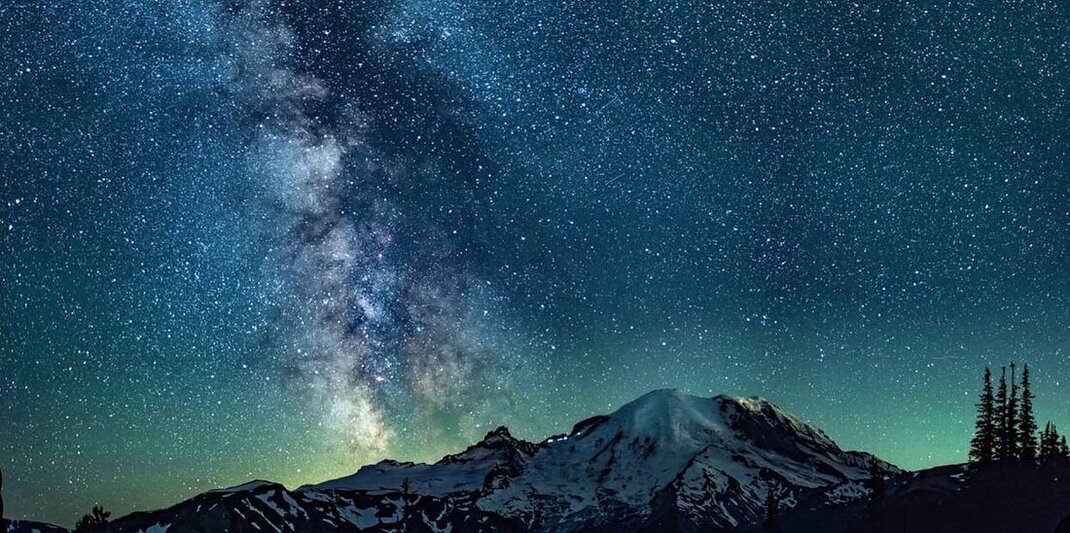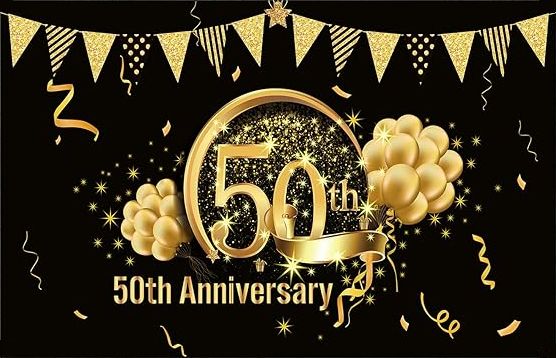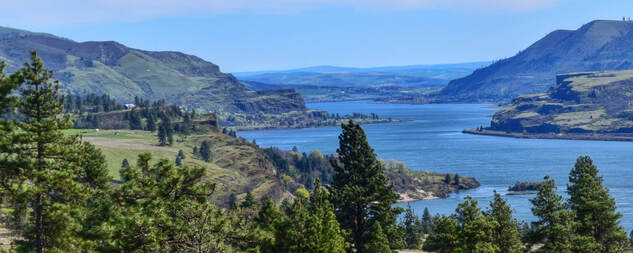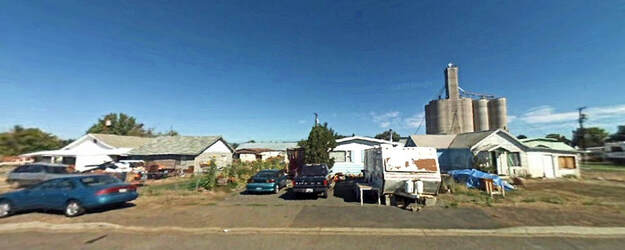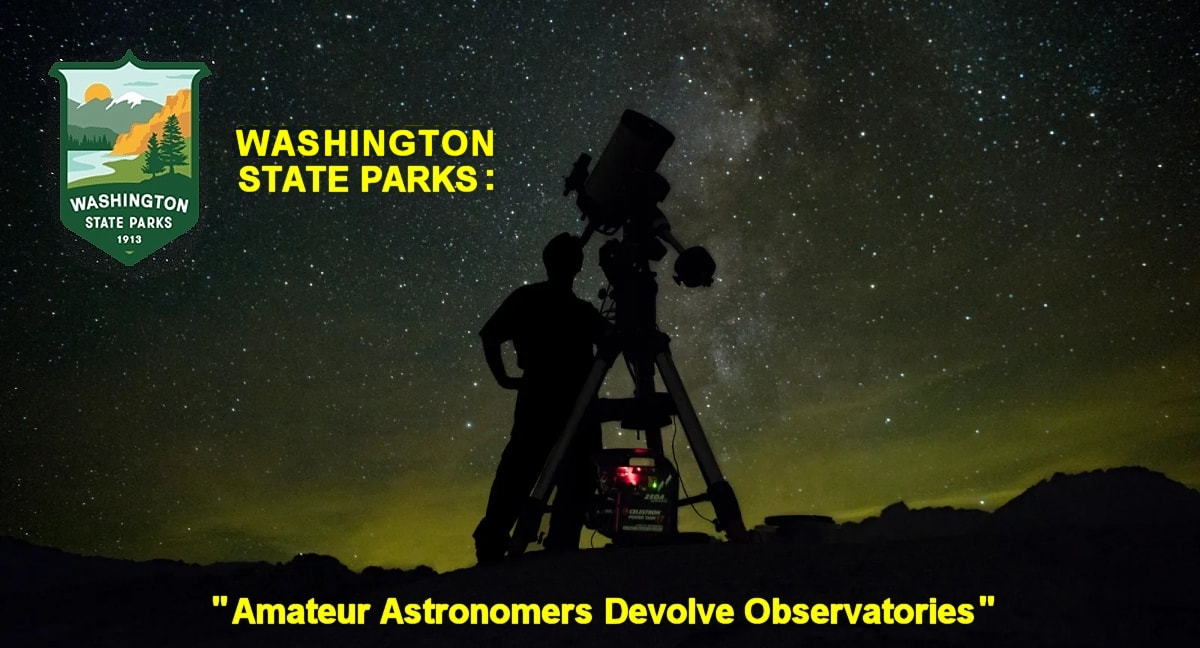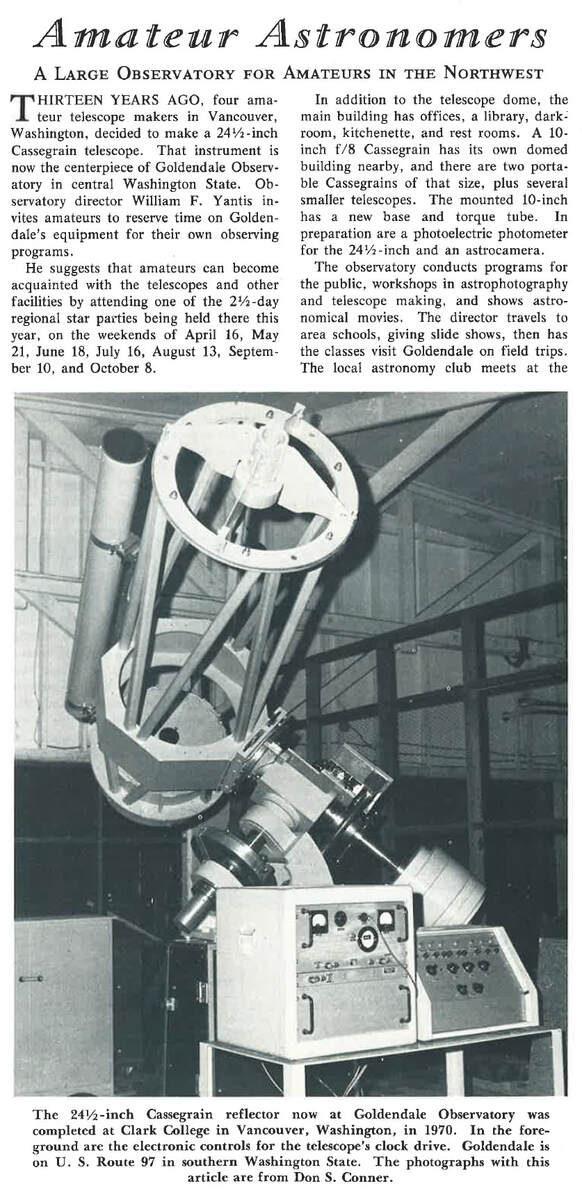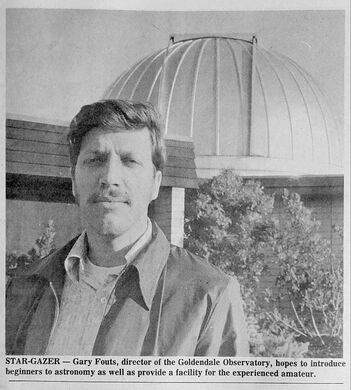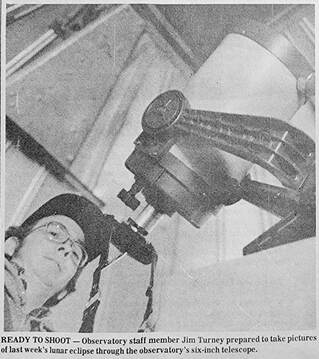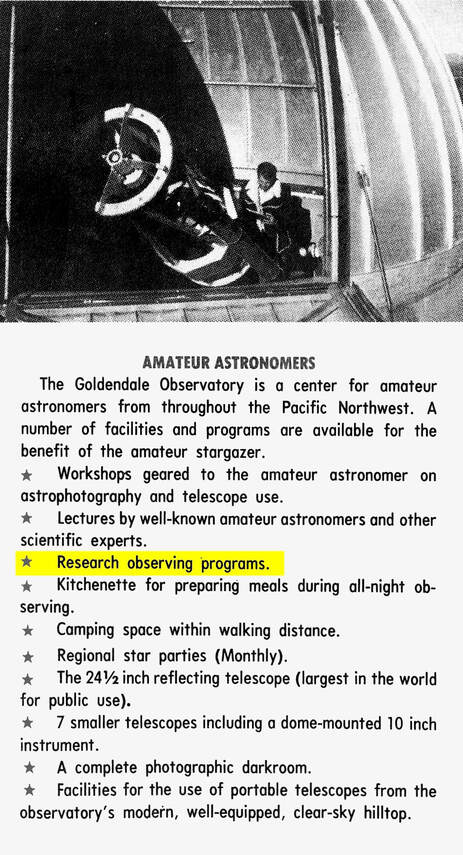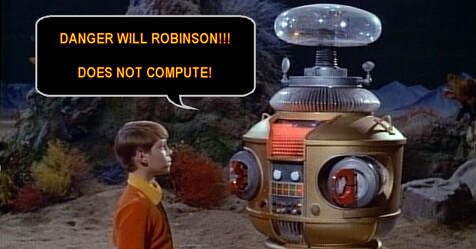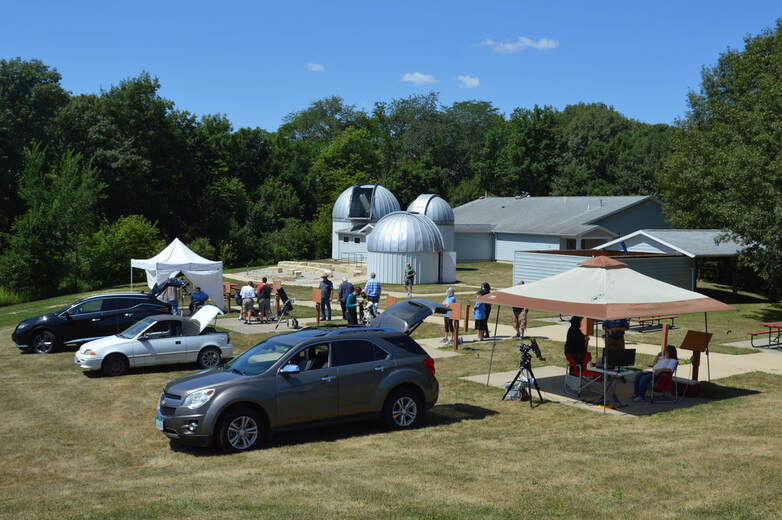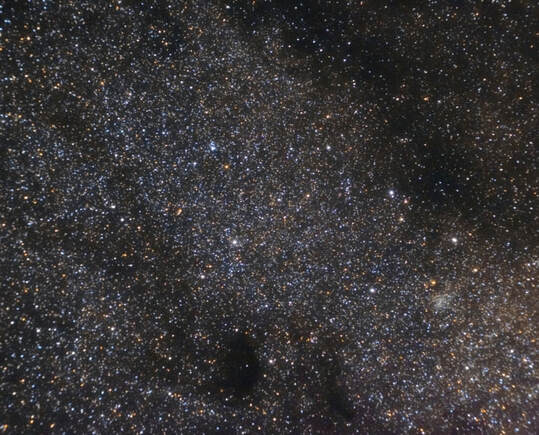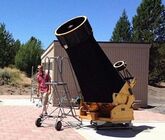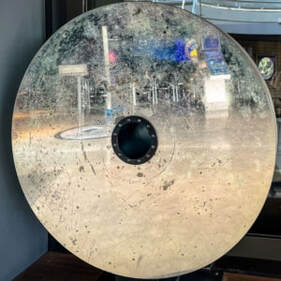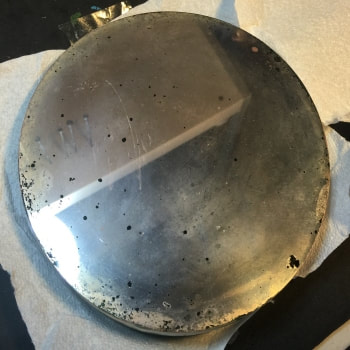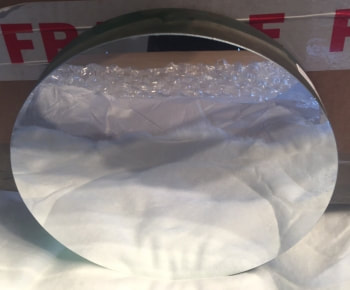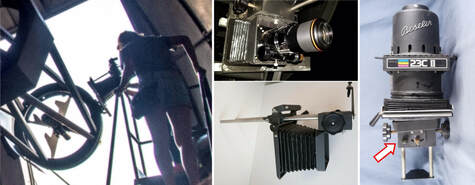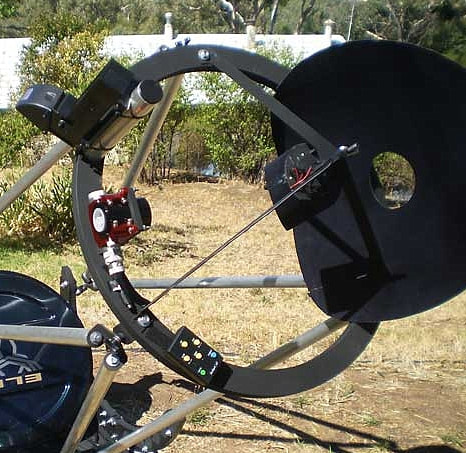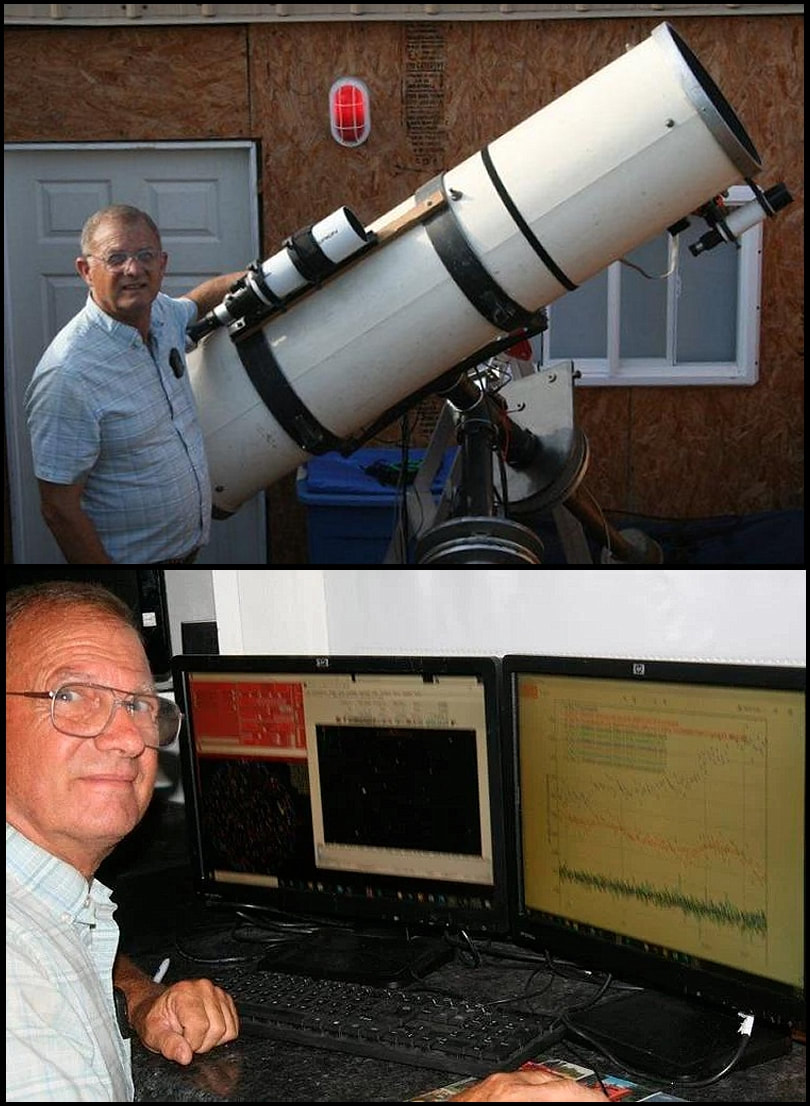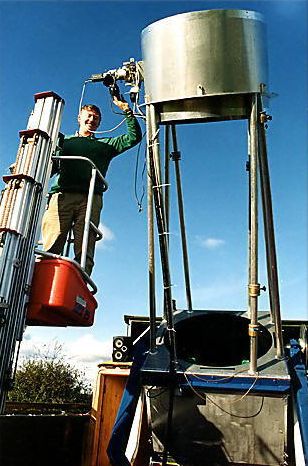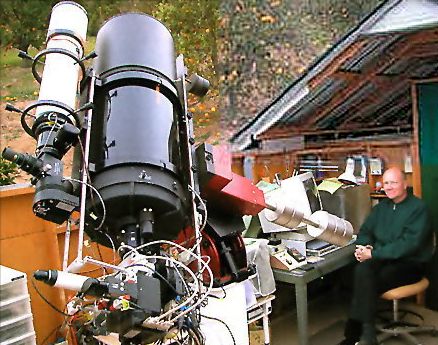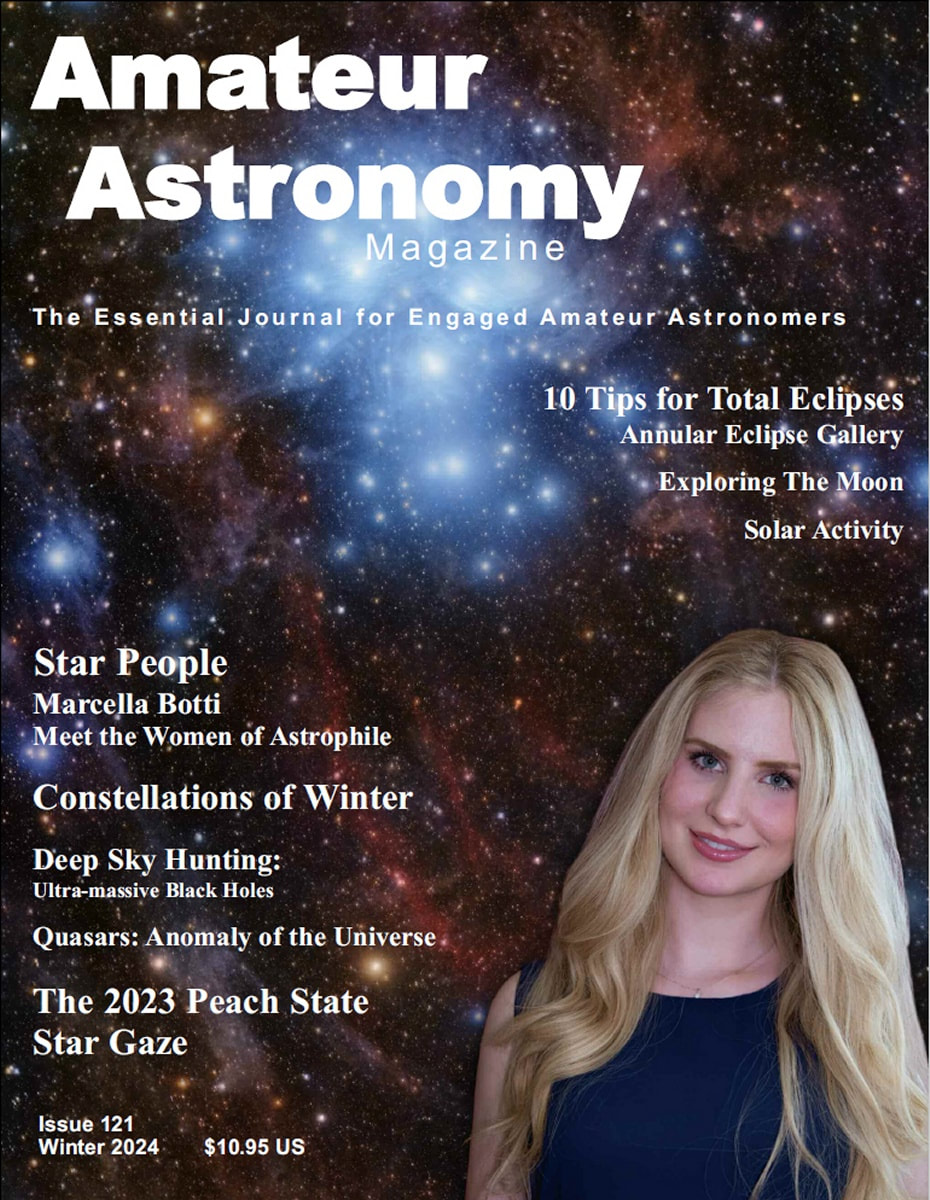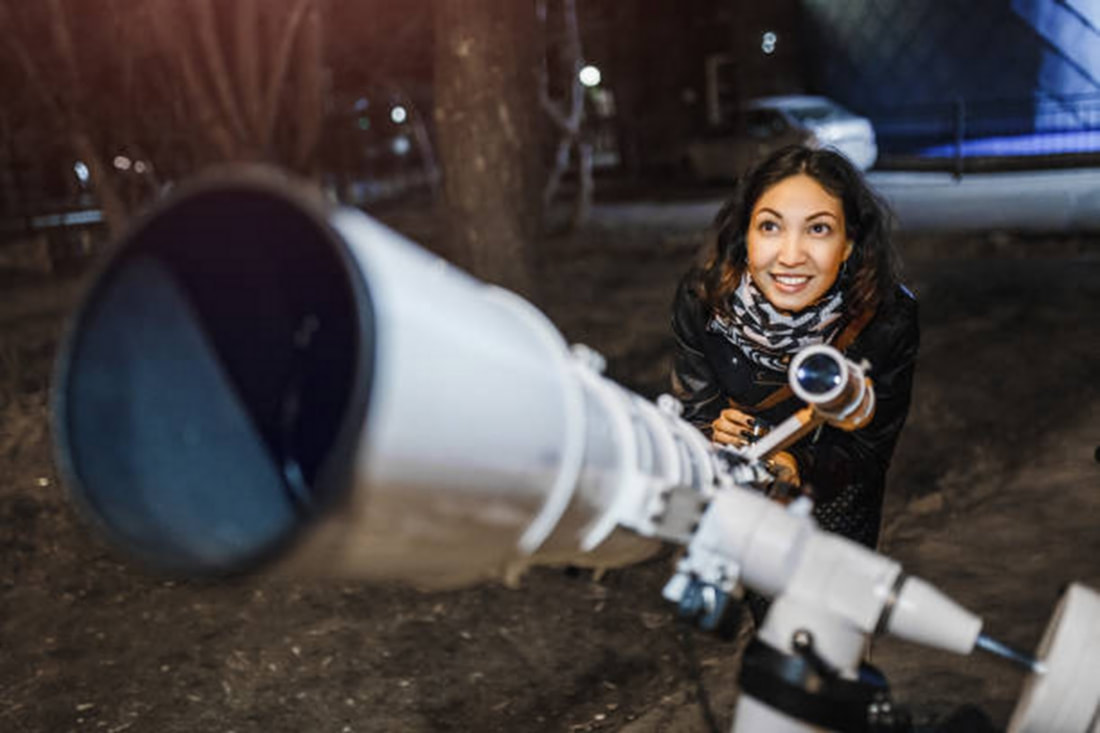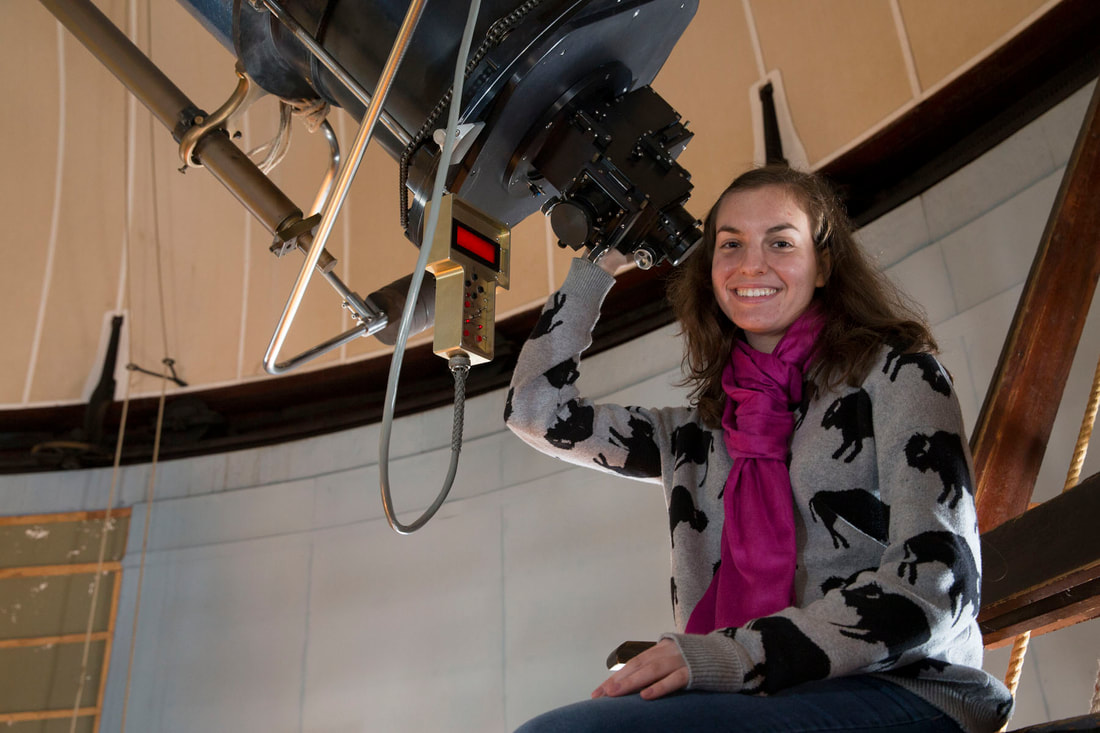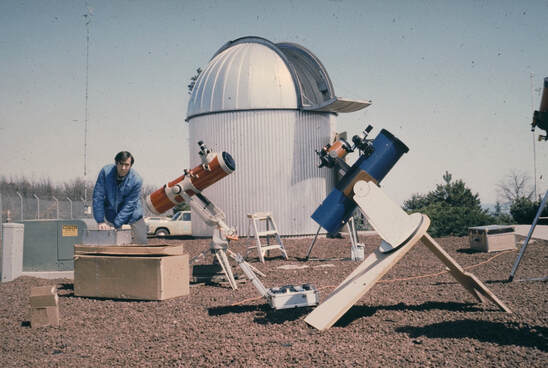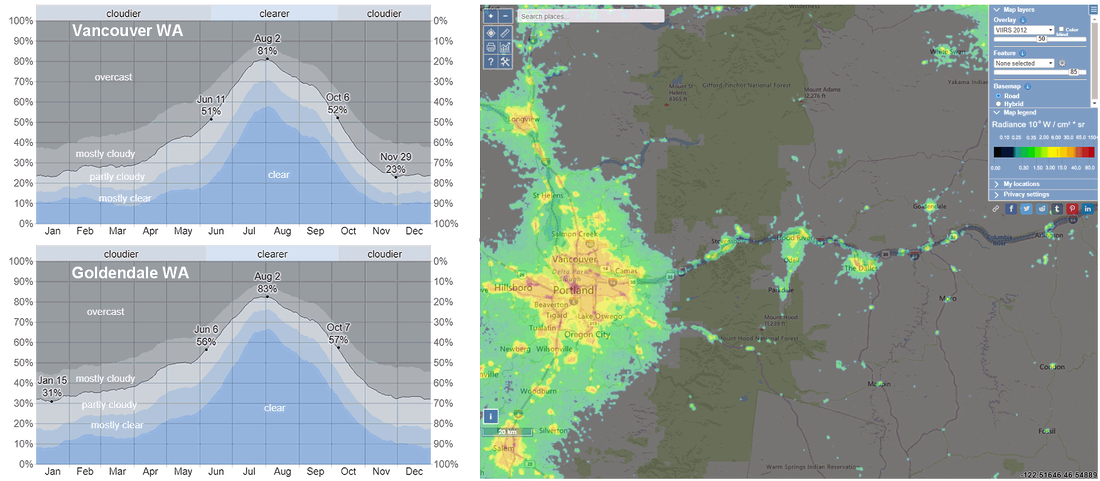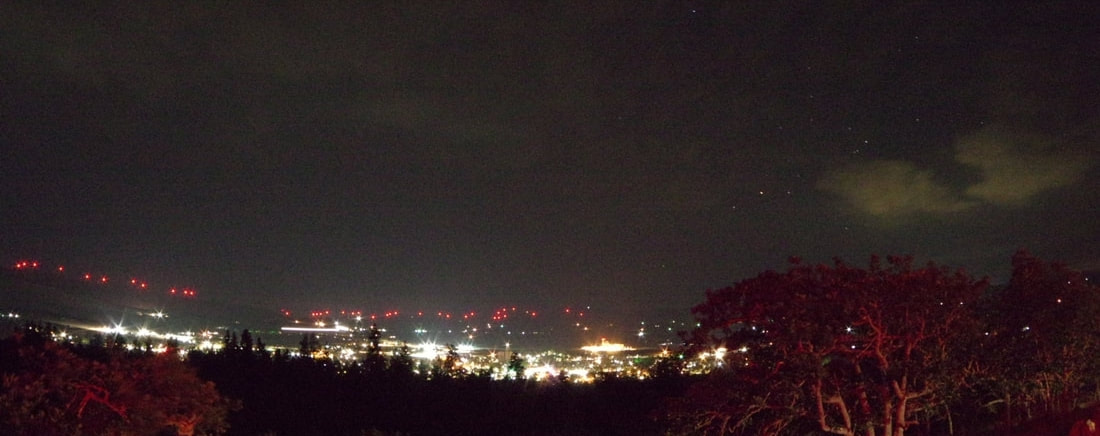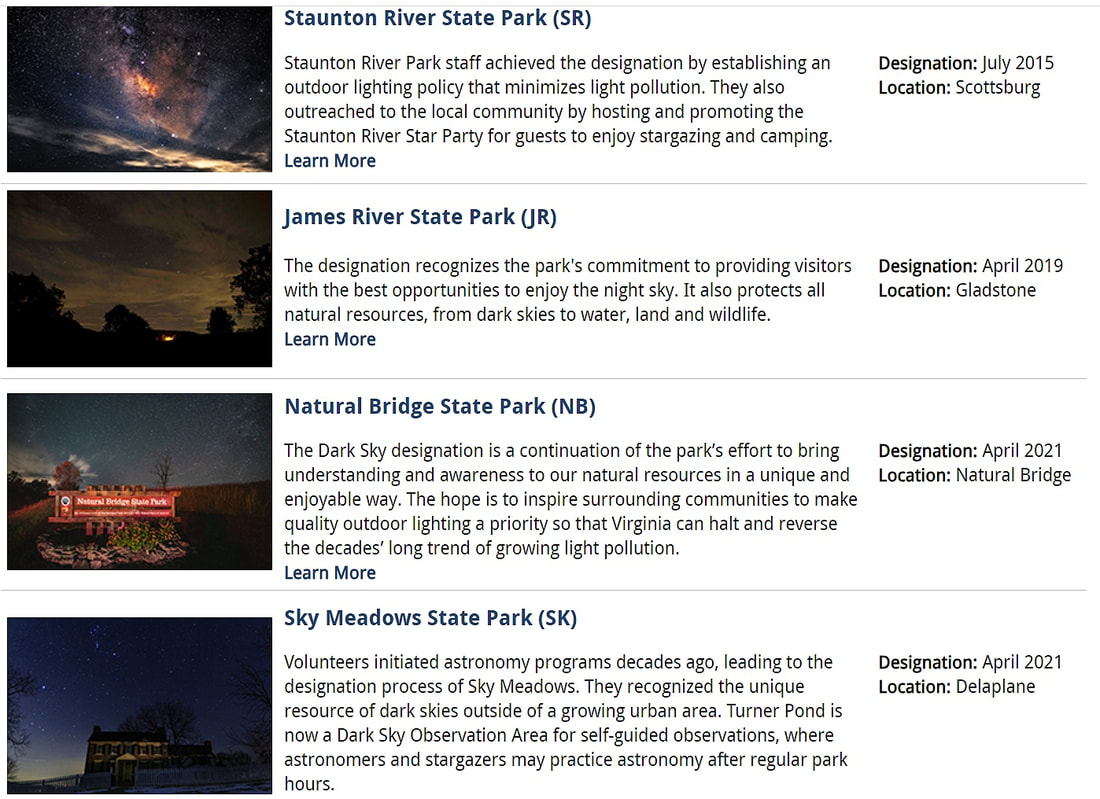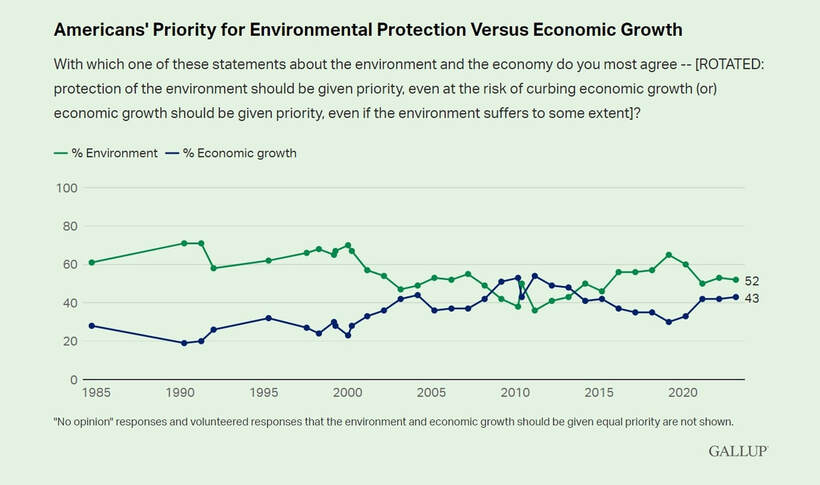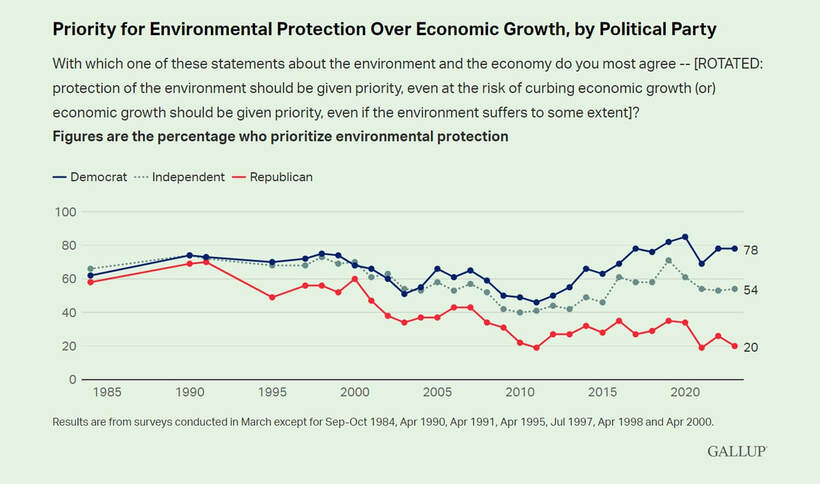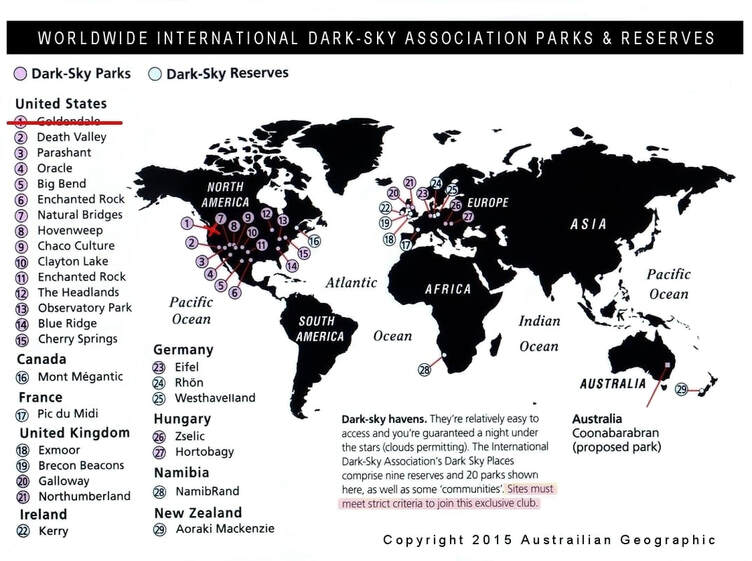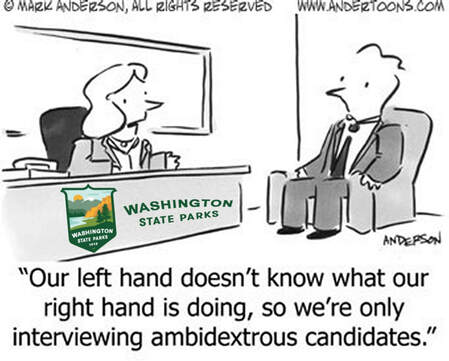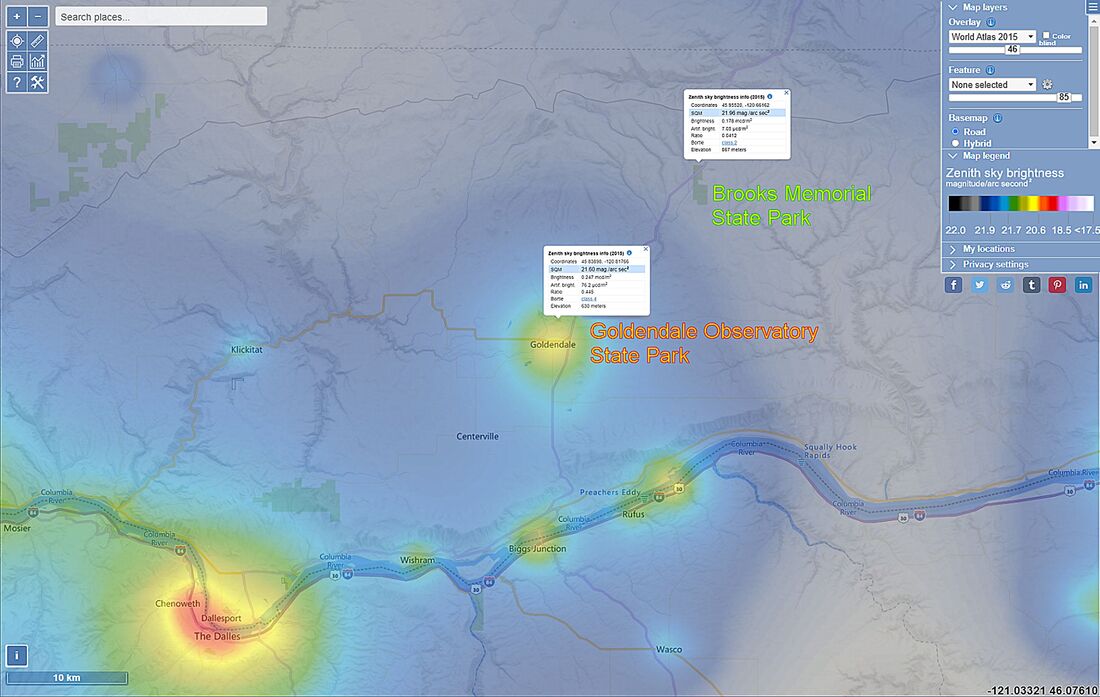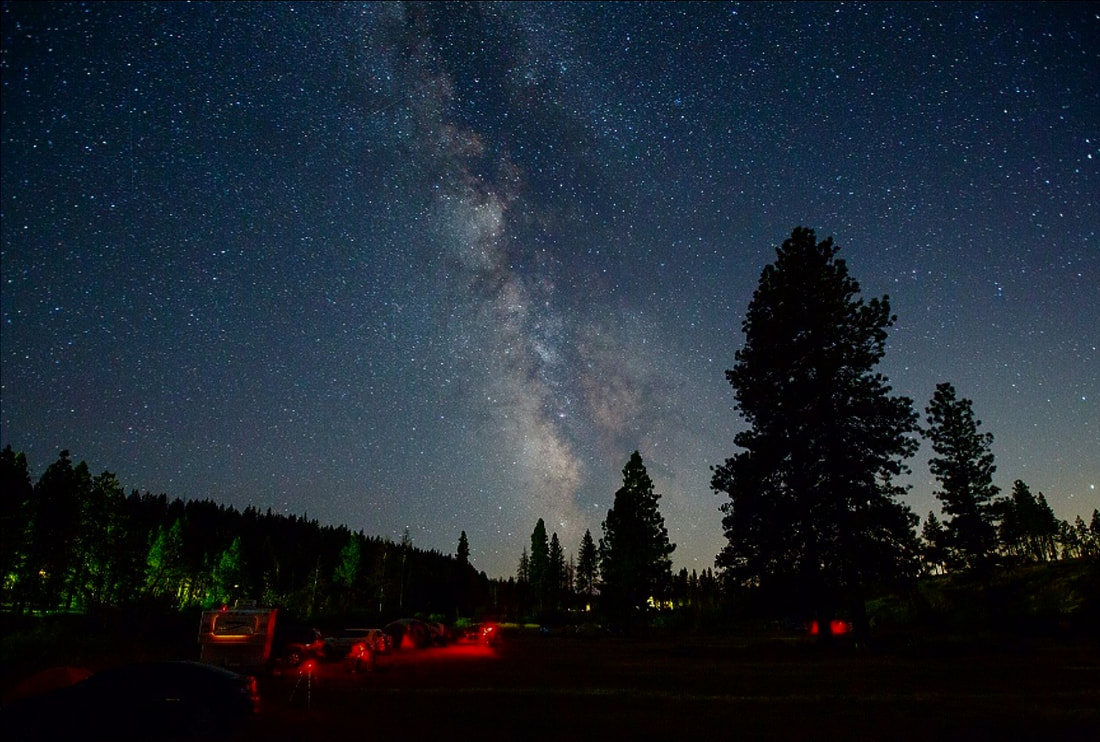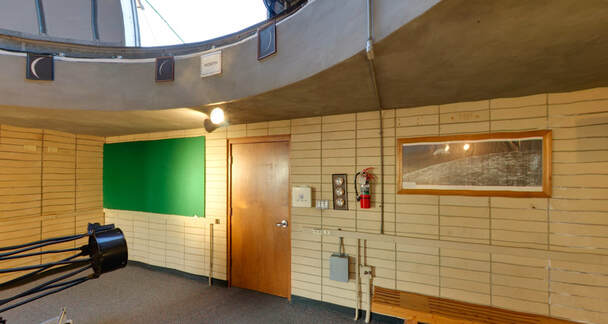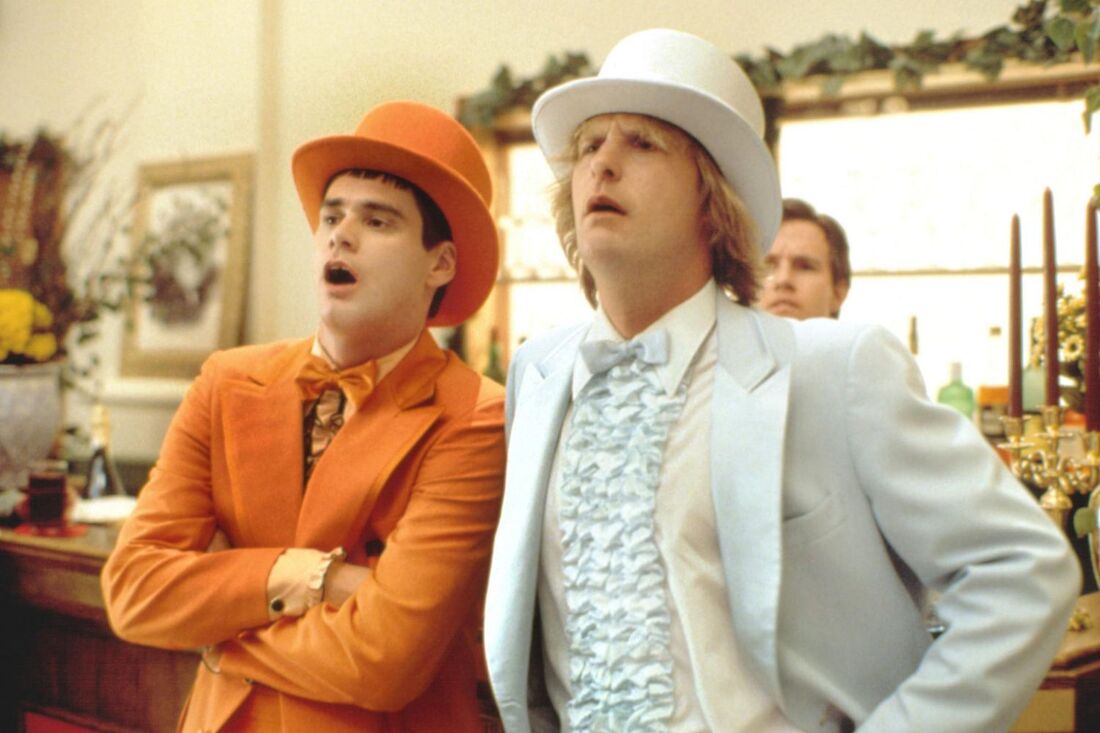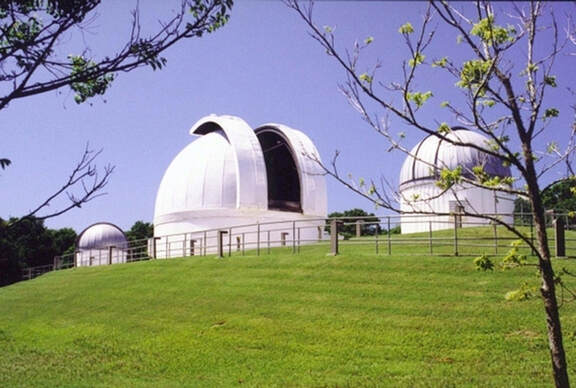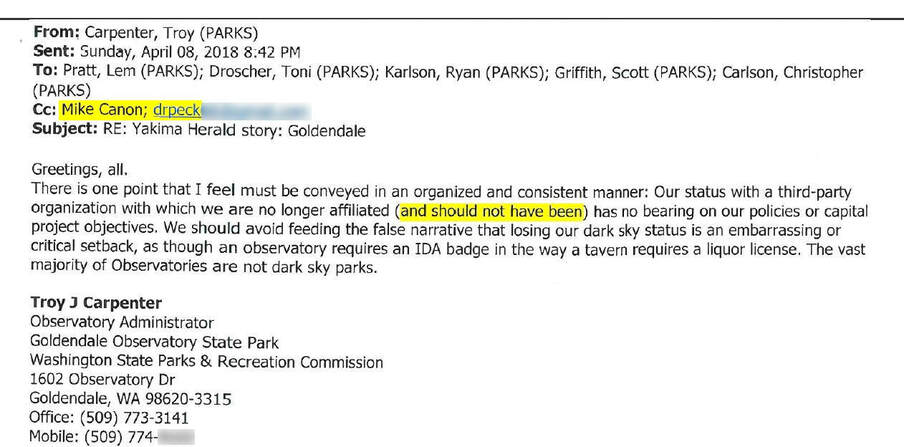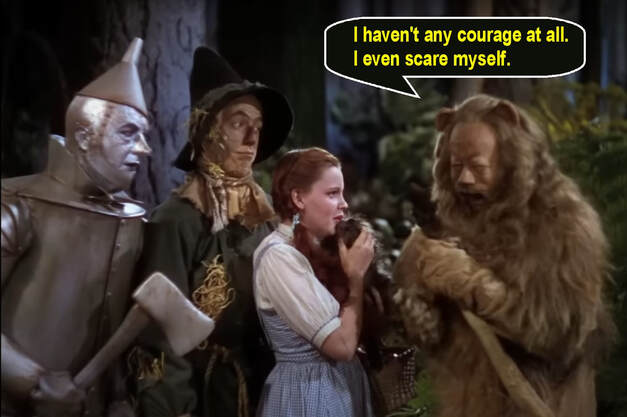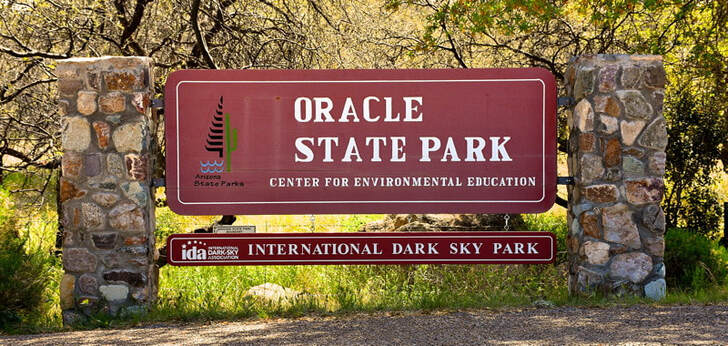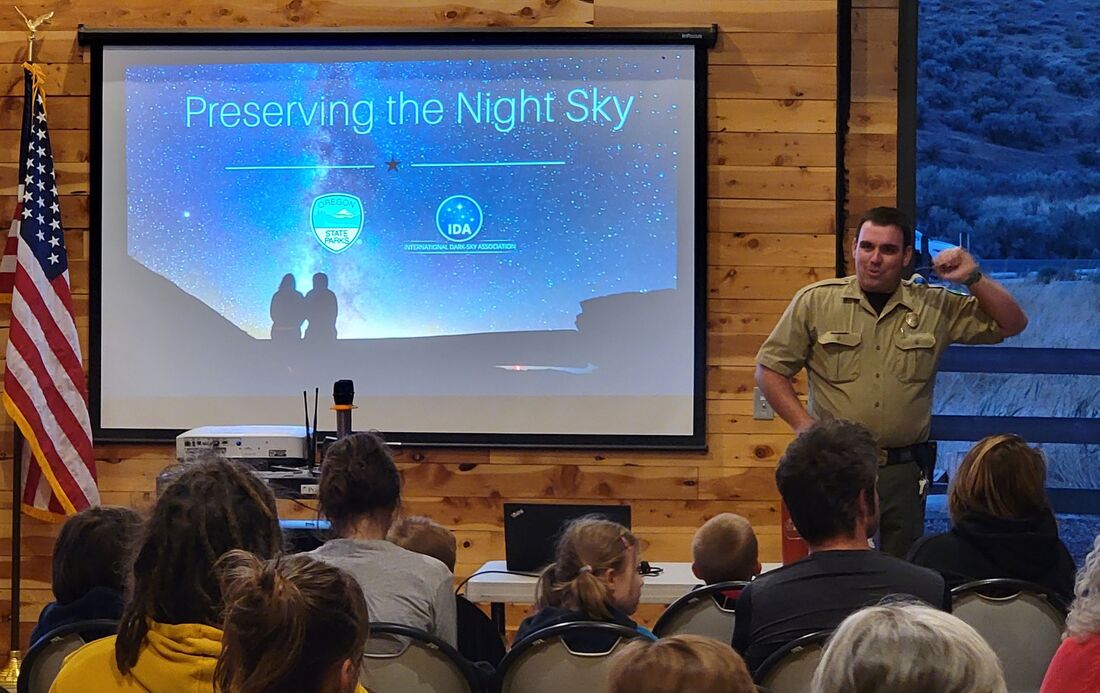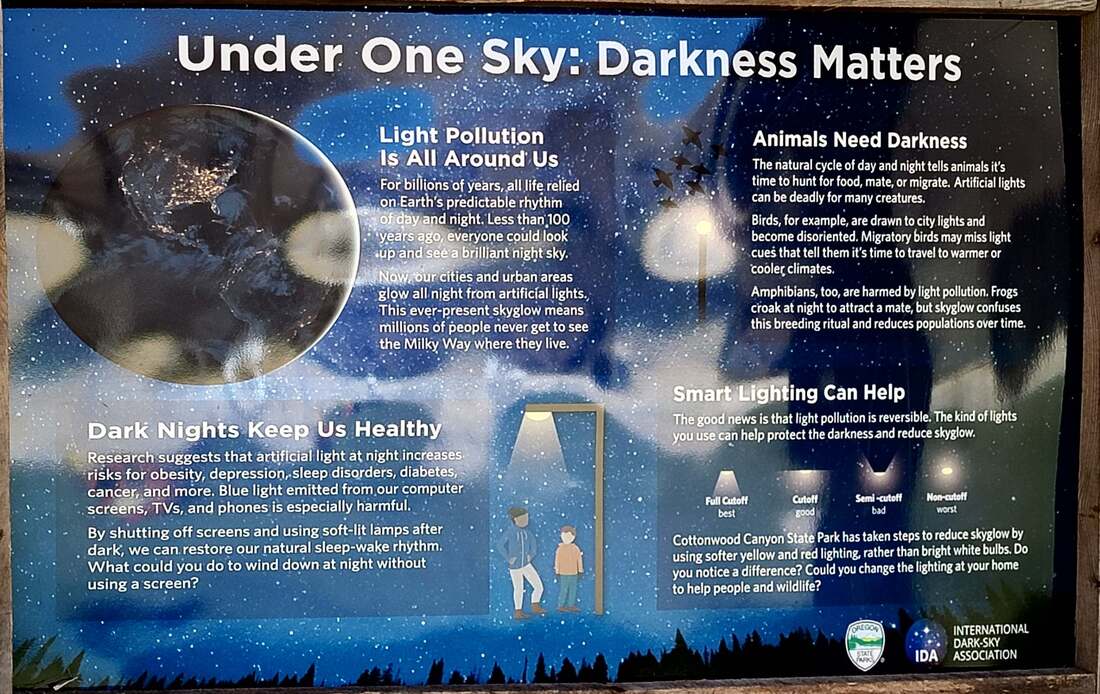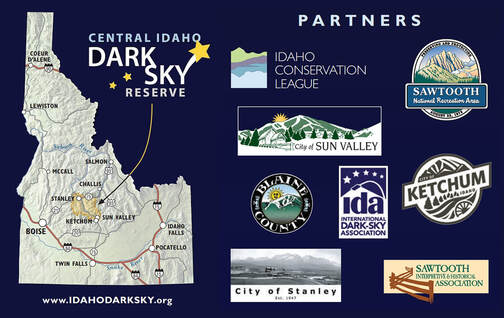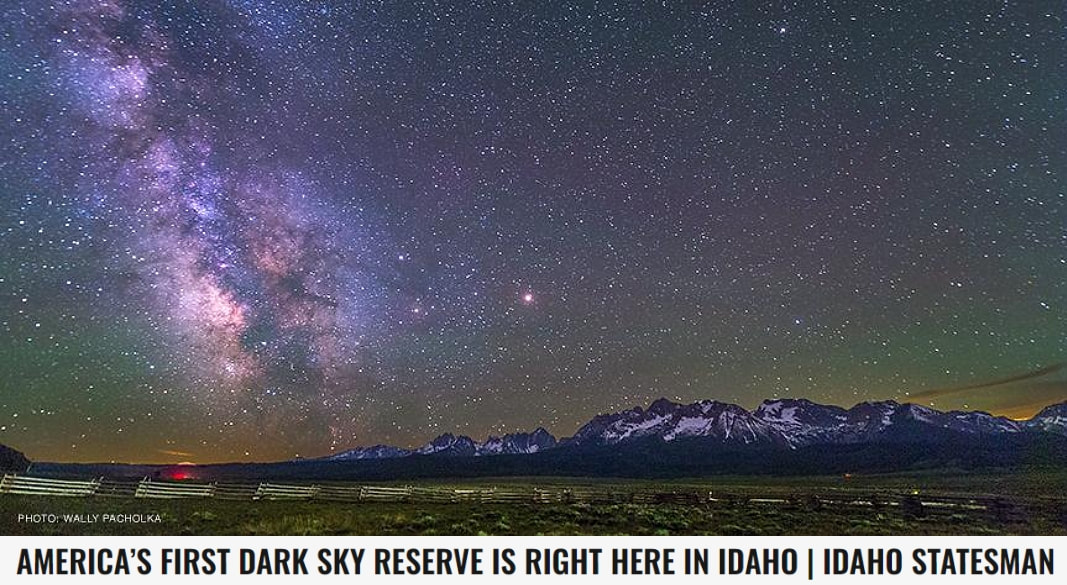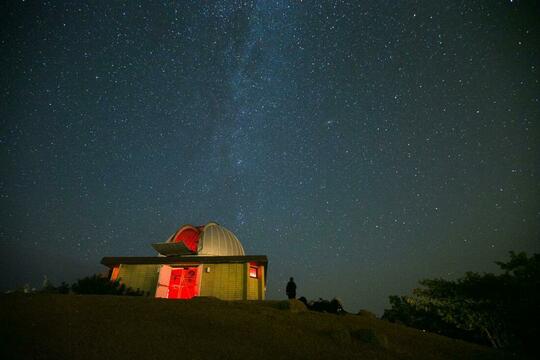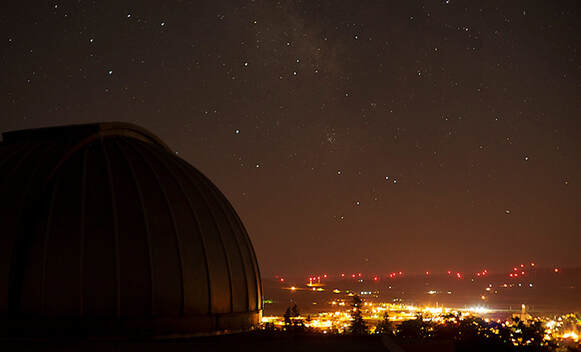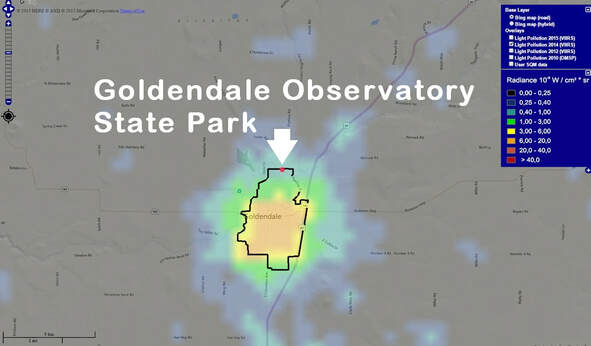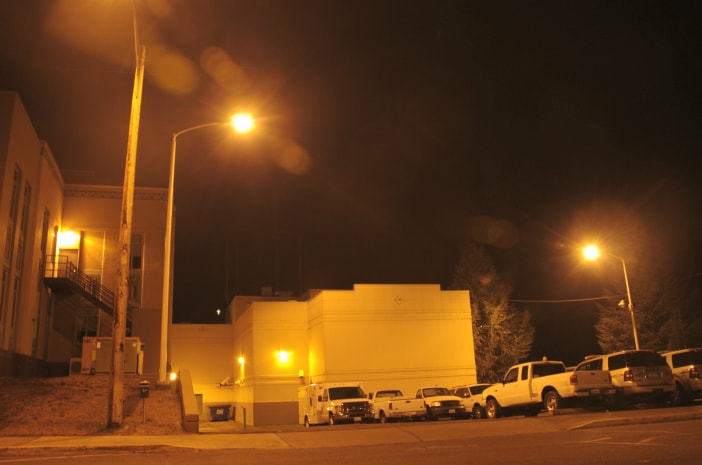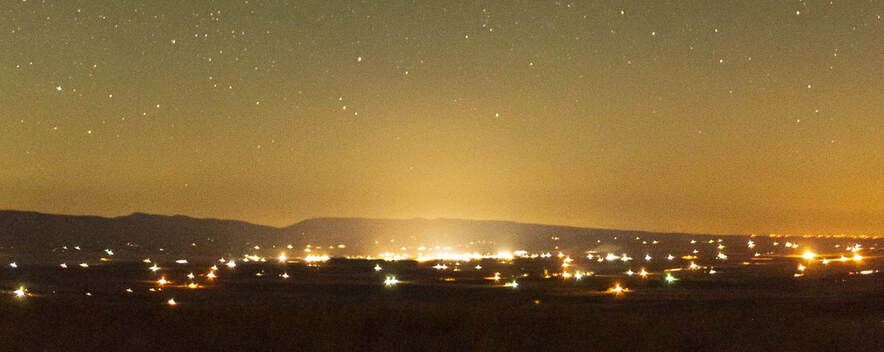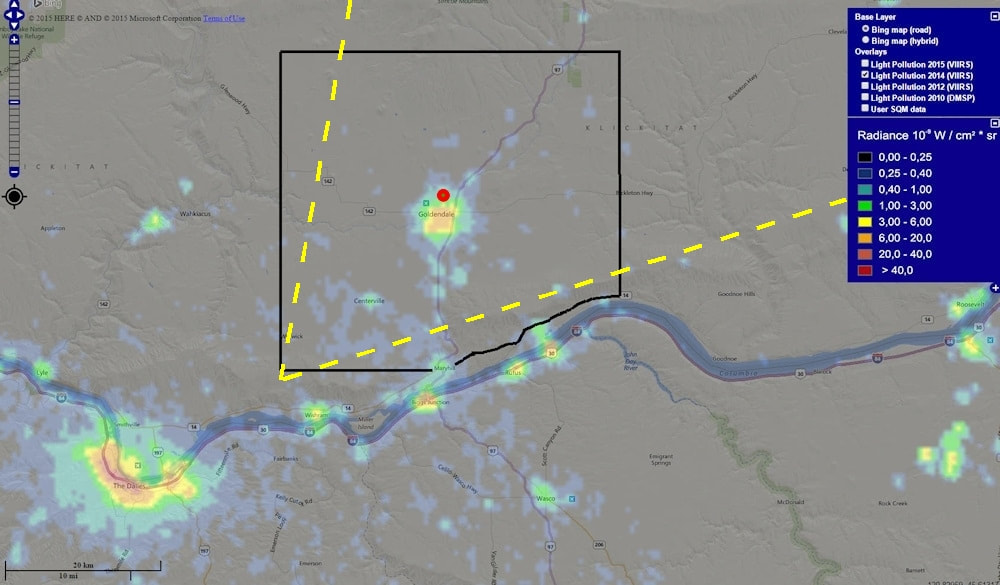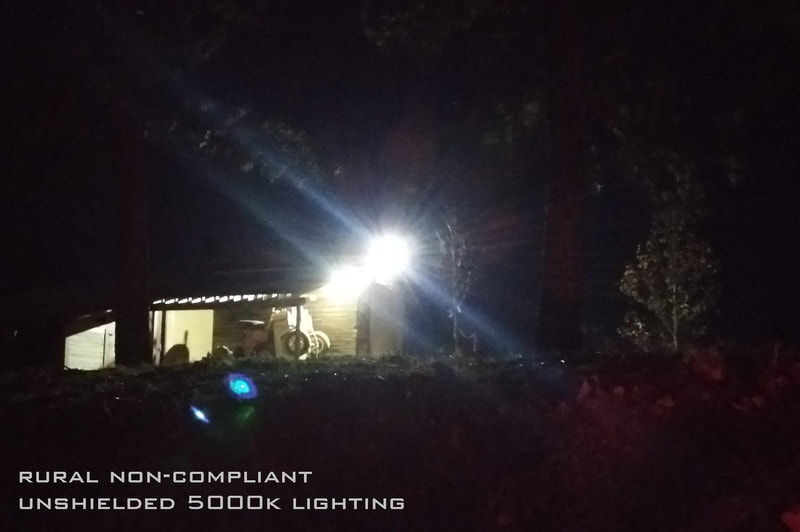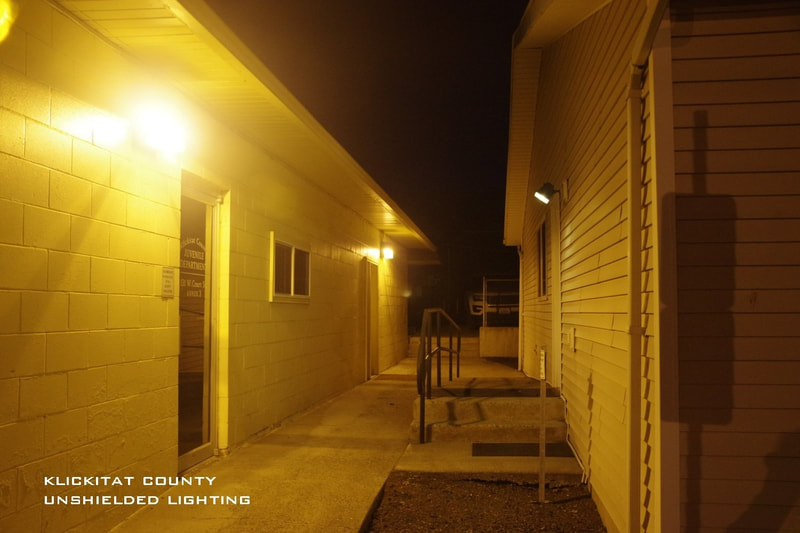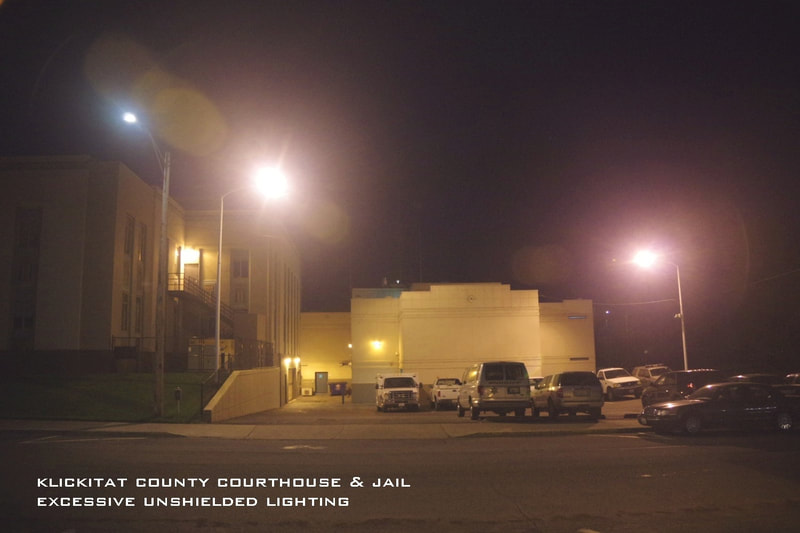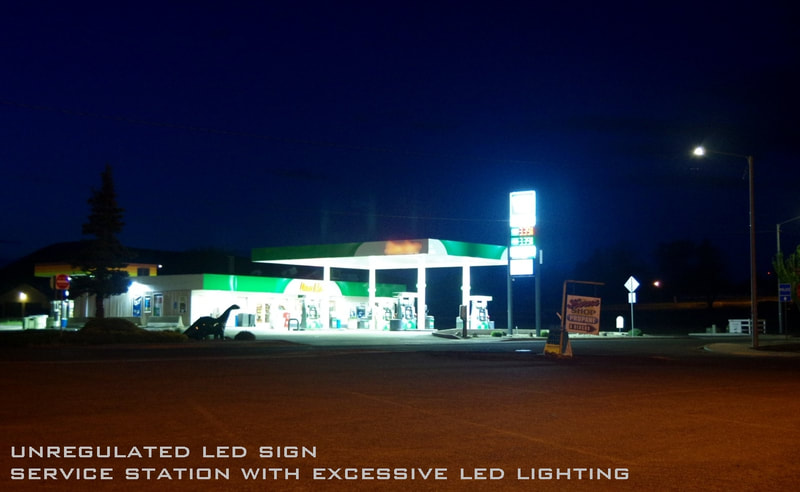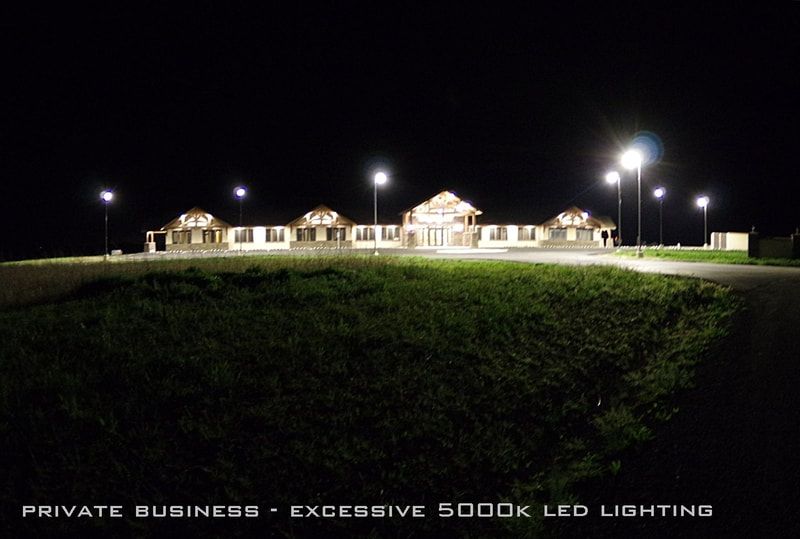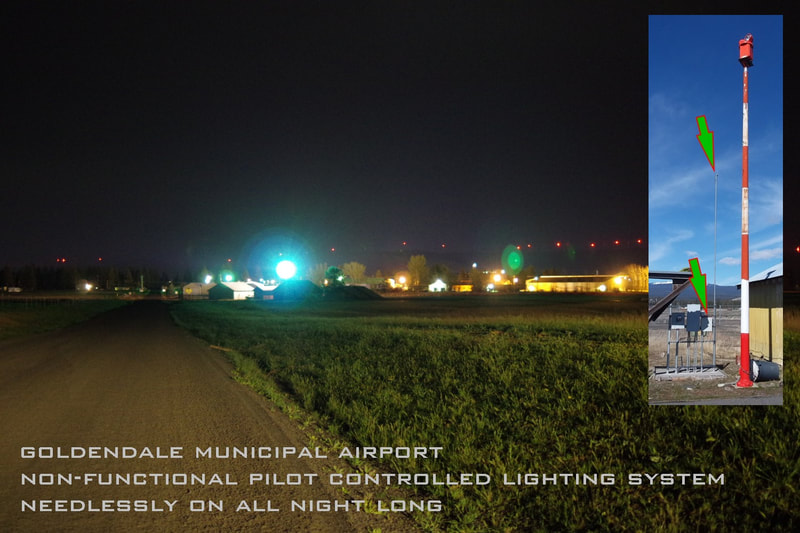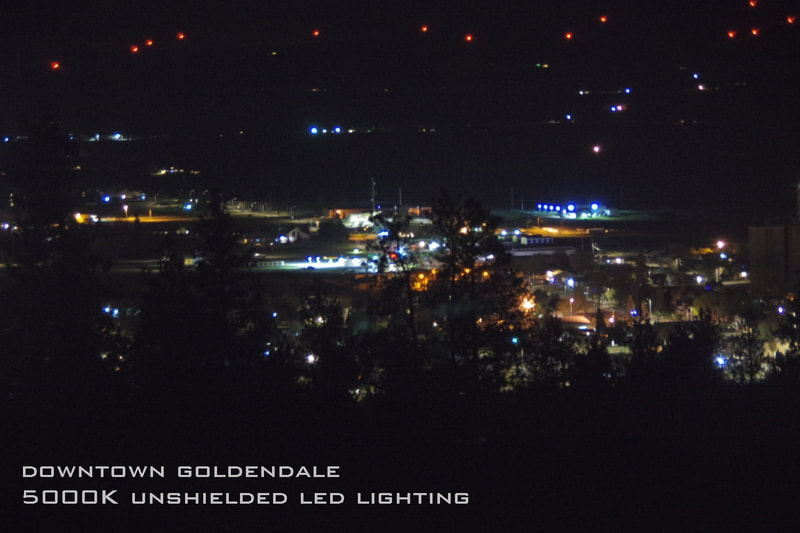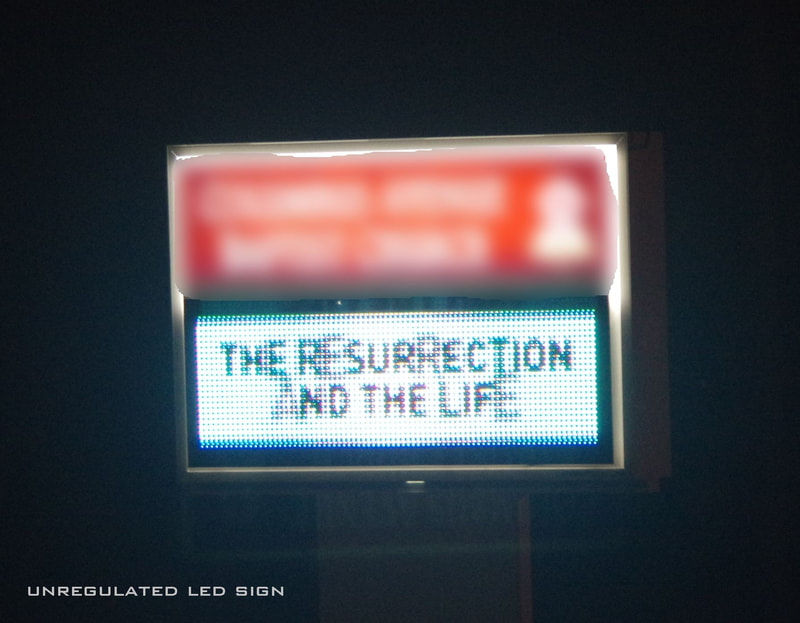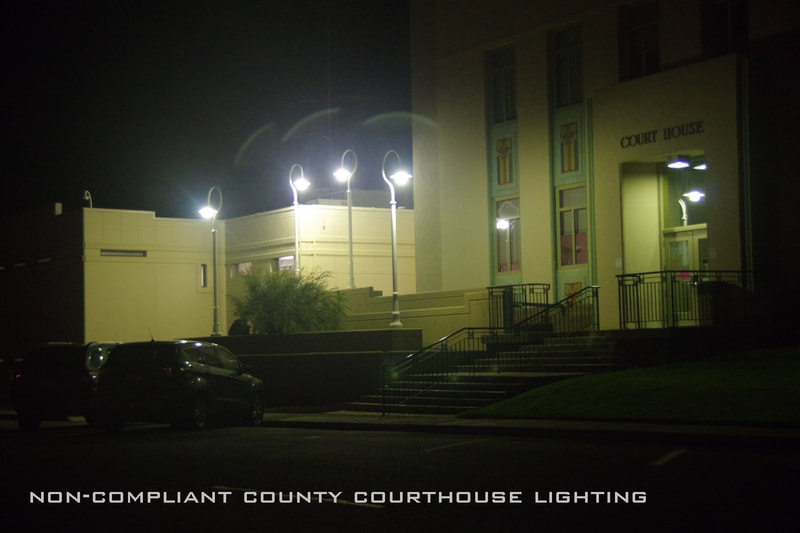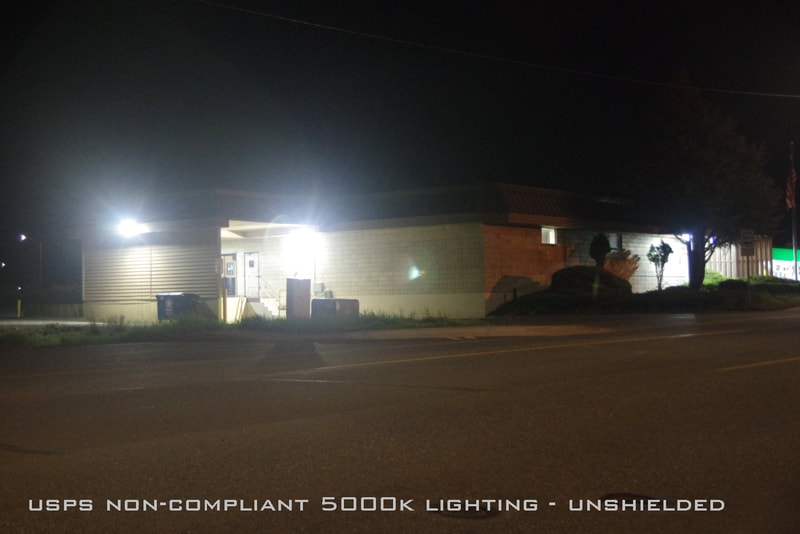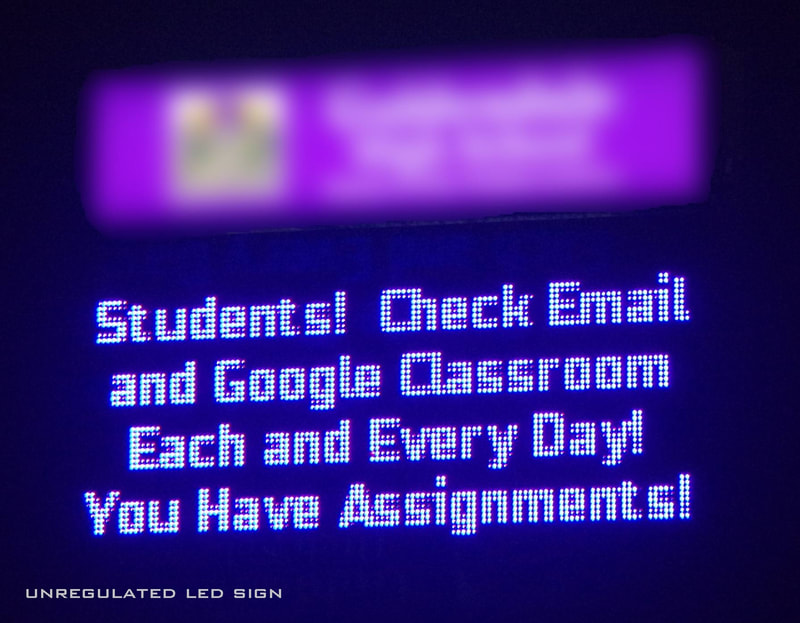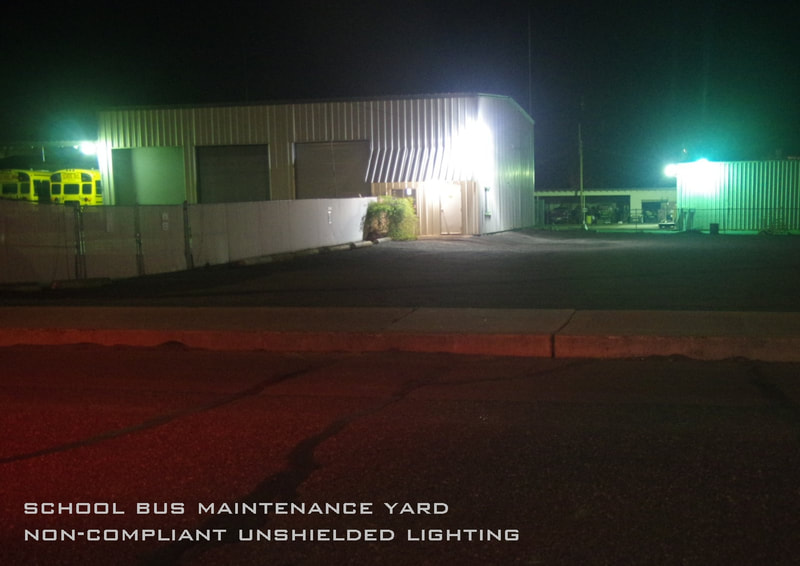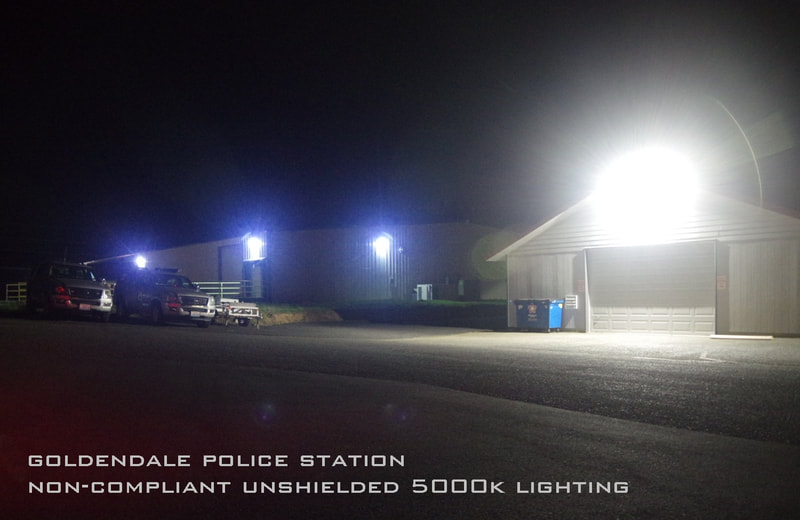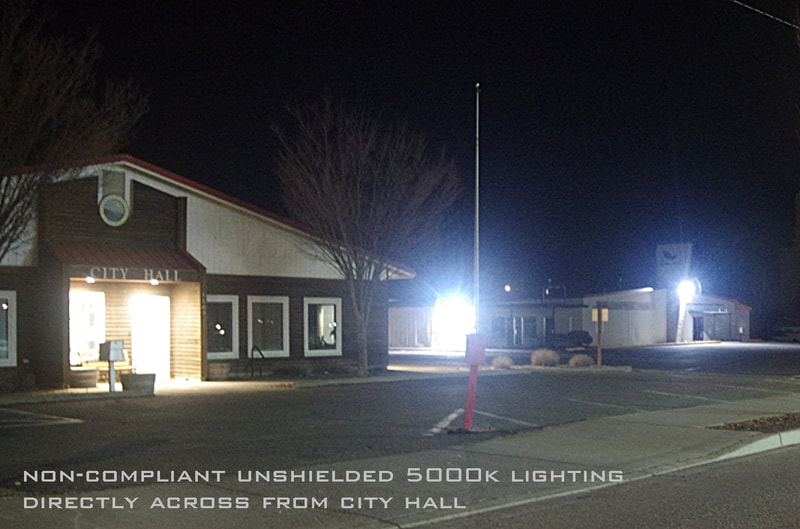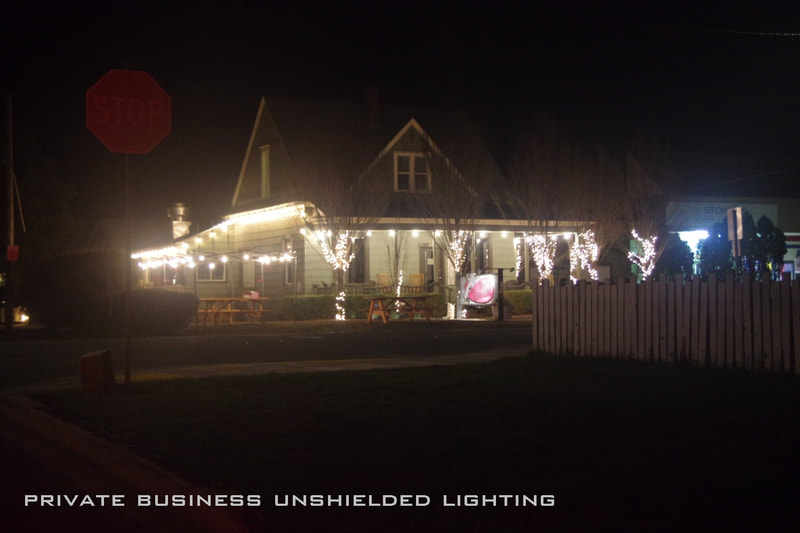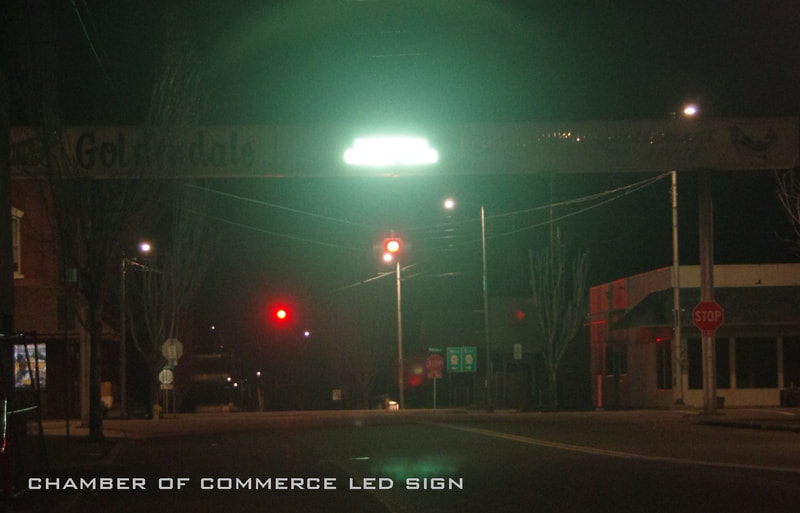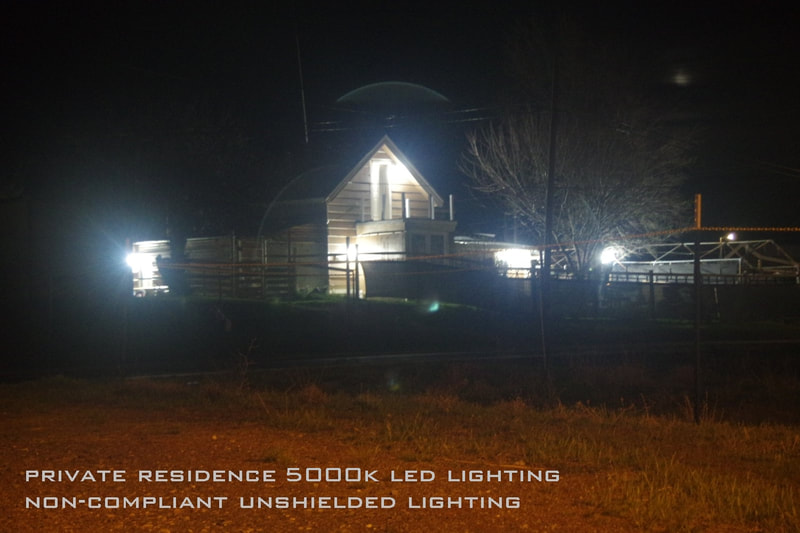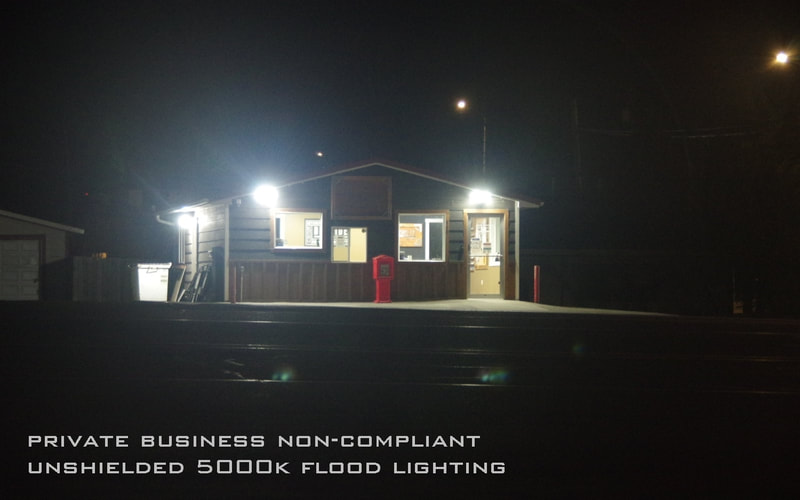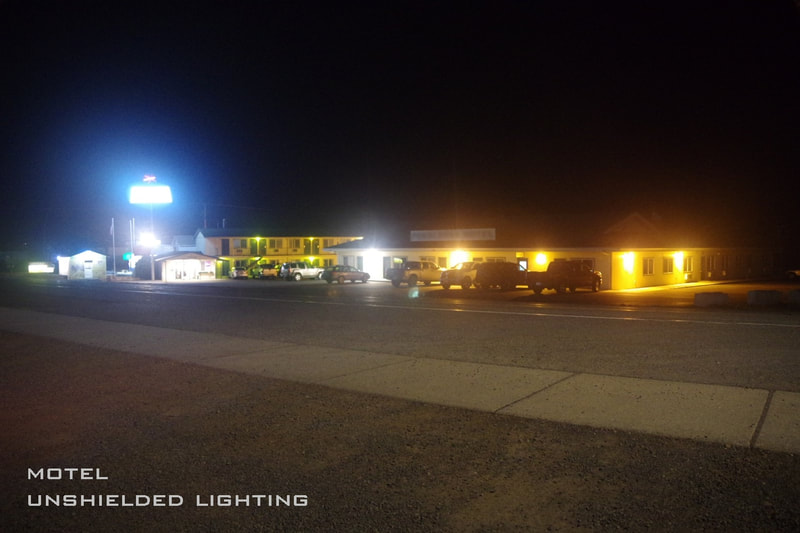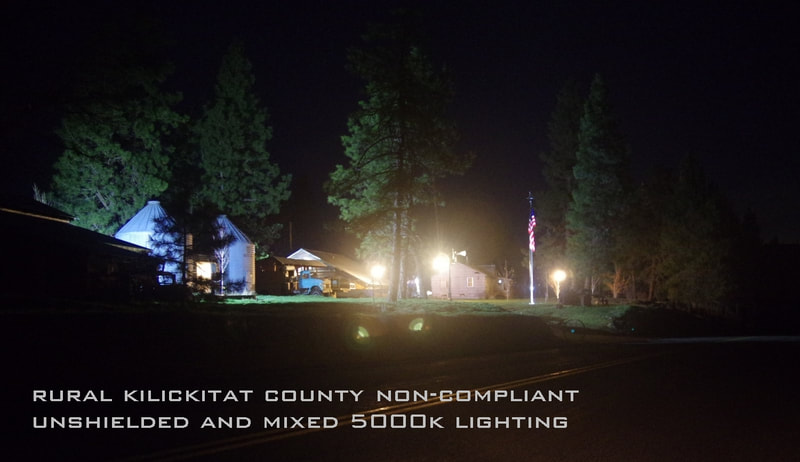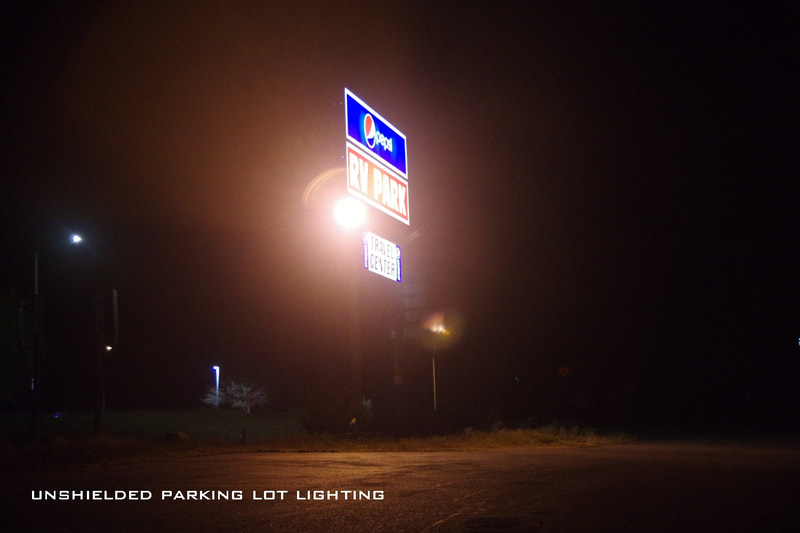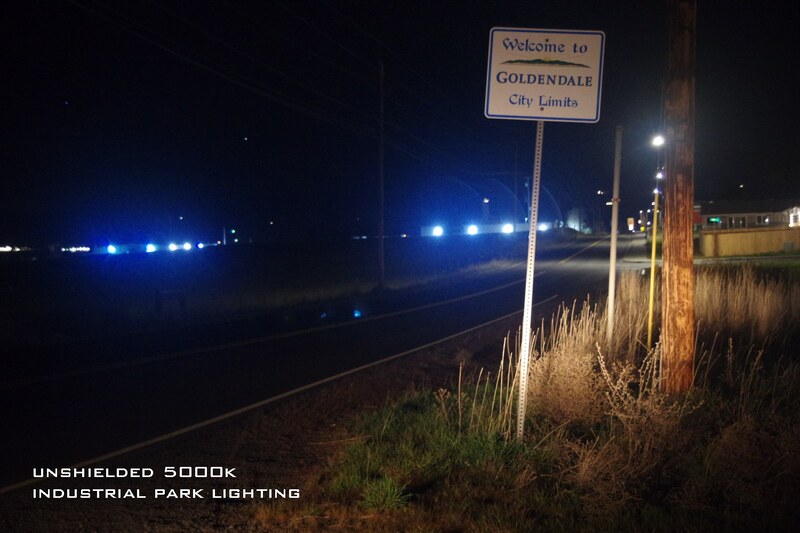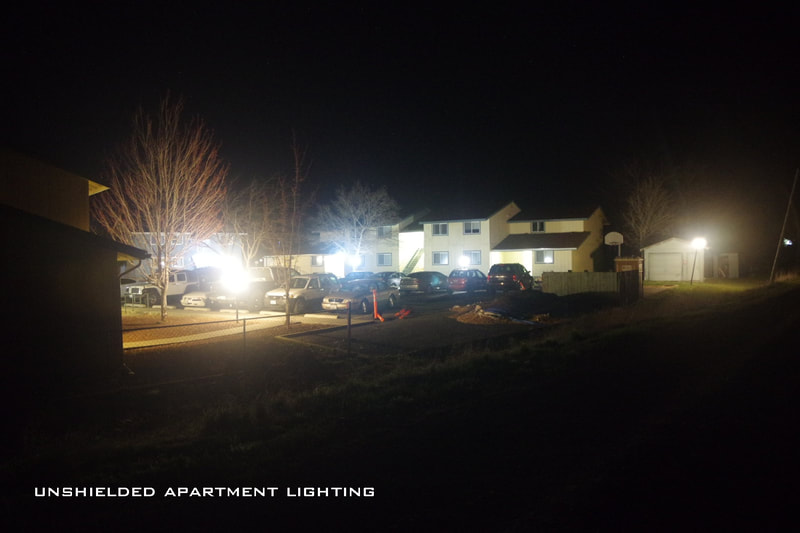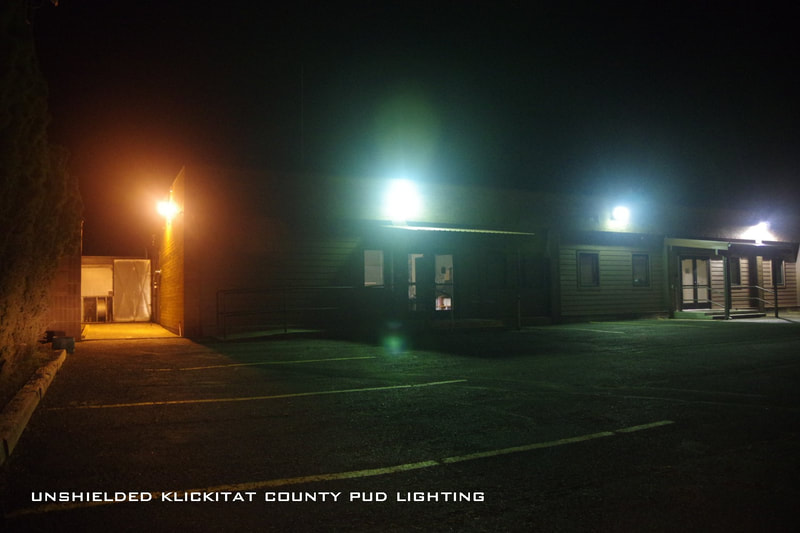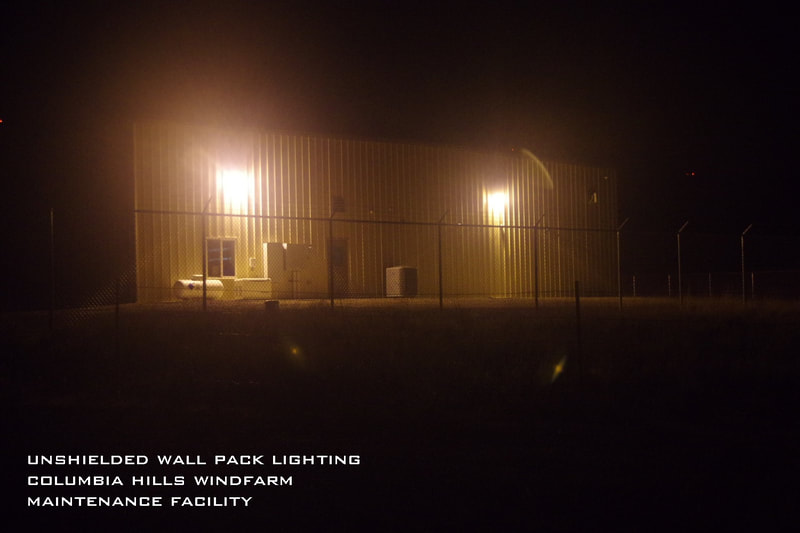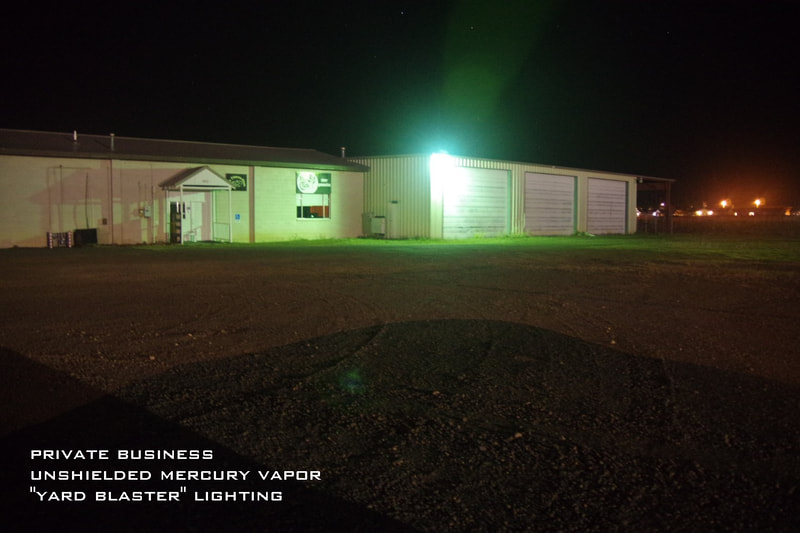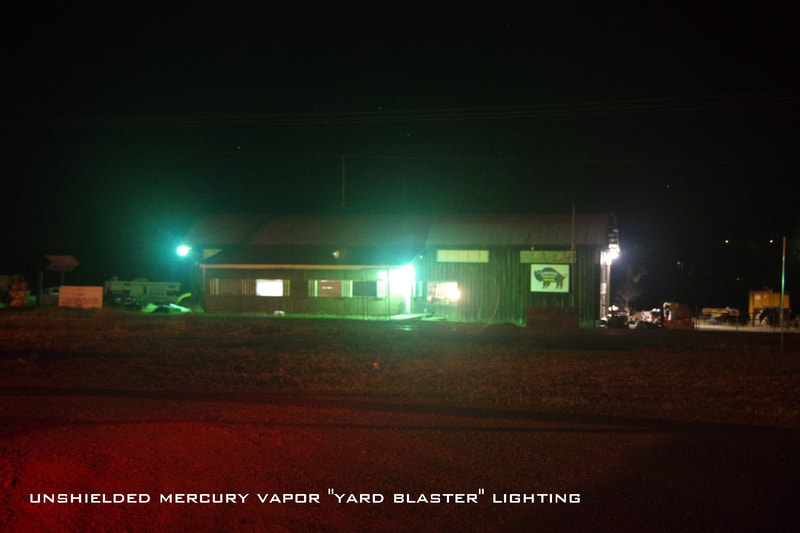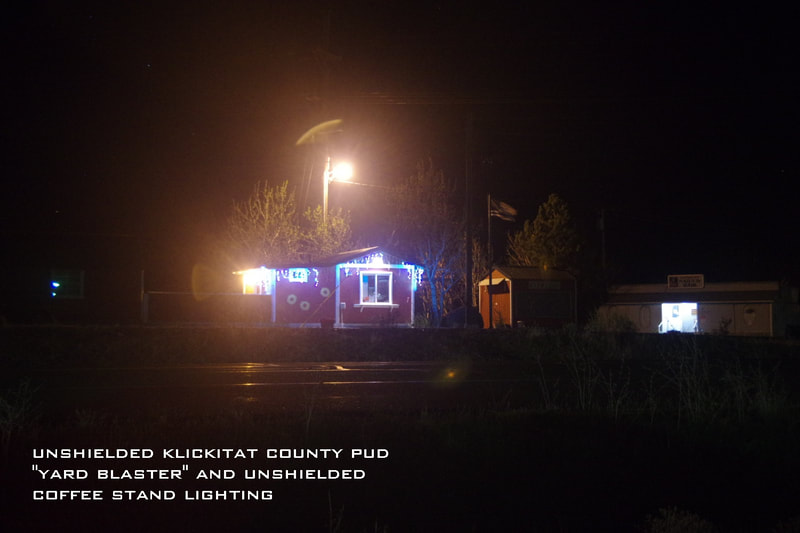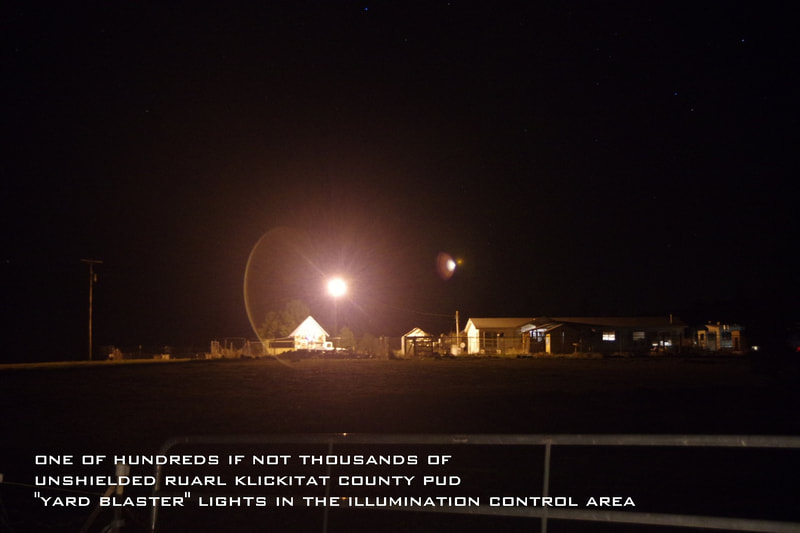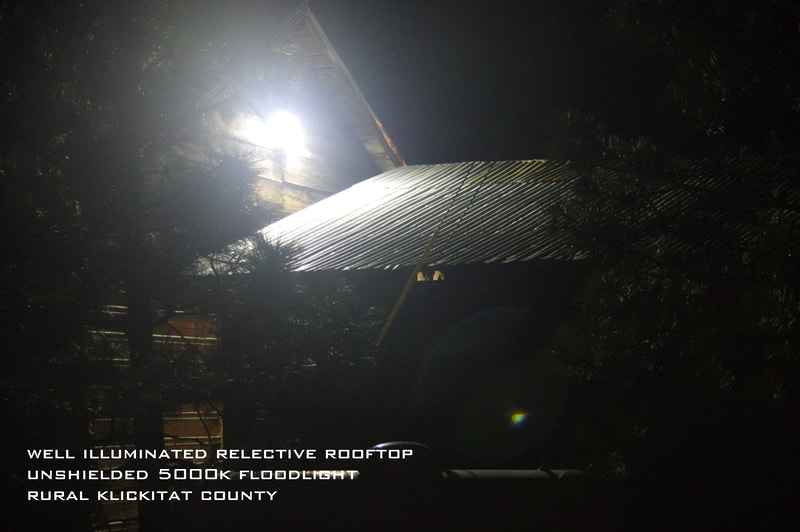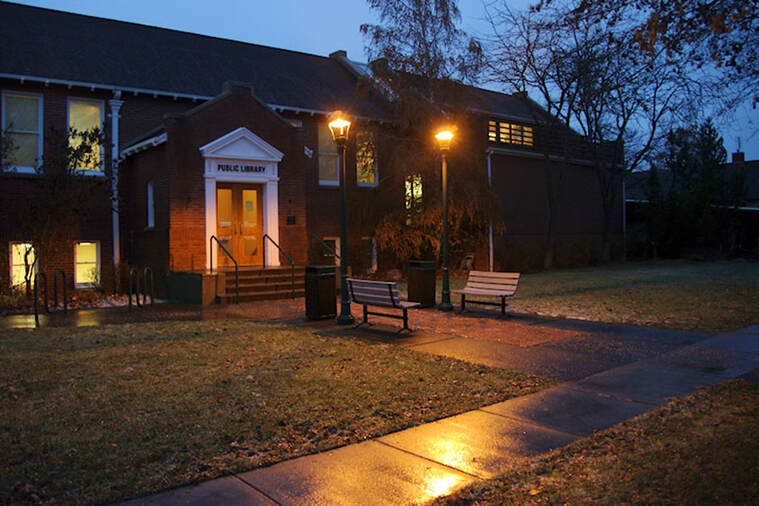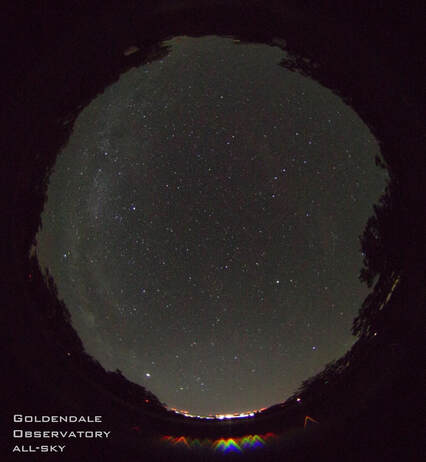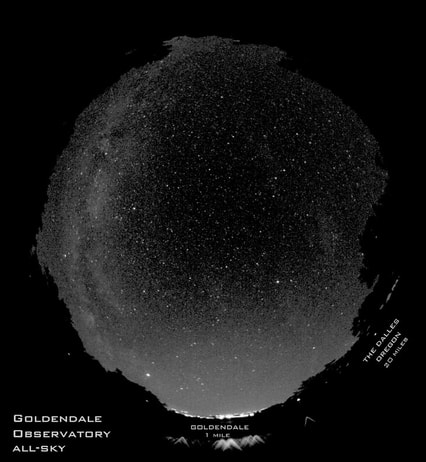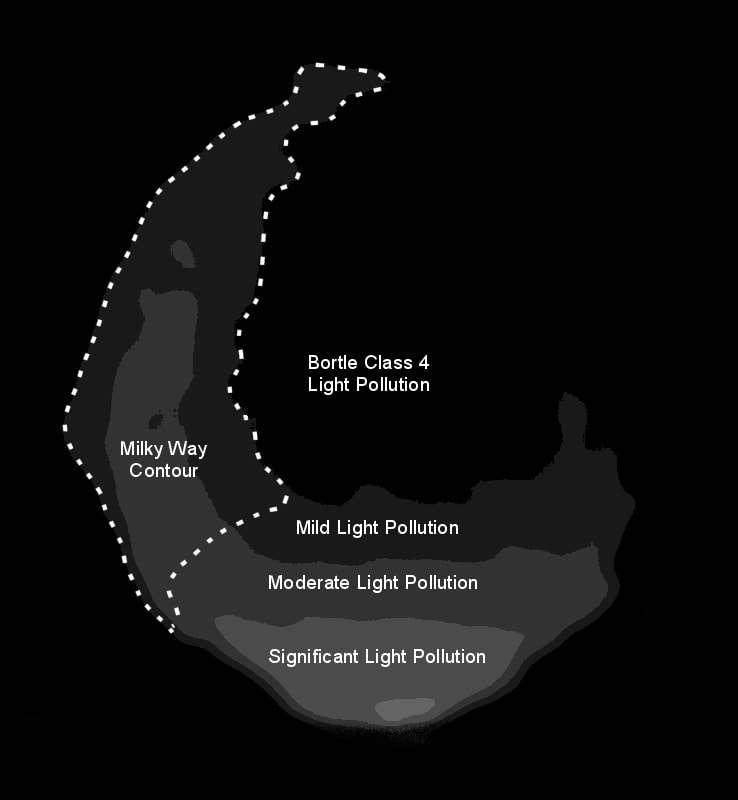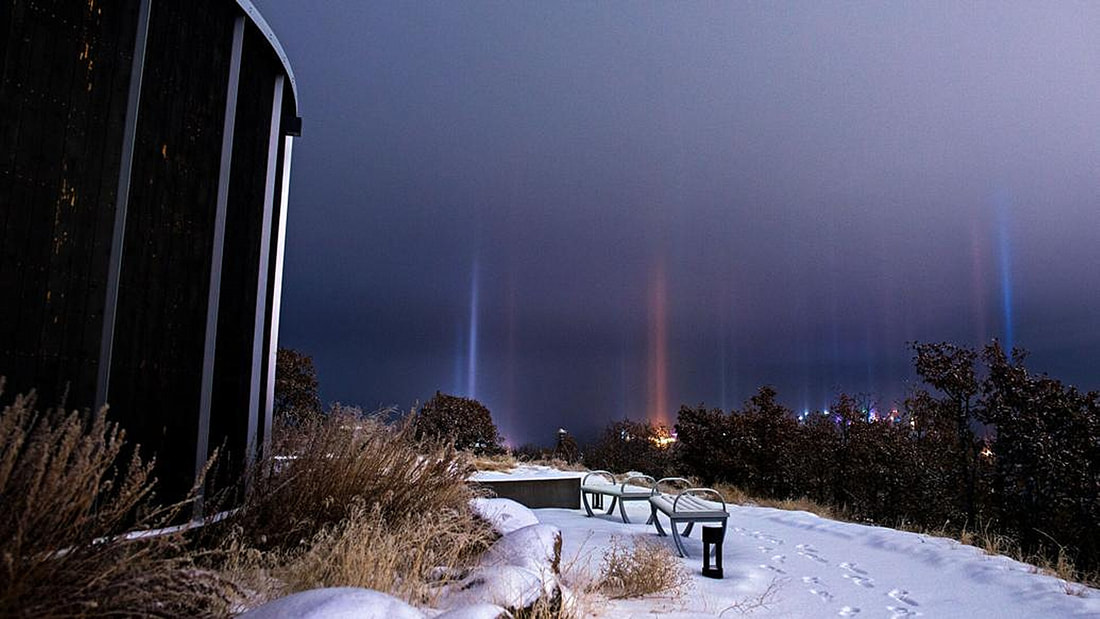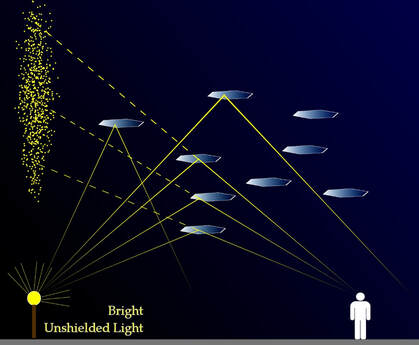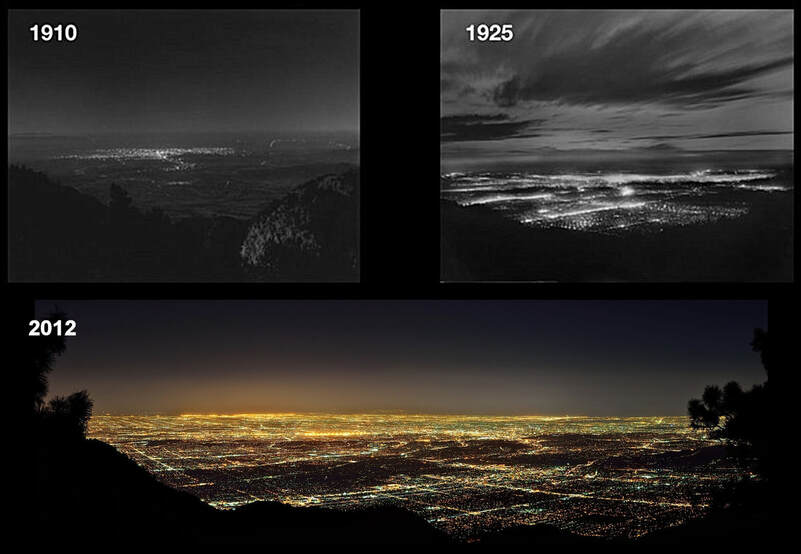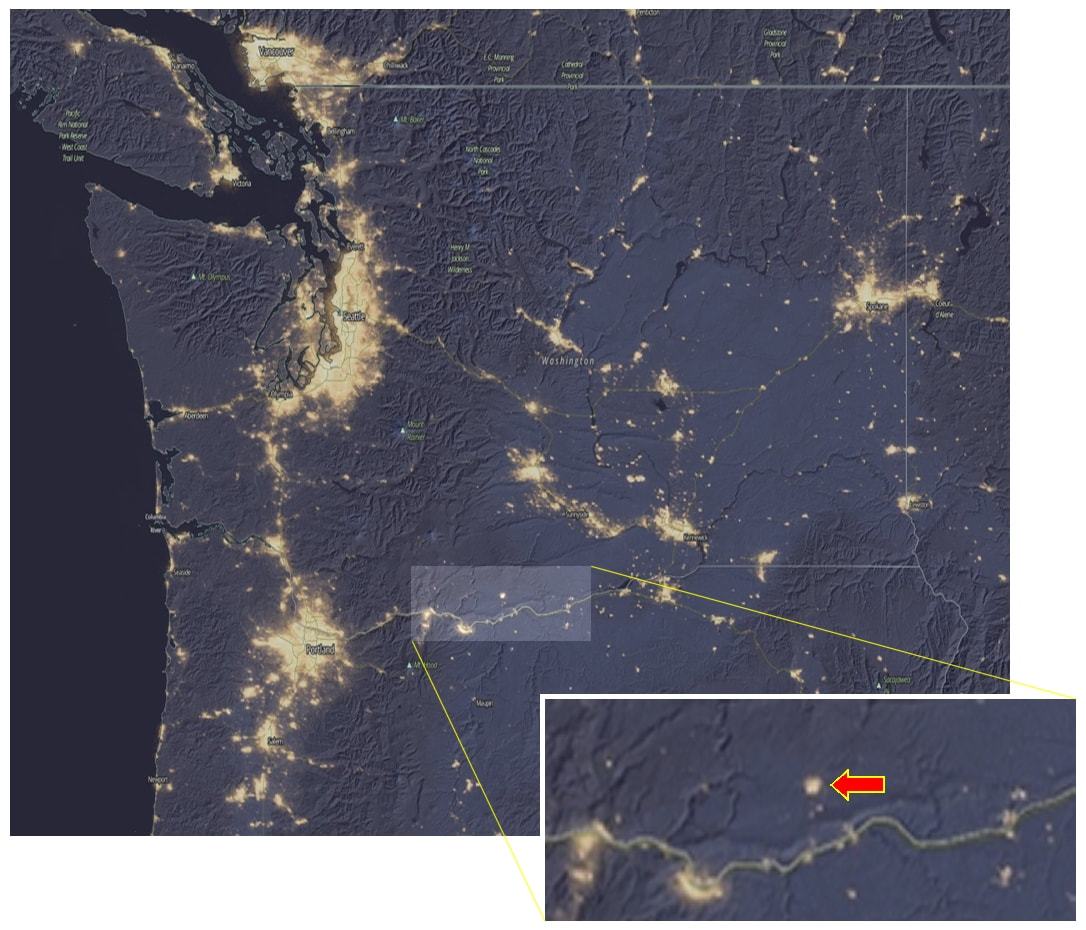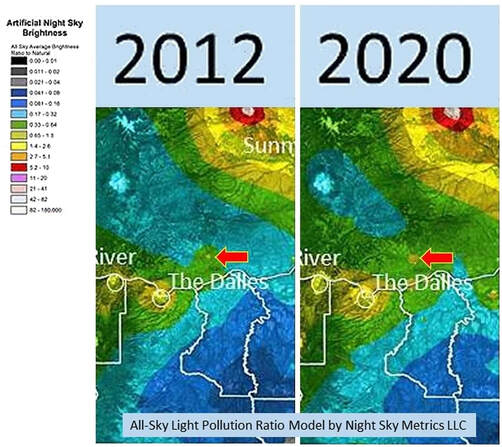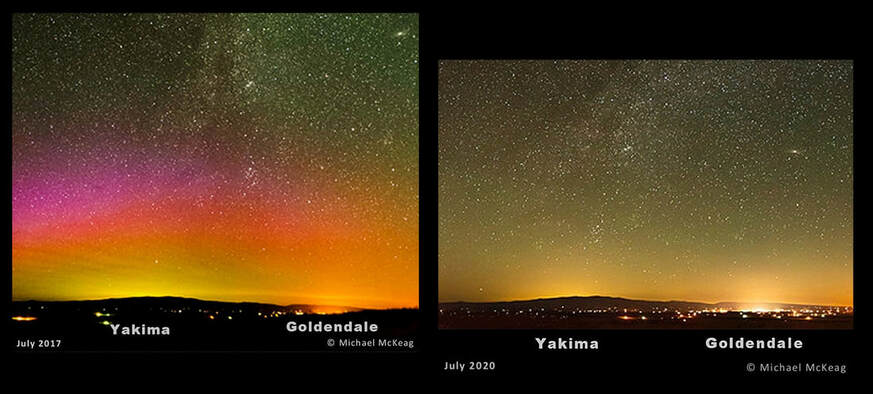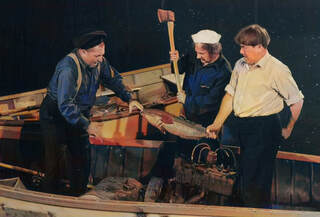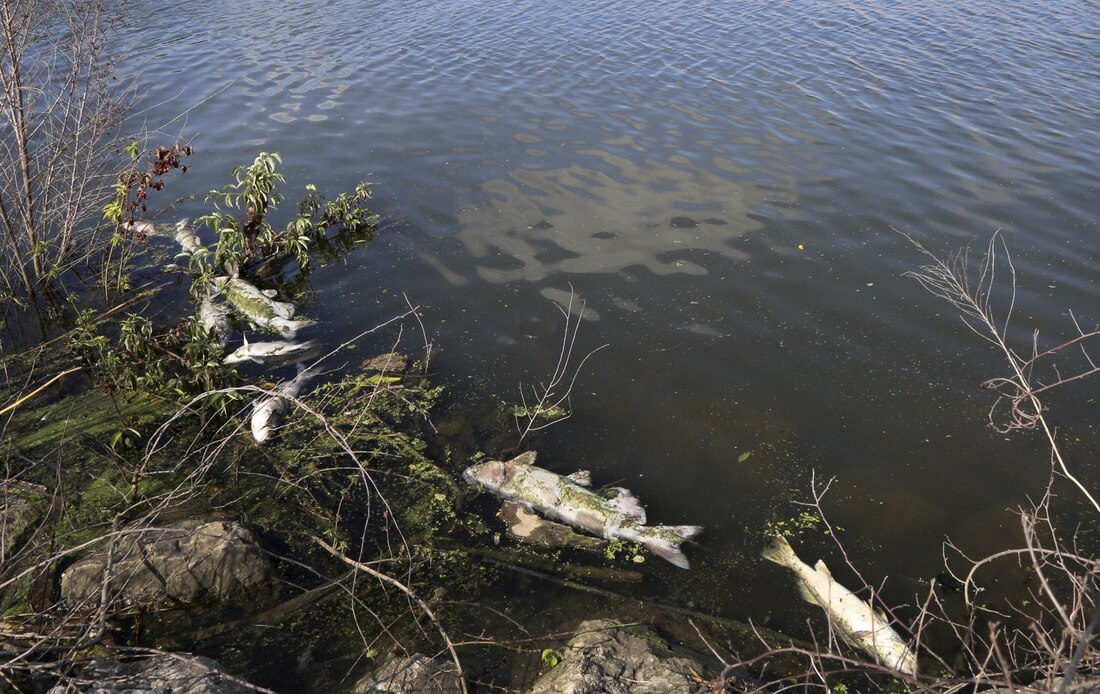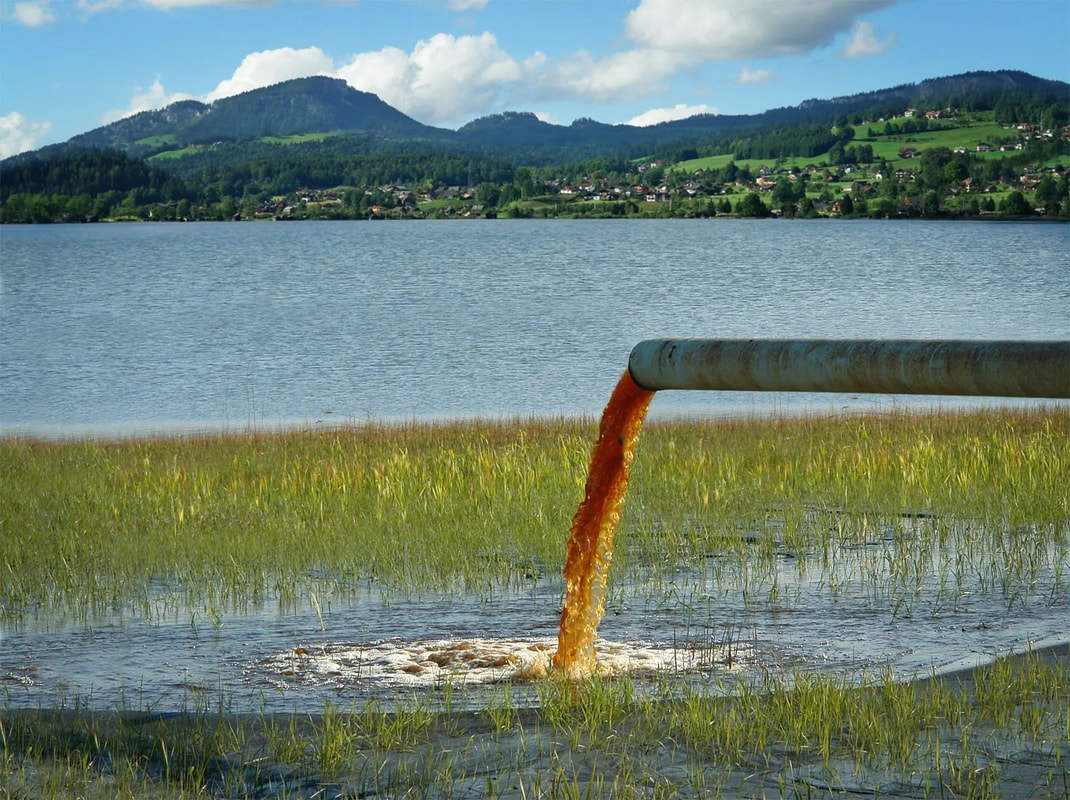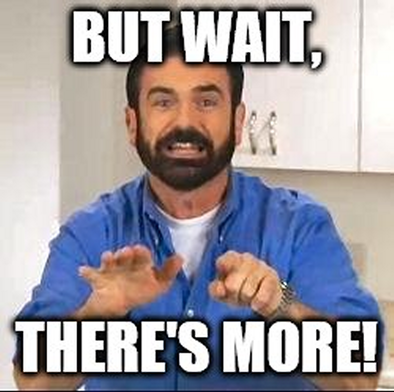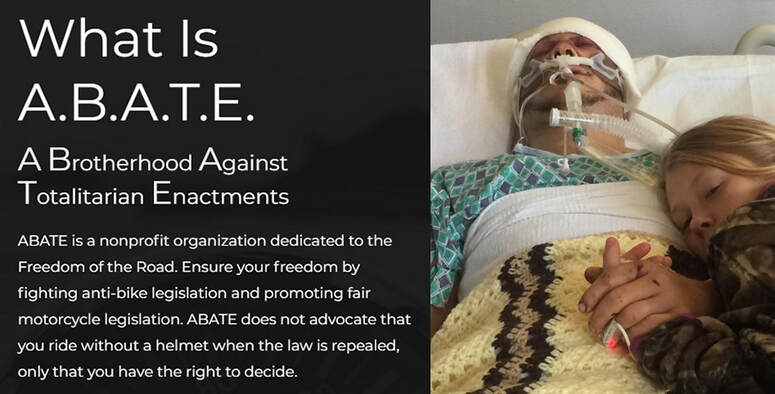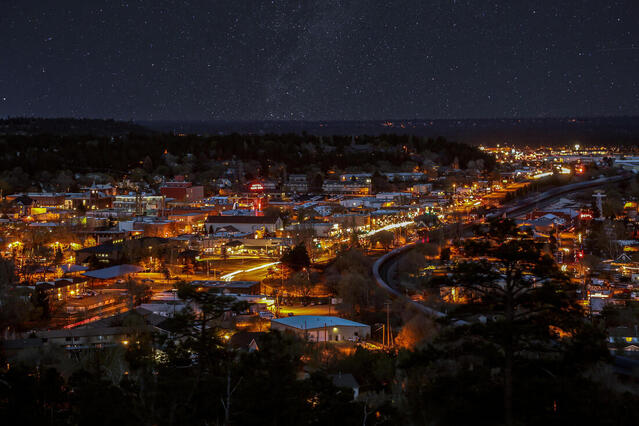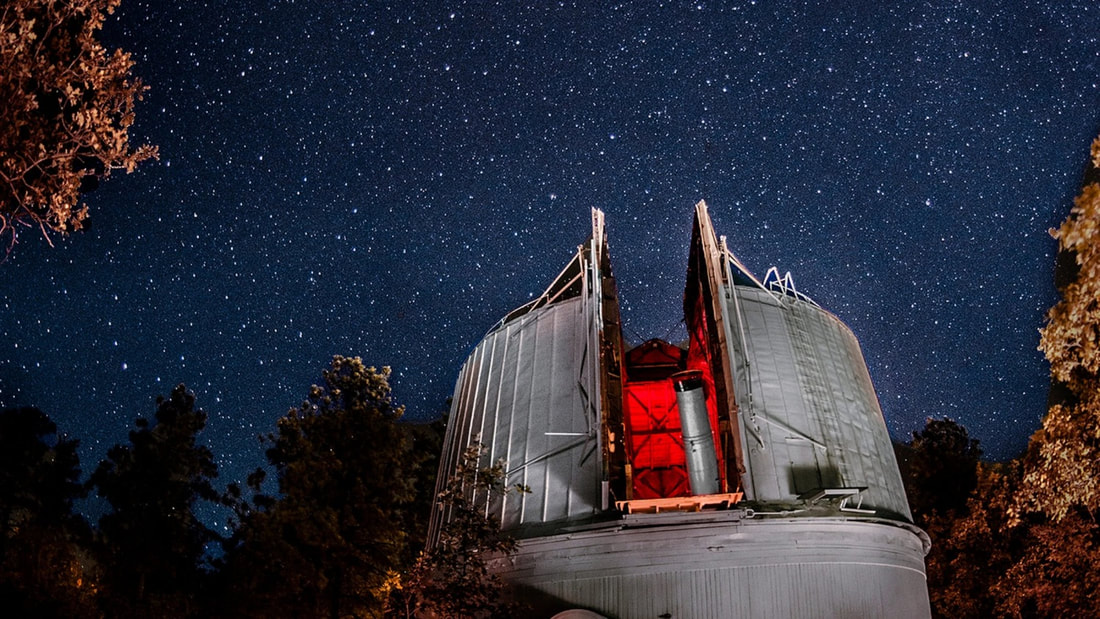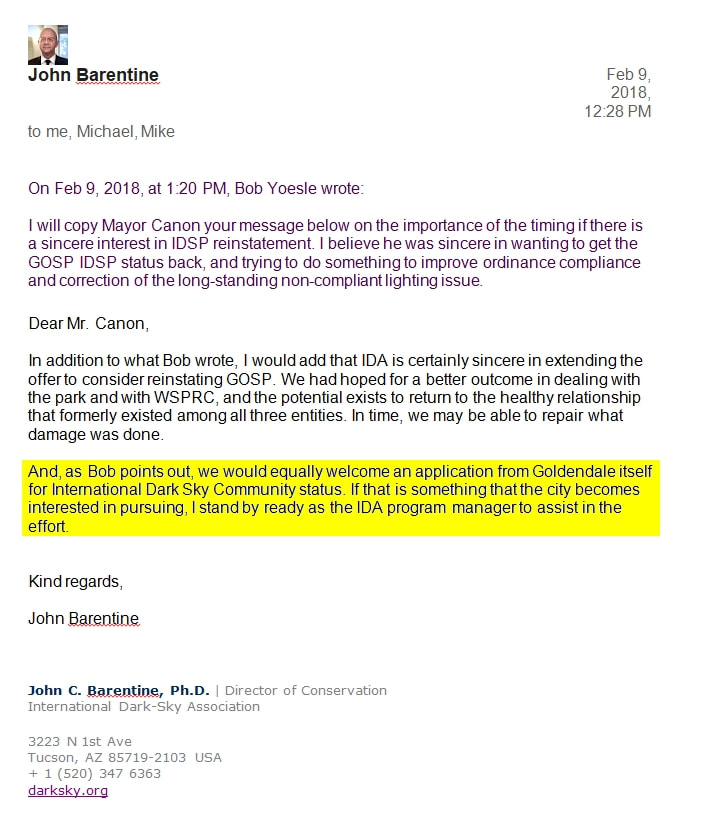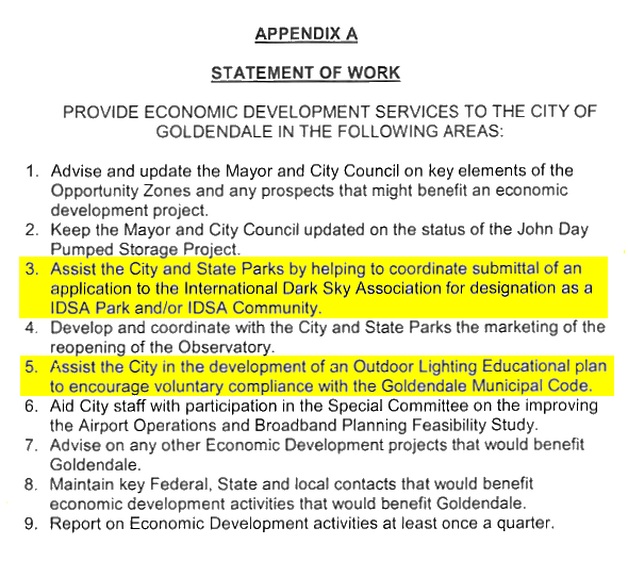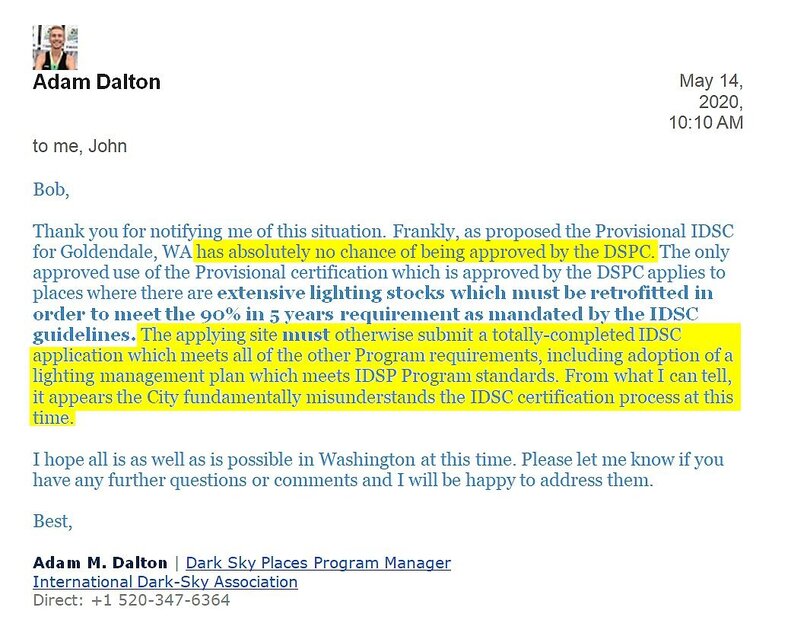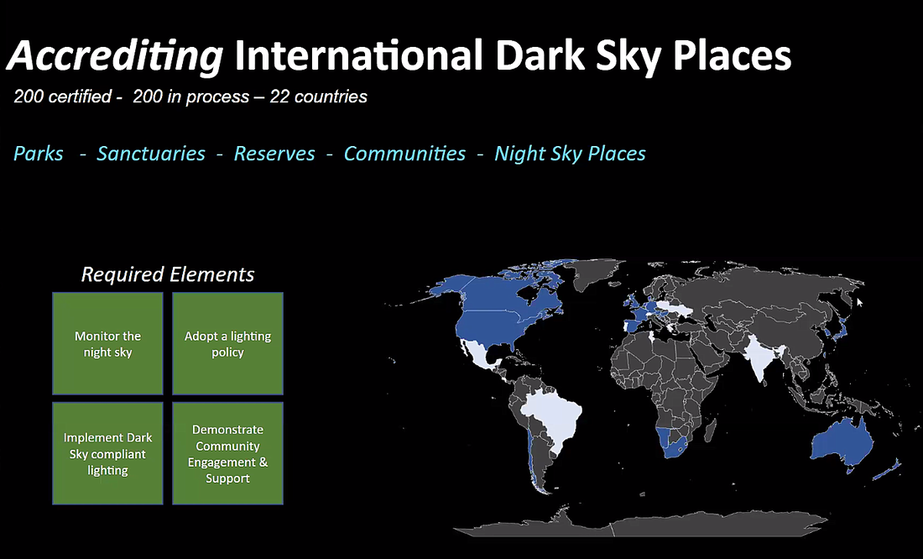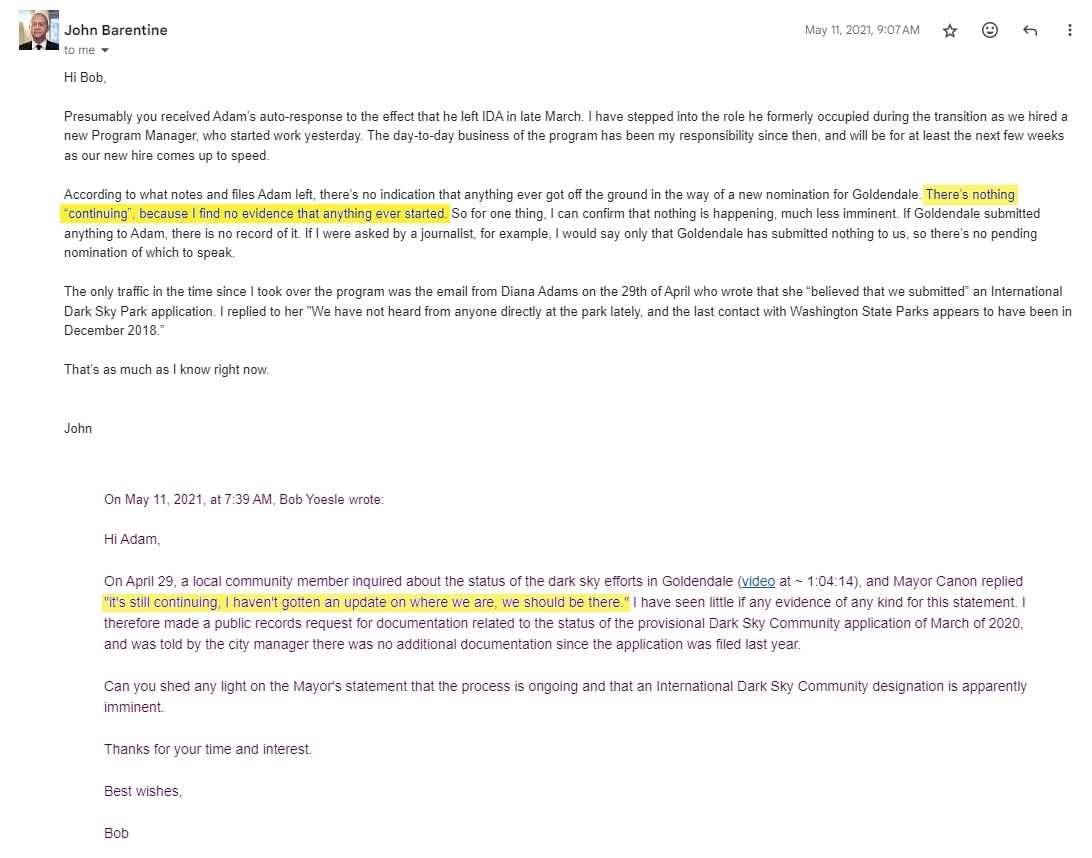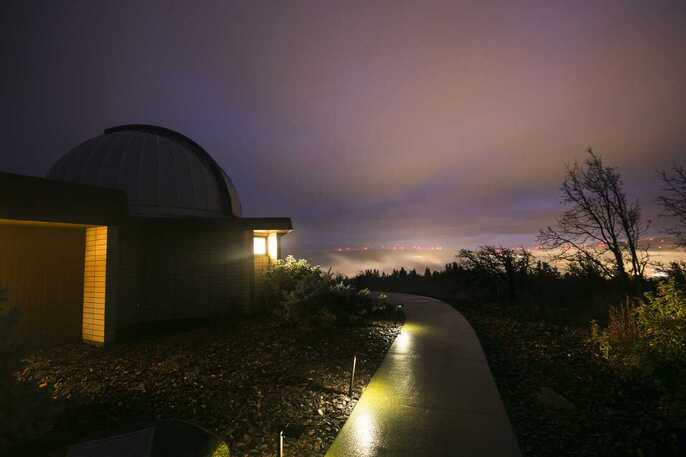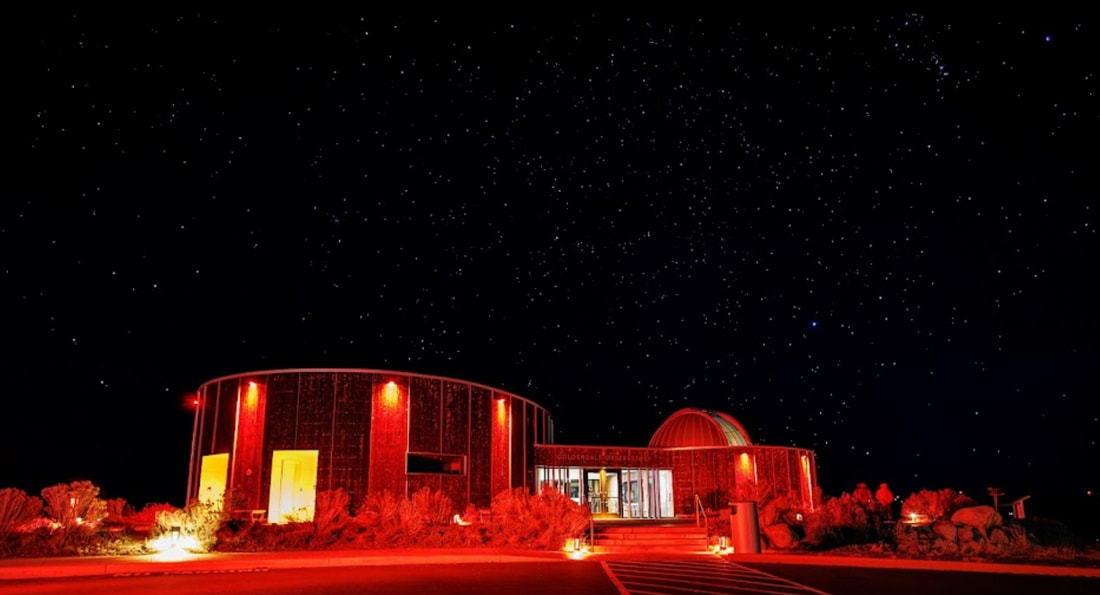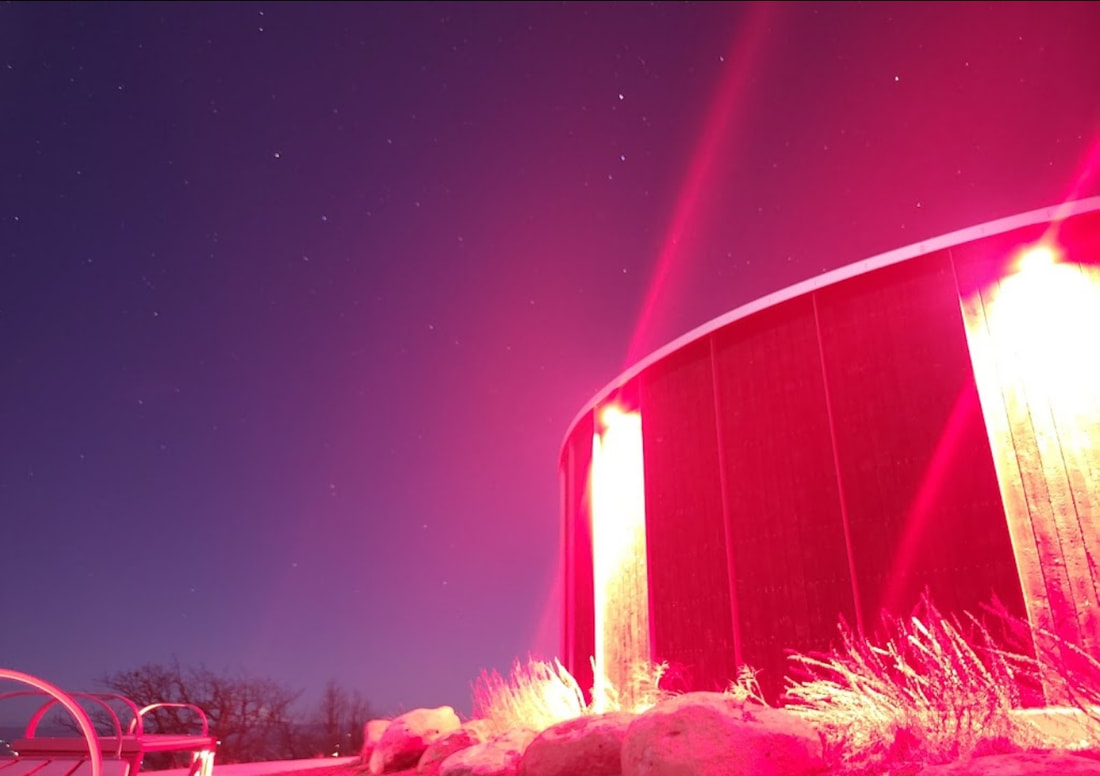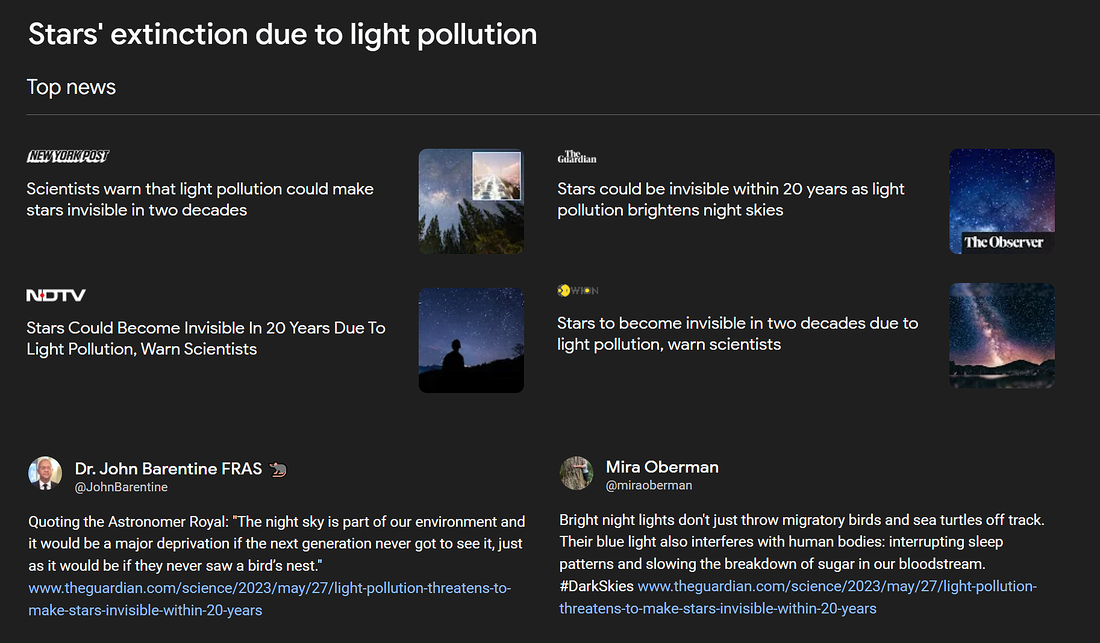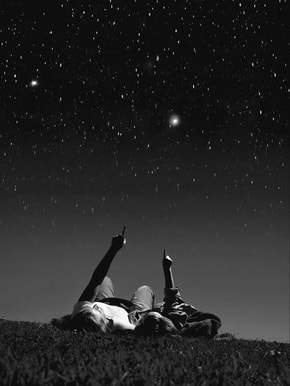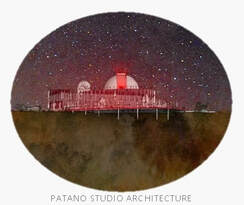|
|
In 2010, the Goldendale Observatory State Park in Klickitat County, Washington, became the sixth certified International Dark Sky Park in the world, and one of the first state parks in the United States to be so designated by the International Dark-Sky Association.
Washington State now has the unique distinction of being home to... |
|
Graphically intensive and best viewed on a high-resolution display or monitor.
Dark Sky Defenders exposes the little-known facts and disturbing details surrounding the loss of the International Dark Sky Park status, the inconvenient truths of Washington State Parks mismanagement, and Goldendale and Klickitat County's decades-long betrayal of their promises to educate the public about protecting the Goldendale Observatory's night sky.
State parks are parks or other protected areas managed at the sub-national level within those nations which use "state" as a political subdivision. State parks are typically established by a state to preserve a location on account of its natural beauty, historic interest, or recreational potential.
Wikipedia Emphasis added.
State parks are publicly owned lands set aside primarily for the purposes of recreation and environmental protection.
Encyclopedia.com Emphasis added.
Wikipedia Emphasis added.
State parks are publicly owned lands set aside primarily for the purposes of recreation and environmental protection.
Encyclopedia.com Emphasis added.
Washington State Park Goldendale Observatory Administrator Troy Carpenter echoes the Goldendale Chamber of Commerce that the purpose and "overwhelming" and "absolute priority" of the Goldendale Observatory is to be a "marketing tool" for local tourism and to "fill up hotel rooms and restaurant [parking] spaces" for the small town of Goldendale and surrounding Klickitat County.
Despite the Observatory's coveted telescope having been deliberately located in a rural area to escape light pollution of the night sky, Washington State Parks currently states providing education about light pollution and advocating for conservation and protection of the Observatory's night sky environment is a "low priority," "hot-button" "unpopular politically charged issue," "hippie dippy environmental activism," a "waste of money," and "pandering to amateur astronomers."
Washington State Parks greatly prefers pandering to local business and political interests at the expense of the larger statewide public interest.
Washington State Park Goldendale Observatory Administrator Troy Carpenter echoes the Goldendale Chamber of Commerce that the purpose and "overwhelming" and "absolute priority" of the Goldendale Observatory is to be a "marketing tool" for local tourism and to "fill up hotel rooms and restaurant [parking] spaces" for the small town of Goldendale and surrounding Klickitat County.
Despite the Observatory's coveted telescope having been deliberately located in a rural area to escape light pollution of the night sky, Washington State Parks currently states providing education about light pollution and advocating for conservation and protection of the Observatory's night sky environment is a "low priority," "hot-button" "unpopular politically charged issue," "hippie dippy environmental activism," a "waste of money," and "pandering to amateur astronomers."
Washington State Parks greatly prefers pandering to local business and political interests at the expense of the larger statewide public interest.
In a stunning reversal from Washington State Parks prior support for attaining the prestigious International Dark Sky Park designation for the Goldendale Observatory State Park in 2010 - which included provision of night sky conservation education programs - the Washington State Parks & Recreation Commission now opposes providing night sky conservation education or protection advocacy - and consequently "would go out of its way" to avoid a designation as an International Dark Sky Park.
Across the globe people are living under the increasing nighttime glow of artificial light, and over 95% of North Americans live under some level of a light polluted sky.
|
Weather satellites which have limited light pollution detection capabilities have previously indicated a 2% annual increase in light pollution. A new comprehensive study using a more accurate method of measurement has established a four times greater annual increase in light pollution - much of which is attributed to the explosion of cheaper and brighter light emitting diode (LED) outdoor lighting. |
As a condition of being awarded the prized 24½ inch telescope built by Clark College in Vancouver, Washington, Goldendale and Klickitat County promised to protect the night sky from light pollution which would interfere with its use as an astronomical science education and research tool. They specifically promised to enact and enforce outdoor lighting ordinances and educate the public about the need for night sky protection.
These promises of night sky protection were apparently half-hearted at best, and remain unfulfilled. For decades Goldendale and Klickitat County have exploited the Goldendale Observatory for tourism WITHOUT any genuine desire to actually protect it via their belatedly adopted rudimentary and now outdated lighting codes. Along with the Greater Goldendale Area Chamber of Commerce, they have refused to inform or educate the public about the lighting ordinances and their importance for maintaining a dark night sky for the Observatory.
These promises of night sky protection were apparently half-hearted at best, and remain unfulfilled. For decades Goldendale and Klickitat County have exploited the Goldendale Observatory for tourism WITHOUT any genuine desire to actually protect it via their belatedly adopted rudimentary and now outdated lighting codes. Along with the Greater Goldendale Area Chamber of Commerce, they have refused to inform or educate the public about the lighting ordinances and their importance for maintaining a dark night sky for the Observatory.
Obviously, owning and operating an astronomical observatory is not part of the "knitting" the typical state park system is able to "stick to." Given that reality, one would have assumed Washington State Parks would have enlisted involvement of more knowledgeable stakeholders from the world of astronomy and science education to help guide its oversight and management. But Washington State Parks seems to have an insular organizational culture. For 33 years other than a lone under represented and repeatedly under supported Interpretive Specialist, no such direction or support was provided for the Goldendale Observatory State Park - and no such stakeholder involvement and guidance remains to this day.
Even more appallingly, with management and administration changes in 2013, Washington State Parks, in lockstep with its anti-environmental protection and anti-regulatory local business and political jurisdiction "partners," reversed course and abandoned any education and advocacy for protecting the "Heritage Site" Observatory's night sky natural resource heritage - the very reason the Goldendale Observatory exists where it does.
Washington State Parks has demonstrated in word and deed it has no interest in protecting the Goldendale Observatory State Park's night sky natural resource or its astronomical observation value. For marketing purposes Washington State Parks has falsely claimed that the increasingly bright night sky of the Goldendale Observatory is "beautifully dark" and getting "even darker."
Even more appallingly, with management and administration changes in 2013, Washington State Parks, in lockstep with its anti-environmental protection and anti-regulatory local business and political jurisdiction "partners," reversed course and abandoned any education and advocacy for protecting the "Heritage Site" Observatory's night sky natural resource heritage - the very reason the Goldendale Observatory exists where it does.
Washington State Parks has demonstrated in word and deed it has no interest in protecting the Goldendale Observatory State Park's night sky natural resource or its astronomical observation value. For marketing purposes Washington State Parks has falsely claimed that the increasingly bright night sky of the Goldendale Observatory is "beautifully dark" and getting "even darker."
No responsible observatory in the world - let alone an alleged science education facility - would take such a perverse position as to oppose providing public enlightenment about the value of conservation and protection of the night sky in general - or lie about the continuing degradation of its own vitally important night sky environment...
No responsible observatory in the world - let alone an alleged science education facility - would take such a perverse position as to oppose providing public enlightenment about the value of conservation and protection of the night sky in general - or lie about the continuing degradation of its own vitally important night sky environment...
Except the Goldendale Observatory State Park
Washington State Parks
A Subsidiary of the Chamber of Commerce
"Tourism is our primary focus."
Goldendale Observatory State Park Administrator Troy Carpenter April 29, 2021
Note that Carpenter explicitly states his personal view that an observatory has only two purposes: scientific research (which he disavows for the Goldendale Observatory), or exploitation for "popular" "educational tourism" - which the Chamber of Commerce sees as "absolutely on" and "truly an asset that can be utilized for ourselves."
Washington State Parks had previously entered a "partnership" with the Goldendale Chamber of Commerce, and which views the Goldendale Observatory State Park merely as an economic "asset to leverage" and an "amusement park," and place no value or importance on a dark night sky for the Observatory.
Carpenter's personal Washington State Park website - taken from the Friends of Goldendale Observatory with the help of the Chamber of Commerce, and now devoid of any mention of dark skies or light pollution - is paid for and "sponsored" by the Goldendale Chamber of Commerce. Together, they oppose informing the public about light pollution or advocating for the implementation of outdoor lighting regulations in place since 1979 allegedly intended to protect the Goldendale Observatory's night sky.
At the same time, Washington State Parks has deliberately excluded relevant astronomy interests and science education stakeholders from any role in setting priorities for the Goldendale Observatory State Park, and thereby disregarded what's in the broader statewide public interest.
Consequently it is not surprising that Goldendale Observatory State Park Administrator Carpenter asserted light pollution from Goldendale and Klickitat County is a "low priority," and education about the subject of light pollution is a "politically charged issue that makes us very unpopular" - with the local business interest and Chamber of Commerce "partners" of Washington State Parks.
On the other hand, echoing the Chamber of Commerce, Carpenter declared Washington State Park's "absolute" priority is increasing tourism and economic support for local restaurants and hotels - which coincidentally includes a Goldendale hotel and other businesses owned by a State Representative and her family.
Distillation
- Getting away from Portland, Oregon's light pollution was a main reason to relocate the massive 24½ inch telescope from Vancouver, Washington's Clark College to Goldendale. In order to obtain this historic telescope for the Goldendale Observatory, promises were made by community leaders in 1971 to protect it from the light pollution coming from Goldendale. Despite the presence of Goldendale and Klickitat County lighting codes put in place in 1979 for that purpose, the night sky of the Goldendale Observatory has been left unprotected from the damaging effects of over 50 years of unrestricted and increasing light pollution.
- Washingtonians acquired the Goldendale Observatory in 1980. An astronomical observatory is an unusual asset for a state park system. Per Observatory Administrator Carpenter, Washington State Parks had a leadership culture dominated by a "Ricky Ranger" law enforcement mentality. Apparently adverse to outside input which is completely unfamiliar with this type of facility and a relatively small part of the Washington State Parks system, led to the Washington State Parks and Recreation Commission failure to involve any bona fide expertise for the Goldendale Observatory oversight and management. No regional or statewide stakeholder involvement or strategic long-term assessment or planning for the Observatory was apparently developed. Therefore, Washington State Parks failed to honor let alone seriously address the purpose for relocation of the Observatory's telescope away from light polluted skies, or its need for protection from night sky degradation.
- This vacuum and deliberate exclusion of stakeholder input and qualified managerial oversight has allowed State Parks personnel to pursue their own unchecked agendas, resulted in the waste of tens of thousands of dollars, and has enabled a small group of local politicians and business interests to influence and dominate the priorities for the Goldendale Observatory State Park.
- Facing a financial crisis, Washington State Parks chose to be deferential to and enter into an "economic development" tourism-focused "partnership" with these short-sighted and self-interested local business and political interests, and therefore has shown it is unwilling to use any political capital to challenge these interests' agenda when it conflicts with conservation of the night sky. Ignoring what's in the broader statewide public interest, conservation of the Goldendale Observatory's night sky has been relegated to a "red-headed stepchild" status by Washington State Parks.
- Despite the importance of a dark night sky for its famous telescope, the night sky conservation education and advocacy requirements for being an International Dark Sky Park were therefore subverted by new Washington State Park management and Goldendale Observatory staff. In lockstep with local political and business interests' opposition to meaningful night sky protection, Washington State Parks personnel demonstrated no desire to provide education or advocacy for conservation of the Observatory's dark night sky due to it being an "unpopular" "hot-button" issue with these isolated small-town business/political interests. This subservience and absence of leadership ultimately led to the revocation of the International Dark Sky Park designation - the first (and only) International Dark Sky Park in the world ever to be decertified.
- This revocation came at the same time Washington taxpayers were about to spend 6 million dollars on facility upgrades for the Goldendale Observatory State Park, including costly enhancements to a telescope that requires a dark night sky for its superb views of the cosmos. The celestial grandeur the telescope was meant to explore will continue to suffer from easily preventable degradation due to a lack of conservation and protection by Goldendale and Klickitat County, and Washington State Park's opposition to provide education about - or to responsibly advocate for - night sky conservation.
What follows on this and the accompanying pages is a wealth of material that details the failure of Washington State Parks, the City of Goldendale, and Klickitat County to protect the night sky for the telescope, and the observatory which existence was predicated on providing such protection. It also details the significant extent of general managerial failures, ignorance of astronomical equipment and observatory best practices, and the missed potential of the Goldendale Observatory:
- No night sky education or conservation and protection as promised by Goldendale and Klickitat County in order to obtain the coveted main telescope;
- No public participation in policy development or decision making processes;
- Exclusive priority given to local tourism, marketing, and Discover Pass sales;
- No involvement of stakeholders in astronomy or science education;
- No participation of schools, colleges, and amateur astronomy groups as intended;
- Antiquated astronomy and science education modalities;
- Defective telescope modifications;
- Defective observatory location siting;
- Defective observatory design;
- Mismanagement and loss of tens of thousands of taxpayer dollars;
- Unethical behavior and malfeasance by Washington State Parks personnel and the Greater Goldendale Area Chamber of Commerce.
Dark night skies are the critical natural resources of astronomical observatories, and increasingly threatened around the world.
These three images taken in 1959, 1980 and 2003 show the evolutionary change and growth of the artificial lights emitted by the greater Tucson area and the communities to north and south, as seen from Kitt Peak National Observatory, about 56 miles (90 kilometers) southwest of the downtown area. Although the light emission has obviously grown, qualitatively, it appears to have lagged the explosive growth in Tucson's population during this period. Light pollution control ordinances and outstanding public cooperation have limited stray light to the extent that Kitt Peak remains a world-class astronomical site. NOIRLab
The night sky is as much a part of the natural environment and ecosystems as trees, mountains, rivers and lakes.
Light Pollution keeps over 80% of Americans from being able to see the Milky Way.
Fanciful murals on walls do nothing to ensure stars and nebulas remain visible in the sky.
Fanciful murals on walls do nothing to ensure stars and nebulas remain visible in the sky.
2023 marked 50 years since the dedication of the Goldendale Observatory, and 50 years of broken promises to protect the night sky of the Observatory for astronomical observation, public education, and research.
Friends of Goldendale Observatory honors the amateur astronomers and the community college who built the Observatory’s telescope. As a condition of awarding the telescope to Goldendale, they were promised that it would be protected from the night sky damaging effects of light pollution coming from Goldendale and Klickitat County.
Friends of Goldendale Observatory honors the amateur astronomers and the community college who built the Observatory’s telescope. As a condition of awarding the telescope to Goldendale, they were promised that it would be protected from the night sky damaging effects of light pollution coming from Goldendale and Klickitat County.
A Golden Anniversary of Broken Promises
"Rather Disappointing"
"The presentation at the observatory last Saturday [October 14, 2023], on the whole, was rather disappointing. We listened to two persons from Washington State Parks who had no real connection to the history of this park, and the slide show that depicted the history was presented at the end, as almost an afterthought. A little wave was given to Steve Stout, whose 30-plus years of service certainly merited at least an opportunity to share some of his experiences as the guide/mentor of this site...
This state park is a boon to our community that has been underappreciated for some time, so I shouldn’t have been surprised at the small turnout..."
Letter to the Editor - The Goldendale Sentinel - by Darrell Watson Jr., Goldendale
This state park is a boon to our community that has been underappreciated for some time, so I shouldn’t have been surprised at the small turnout..."
Letter to the Editor - The Goldendale Sentinel - by Darrell Watson Jr., Goldendale
No surprise indeed.
Despite the promises made to Clark College and the amateur astronomers who built the Observatory’s prized 24½ inch telescope, Goldendale and Klickitat County have NOT TRULY VALUED – let alone promoted – the Observatory as a valuable regional astronomical resource to be celebrated and protected. Instead, the Observatory has been regarded as an “asset to be leveraged” and exploited – like a brothel – and for the same reasons: to “fill up motel and restaurant parking spaces.”
While being opposed to protecting the telescope's night sky, the Greater Goldendale Area Chamber of Commerce has referred to the Observatory as a "great treasure" – and state-taxpayer-funded "amusement park" for generating tourism to a small town in a rural county. The Chamber of Commerce states the Observatory pumps $5 million annually into the local economy. In return, Goldendale and Klickitat County show their lack of appreciation to the Washington state taxpayer's generosity by providing the Observatory decades of night sky degradation.
So why would Washington State Parks leadership – which has no organizational interest and has failed to involve any constituencies in astronomy – see it as anything other than as the locals see it and act any differently? For Washington State Parks, the Observatory is little more than an "asset to be leveraged" for generating Discover Pass sales.
Rather than honor the purposes that the community college and amateur astronomers who built the Observatory’s telescope had – and without whom there would be no Goldendale Observatory – Washington State Parks now denigrates amateur astronomers, insultingly calling them "astronomy nerds" and stating they “devolve observatories into clubhouses.”
The Goldendale Observatory was originally intended to serve multiple constituencies and interests. These primarily included regional school students "from kindergarten to college," and "amateur astronomers."
Under the Washington State Parks and Recreation Commission, these constituencies have been discarded without any stakeholder input or any public participation. Washington State Parks states the Observatory primarily serves the local business interests in Goldendale and Klickitat County for the purpose of generating tourism revenue.
Additionally, it has prioritized its own organizational self-interest for Discover Pass sales, as well as its Administrator's desire for "popularity" and need for admiration, self-described as being the "Administrator of the Observatory with America's best public telescope." Thanks to the incompetency of the Administrator, this claim will be shown to be a total fabrication.
If the purpose of an Observatory is only to be a Discover Pass sales and "popular" tourism-generating science entertainment "amusement park" (with a wished-for "play structure for kids to play on"), and a compromised large observatory-class telescope located in an increasingly light polluted sky, it could and should have been left in the Portland, Oregon - Vancouver, Washington metropolitan area.
Under the Washington State Parks and Recreation Commission, these constituencies have been discarded without any stakeholder input or any public participation. Washington State Parks states the Observatory primarily serves the local business interests in Goldendale and Klickitat County for the purpose of generating tourism revenue.
Additionally, it has prioritized its own organizational self-interest for Discover Pass sales, as well as its Administrator's desire for "popularity" and need for admiration, self-described as being the "Administrator of the Observatory with America's best public telescope." Thanks to the incompetency of the Administrator, this claim will be shown to be a total fabrication.
If the purpose of an Observatory is only to be a Discover Pass sales and "popular" tourism-generating science entertainment "amusement park" (with a wished-for "play structure for kids to play on"), and a compromised large observatory-class telescope located in an increasingly light polluted sky, it could and should have been left in the Portland, Oregon - Vancouver, Washington metropolitan area.
However, a small-town tourism-focused public entertainment sideshow was not the reason for the telescope's construction and intended use.
This large and sophisticated telescope was specifically designed to be able to observe faint stars, nebulas, and galaxies. Built by amateur astronomers for Clark College in Vancouver, Washington, it was meant to provide not only the public with appreciation and education of astronomical science and the night sky; it specifically included astronomical observation and education for primary schools, secondary schools, and regional college students and amateur astronomers, and included use for activities such as spectroscopy, photometry, and imaging. It was explicitly to be available to "advanced amateur astronomers" "for their own observing/research programs."
In 1971 The Oregonian newspaper in Portland, Oregon, reported on concerns by Clark College officials that the Observatory's proposed location might be too close to Goldendale due to light pollution from the town’s lights interfering with the telescope's intended uses and potential. Professional astronomers were consulted, who advised the adoption of lighting ordinances to limit light pollution coming from Goldendale and surrounding Klickitat County.
Therefore, as a condition of being awarded the massive observatory-class telescope, Goldendale and Klickitat County leaders agreed that they would protect the night sky it needed from light pollution through education and the adoption of outdoor lighting regulations.
This large and sophisticated telescope was specifically designed to be able to observe faint stars, nebulas, and galaxies. Built by amateur astronomers for Clark College in Vancouver, Washington, it was meant to provide not only the public with appreciation and education of astronomical science and the night sky; it specifically included astronomical observation and education for primary schools, secondary schools, and regional college students and amateur astronomers, and included use for activities such as spectroscopy, photometry, and imaging. It was explicitly to be available to "advanced amateur astronomers" "for their own observing/research programs."
In 1971 The Oregonian newspaper in Portland, Oregon, reported on concerns by Clark College officials that the Observatory's proposed location might be too close to Goldendale due to light pollution from the town’s lights interfering with the telescope's intended uses and potential. Professional astronomers were consulted, who advised the adoption of lighting ordinances to limit light pollution coming from Goldendale and surrounding Klickitat County.
Therefore, as a condition of being awarded the massive observatory-class telescope, Goldendale and Klickitat County leaders agreed that they would protect the night sky it needed from light pollution through education and the adoption of outdoor lighting regulations.
|
|
Unfortunately, the culture and politics of Goldendale and Klickitat County are not conducive to environmental conservation or even basic aesthetics.
Klickitat County is the only county out of six bordering the Columbia River that refused to adopt any development regulations for protecting the viewscapes and ecology of the magnificent Columbia River Gorge National Scenic Area: |
|
|
|
Goldendale has almost triple the US poverty rate, and poorly developed or enforced building and zoning codes, which has resulted in the town being the butt of jokes about absentee slumlords and "good old boy" business/property owners who control the town and don't want significant improvements which would cost them money. With little to no population or economic growth for 40 or more years, Goldendale went so far as to pay $10,000 to a consultant to explore why, who among other things advised them a significant portion of the town looked "trashy." |
|
As can be seen in the photos further below, City and County facilities themselves can be found adorned with "trashy" glaring unshielded light polluting fixtures which violate the lighting codes which were adopted decades ago in order to protect the Goldendale Observatory.
This culture of the "wild west" and lack of responsible development standards and best practices has also resulted in the opposition to protecting the night sky of the alleged "treasured jewel" state-funded tourism-generating cash-cow Goldendale Observatory State Park via the lighting codes adopted specifically to protect it decades ago. They behave just like spoiled children who are given everything and don't really value or care for anything.
Even though State Parks are defined as being protective of the natural environment, Washington State Parks no longer has the courage to stand up and be a voice for protecting the Goldendale Observatory from its greatest threat - increasing light pollution coming from Goldendale and Klickitat County.
A Champion of Misinformation
"One of the most asinine statements ever made in the history of astronomy." Clyde Tombaugh, amateur astronomer, discoverer of Pluto, speaking to archangel Gabriel.
Fake History Promoted by Washington State Parks
Observatory Administrator Troy Carpenter wants to rewrite history. In a June 2023 local newspaper article Carpenter states that he would change the Observatory's objectives to be "less about stargazing" and "enjoying the night sky" - which he equates to being the priorities of amateur astronomers - and more about Carpenter's self-centered professorial Socratic method of science edutainment, along with an "emphasis on tourism." Carpenter alleges this is what the Observatory founders, including Clark College and the amateur astronomers who built the telescope, wanted:
"They wanted it [Goldendale Observatory] to be a science center in an educational facility and less a clubhouse for amateur astronomers... because that was whet the founders wanted for the place." Emphasis added.
Carpenter is a pants-on-fire liar. You couldn't find a better example of Carpenter's pathological lying, twisting of facts, and use of sophistry.
Carpenter would have you believe his personal "false narrative," instead of the amateur astronomers themselves who spent years building the 24½ inch telescope, which they called "the centerpiece of the observatory," and who stated the use for the telescope would be in an "observatory unlike any other." This included "helping to interest young people still in grade or high school" (as opposed to exclusive institutional use for research "by relatively few people"), and explicitly intended the Goldendale Observatory to be available for "helping the advanced amateur astronomer."
Here's what Don Conner, who made the telescope optics, wrote in 1977 after the Observatory first opened up with consistent staffing: "A board of local citizens has built up the equipment and staff so that now the observatory is ready for amateurs to undertake their own observing projects." Emphasis added.
With the Observatory under direction of the previous Interpretive Specialist Steve Stout (who started as an avid amateur astronomer), Carpenter denigrated his predecessor's 33 years at the Observatory, complaining upon his arrival "there was still that element of this is a special place for amateur astronomy."
"They wanted it [Goldendale Observatory] to be a science center in an educational facility and less a clubhouse for amateur astronomers... because that was whet the founders wanted for the place." Emphasis added.
Carpenter is a pants-on-fire liar. You couldn't find a better example of Carpenter's pathological lying, twisting of facts, and use of sophistry.
Carpenter would have you believe his personal "false narrative," instead of the amateur astronomers themselves who spent years building the 24½ inch telescope, which they called "the centerpiece of the observatory," and who stated the use for the telescope would be in an "observatory unlike any other." This included "helping to interest young people still in grade or high school" (as opposed to exclusive institutional use for research "by relatively few people"), and explicitly intended the Goldendale Observatory to be available for "helping the advanced amateur astronomer."
Here's what Don Conner, who made the telescope optics, wrote in 1977 after the Observatory first opened up with consistent staffing: "A board of local citizens has built up the equipment and staff so that now the observatory is ready for amateurs to undertake their own observing projects." Emphasis added.
With the Observatory under direction of the previous Interpretive Specialist Steve Stout (who started as an avid amateur astronomer), Carpenter denigrated his predecessor's 33 years at the Observatory, complaining upon his arrival "there was still that element of this is a special place for amateur astronomy."
Steve Stout age 34 - an amateur astronomer from age 14 - became the Goldendale Observatory Director March 1, 1981, after astronomer Gary Fouts resigned to take a position at Mt. Wilson Observatory near Pasadena, California. Stout became the first Washington State Parks Interpretive Specialist when the Goldendale Observatory officially became a State Park on July 1, 1981. Like the Observatory's telescope makers and the community college that funded it, Stout stated "he is happy to donate my time beyond the call... for amateur astronomers and the public," and that "one of his favorite projects is working with the Middle School Astronomy Club." Goldendale Sentinel.
Goldendale Observatory Owes its Very Existence
to Amateur Astronomers
to Amateur Astronomers
In reality, being a "special place for amateur astronomy" is EXACTLY what the telescope builders themselves and Observatory founders intended from the beginning - and the Washington State Parks Observatory interim Directors including Yantis, Fouts, and to a degree even Stout.
Washington State Parks - without a shred of public involvement - has completely changed the purposes of the Goldendale Observatory, and made it their mission to eradicate awareness of its original intentions, purposes, and history:
Washington State Parks - without a shred of public involvement - has completely changed the purposes of the Goldendale Observatory, and made it their mission to eradicate awareness of its original intentions, purposes, and history:
|
Newly arrived in the fall of 1979, amateur turned professional astronomer Gary Fouts was the Goldendale Observatory Director who partook in the Observatory's transfer to Washington State Parks in 1980. "When the observatory is sold to state parks, Fouts will go with it... Fouts has organized a high school and middle school astronomy club at the Goldendale Observatory. He said he will organize clubs for amateur astronomers at the beginning level and a more advanced level." The Goldendale Sentinel. However, Fouts had continued concerns about funding and operations when Washington State Parks took over, and left the Observatory in 1981 just prior to Stout's 33 year tenure.
|
Carpenter also habitually references his personal "alternative facts" that the Observatory founders and telescope makers wanted it to be only for public education, and allegedly did not want it used for research - another lie. Back in the real world, Conner stated, "the 24½" telescope does have a research potential, and should be reserved for some such use."
|
Carpenter has added amateur astronomers to his anti-research telescope use falsehoods. He denigrates the Goldendale Observatory founders well-established and unquestionable desire that in addition to public science education, the Goldendale Observatory telescope should also serve the amateur astronomy community. After all, THEY were amateur astronomers themselves. Without any substantiation, Carpenter belittles involvement of amateur astronomers with an observatory as "devolving" it into a "clubhouse."
|
Washington State Parks truly wants you to get LOST IN SPACE.
|
There are many public observatories in the United States, and hundreds around the world, which are successfully managed and staffed by amateur astronomers and volunteers, as was the Goldendale Observatory from 1973 to 1981 and through 2014. When Stout was hired by the Observatory Corporation in 1981 just prior to the purchase by Washington State Parks, he was a member of the Seattle Astronomical Society, who Washington State Parks chose to retain as the Goldendale Observatory State Parks' Interpretive Specialist.
Prior to being hired by Washington State Parks, Carpenter had no association or employment with any observatory, no affiliation with amateur astronomers, nor formal specialized education in astronomy or any other science discipline. He therefore has no qualifications or experience to make an "amateurs devolve observatories into clubhouses" statement. Carpenter got a simple 8 inch Dobsonian telescope 20 years ago and apparently as a teenager had an internet connection by which to learn his astronomical science. This very likely explains his bizarre statement that, "Amateur astronomy made more sense before the internet." Apparently Carpenter favors non-professional websites like Quora - an open platform where anyone can answer questions regardless of their expertise or qualifications - or lack thereof.
Using the same "logic," why would you need Carpenter's astronomy "science center" for an astronomy education experience? Today anyone can find astronomy education presentations by more talented and knowledgeable amateur and professional astronomy educators, as well as real scientists, on the internet, and become a self-taught astronomy "expert" like Carpenter. Perhaps 'science centers made more sense before the internet.'
What you can't get on the internet or listening to Carpenter is a first-person live view of star clusters, the ring nebula, a spiral galaxy, craters on the moon, cloud belts on Jupiter or the rings of Saturn through a large observatory-class telescope under a truly breathtakingly dark night sky filled with stars, nebulas, and the stardust clouds of the Milky Way containing uncountable billions of stars.
Carpenter states he wants to downplay observational astronomy - "enjoying the night sky" and "stargazing" - opining that they are relics of the Observatory's past he wants to distance from, and that the Observatory should now be more about his "Socratic method science education." While the Goldendale Observatory "Heritage Site" was only possible due to the dedication of amateur astronomers, and has a rich legacy of amateur astronomer involvement. Carpenter is intent on erasing this heritage of amateur astronomers because it allegedly "devolves observatories into clubhouses."
Without any stakeholder involvement, or any knowledgeable or informed oversight of his decisions by Washington State Parks, Carpenter's habitual pattern of deceit is to invent his own alternate reality, distort facts, change events, and make things up that justify his personal agenda and hope the less knowledgeable recipient will believe him, as with his 'amateurs devolve observatories into clubhouses' nonsense.
Failing Telescope Design 101
For a prime example, Carpenter talked Washington State Parks into the need to spend over $25,000 on a "discounted" uselessly lightweight ~ 30 lbs. (14 kg) and complex 24½ inch (0.6 m) "NASA-DARPA" "research grade," rocket-fuel-saving cellular primary mirror to replace the "deteriorated" original 24½ inch 205 lbs. (93 kg) solid Pyrex mirror* - even though the telescope would never be launched into Earth orbit, and Carpenter conflictingly claims the telescope was never intended for research use.
The real purpose of choosing this mirror was to make it appear how special Carpenter was to be able to secure such a high-tech high-cost telescope mirror, for which he could grandiosely claim to be the "Administrator of the Observatory with America's best public telescope." After two years, the multiple complex cellular mirror casting attempts remained a failure, and Washington State Parks lost its over $12,000 non-refundable 50% deposit when it was forced to cancel the order near the end of the Washington State funding biennium. Curiously, Washington State governmental agencies are generally prohibited from making such risky prototype purchases and non-refundable expenditures.
The real purpose of choosing this mirror was to make it appear how special Carpenter was to be able to secure such a high-tech high-cost telescope mirror, for which he could grandiosely claim to be the "Administrator of the Observatory with America's best public telescope." After two years, the multiple complex cellular mirror casting attempts remained a failure, and Washington State Parks lost its over $12,000 non-refundable 50% deposit when it was forced to cancel the order near the end of the Washington State funding biennium. Curiously, Washington State governmental agencies are generally prohibited from making such risky prototype purchases and non-refundable expenditures.
|
* Stripping the original mirror's decades-old deteriorated aluminum coating and recoating it - a commonly needed practice for aged telescope mirrors - was apparently not considered. Nor was the mirror tested or evaluated as to the accuracy of its optical figure or significant surface defects, as recommended in 2014 by the Friends of Goldendale Observatory President - an amateur astronomer and experienced telescope maker who proposed the reconfiguration to a Newtonian focus capability to Carpenter and Washington State Parks. There is no reason the original mirror's optical figure wouldn't be just as good as the day it was made, and a new coating of aluminum (~ $800 to $1500) would likely have restored it to its original condition. Its high thermal mass could have been simply countered with proper mirror cell ventilation and perhaps TEC/cold plate active cooling.
IF a new mirror was deemed necessary, a modern fused quartz telescope mirror from Lockwood, Ostahowski, or Zambuto was also recommended. However, these options would have made Carpenter's agenda to replace it with something more "unique," by which he could make the grandiose claim to being "Administrator of the Observatory with America's best public telescope," untenable. That hasn't stopped him from making this delusional marketing claim, and along with Washington State Parks, that it is "one of the largest publicly accessible telescopes available in the nation." While true 50 years ago, today it's not even close, as there are dozens of larger to much larger - and thanks to Carpenter - better amateur made telescopes available for public use.
|
By failing to have the new primary mirror made with a central hole, Carpenter has rendered the 24½ inch telescope unusable in the original Cassegrain configuration. And while Carpenter claimed the new telescope mirror would result in "enormously better contrast," the Newtonian implementation he chose uses a contrast-degrading oversize 6 inch secondary mirror, necessitated by needlessly making the new mirror with the same focal point of the original f5 Cassegrain mirror, and retained the original Cassegrain secondary holder, which places the focus at a large distance from the Newtonian secondary mirror. This would only have been done to re-implement the original Cassegrain configuration and secondary mirrors, which was made impossible by Carpenter. Adding insult to injury, to reach the excessively extended focal point, it also uses an offset cantilevered ~ $25 surplus photographic enlarger bellows mechanism which lacks the absolute stability needed for a Newtonian telescopes' focuser base. While denigrating amateur astronomers, Carpenter is responsible for one of the most "amateurish" telescope optics and focuser implementations one can find anywhere in the world. |
Luckily for Carpenter, most of the general public is about as ignorant as he is when in comes to telescope design.
Washington State Parks is also just as ignorant. Carpenter was and remains dubiously designated by Washington State Parks as a "subject matter expert" - "SME" which allowed bypassing State requirements for obtaining qualified outside expertise for such an out-of-the-ordinary large telescope mirror purchase and other "improvements."
Carpenter, who had no telescope making experience let alone expertise, publicly (and ludicrously) stated a fused quartz mirror would cost up to a "quarter million dollars." This lie was apparently made in order to pursue and justify the cost of the "NASA-DARPA research quality" mirror, which Washington State Parks swallowed hook, line, and sinker. With long delays and the eventual failure and cancellation of Carpenter's ultralightweight "NASA-DARPA" cellular mirror, the Friends President once again recommended the aforementioned mirror suppliers, including the Zambuto Optical Company in Rainier, Washington, to Washington State Parks for acquisition of a premier quality monolithic fused quartz mirror for about half the cost of the "NASA-DARPA" cellular mirror - just in time to avoid losing the remaining allocated funds at the end of the funding biennium.
After the Zambuto fused quartz telescope mirror was purchased and installed following the failure to obtain Carpenter's preferred mirror, Carpenter stated he hadn't considered the Zambuto fused quartz mirror because he didn't realize the company was located in the United States - claiming he made the ridiculous assumption the company was located outside the United States because the company's name "sounded foreign." Yet, Carpenter claims he had known about Zambuto Optical “since I was a teenager" because "if it's not the best, it's one of the three best mirror makers in the world." Carpenter was channeling his inner Tommy Flanagan.
Washington State Parks East Region Manager Scott Griffith stated "Troy is great at explaining things at a 6th grade level, and that's all we need." This is apparently what Carpenter refers to as "quality education." Washington State Parks seemingly couldn't care less about Carpenter's devious financial chicanery, ludicrous excuses, or the inept and defective telescope implementations. Carpenter's popularity with the general public brings home the Discover Pass sales bacon, and the Chamber of Commerce is delirious with the out-of-town tourism revenue.
On the other hand, even after a recent 6 million taxpayer-dollar renovation, the Observatory remains closed and its prized and expensively upgraded 24½ inch telescope goes unused 3 or 4 days a week. There is no shortage of real science activities that advanced amateur astronomers and science educators and their students - as was originally intended - could be involved in utilizing the otherwise idle telescope.
Additionally, despite the crystal-clear intent of Clark College and the telescope makers, college instructors who do actual astronomy science education have had their phone calls to the Observatory go unanswered. They are thereby excluded from using the Observatory facility as was originally intended during these extensive "down times" by Carpenter, who appears opposed to such participation. At the same time Carpenter hypocritically claims the facility is more about "quality education."
Despite Carpenter's fabrications to the contrary, "research observing programs" were one of the telescope's original purposes attested to by the telescope makers, publicly stated and encouraged at the Observatory's 1973 dedication, its 1976 brochures, and specifically referred to in the 1979 lighting codes adopted for protection of the telescope's night sky.
Amateur astronomers have long been involved in scientific research data gathering, such as measuring the brightness of variable stars, comet hunting, supernova searches, and sunspot counting. If anything, amateur astronomer research in collaboration with professionals has exploded in the decades following the Observatory's construction. However, doing research is unglamorous and won't get you much public attention, and generally requires a dark night sky for getting the best data.
Amateur astronomers have long been involved in scientific research data gathering, such as measuring the brightness of variable stars, comet hunting, supernova searches, and sunspot counting. If anything, amateur astronomer research in collaboration with professionals has exploded in the decades following the Observatory's construction. However, doing research is unglamorous and won't get you much public attention, and generally requires a dark night sky for getting the best data.
As with the Goldendale Observatory founders, most amateur astronomers are acutely aware of light pollution issues because of its damaging effects for astronomy.
Amateur astronomers generally are not shy about supporting light pollution mitigation, to the great irritation of Carpenter, who states education about light pollution is "pandering to amateur astronomers." Discussing light pollution or education on how to prevent it also unpopular with and earns the enmity of Carpenter's business community "amusement park" promoting "partners" and local anti-environmental protection regulation politicians.
According to former Washington State Parks Ranger and Goldendale Area Manager Lem Pratt, night sky conservation education about light pollution and advocating for enforcement of the lighting codes adopted to protect the night sky of the Observatory was not only part of a "hippy-dippy" and "environmentalist agenda," but also is "a hot-button issue for the Klickitat County and city of Goldendale governments." Therefore, both Washington State Parks and local governments prefer to just ignore them and act as if they don't exist.
Washington State Parks "partner" and the past Chamber of Commerce's Director Dana Peck led a previous effort in 2003 that shut down the Friends of Goldendale Observatory because its Board consisted of mainly amateur astronomers who advocated for lighting code enforcement to conserve the night sky of the Goldendale Observatory.
Almost every amateur astronomy organization is a member of DarkSky International, and participates in or endorses conservation of the night sky.
The concerns that amateur astronomers normally and appropriately have over light pollution is therefore the primary reason Carpenter and Washington State Parks need to denigrate amateur astronomers as "devolving observatory's into clubhouses."
The publicly stated purpose of Washington State Parks Goldendale Observatory is increasing local tourism and business profits (and Discover Pass sales). Carpenter and his myopic local business and political masters must shift focus away from the original astronomical observation and education purposes with a needed and promised dark night sky for the Observatory, and make it mostly if not exclusively an alleged "science center" for experiencing a "more popular" sixth grade level of Carpenter-provided and approved "socratic" science entertainment.
A legitimate International Dark Sky Park designation that includes authentic public education programs about the effects of light pollution and dark night sky advocacy was therefore directly opposed to the Washington State Parks and Chamber of Commerce "partnership" agenda.
Carpenter successfully changed the focus for the Goldendale Observatory from being an actual observatory dedicated first to night sky observation and enjoyment, to becoming primarily an "amusement park" tourist attraction with an ancillary second-thought maladapted telescope under an increasingly light polluted night sky.
This change of purpose was unilaterally imposed on the citizens of Washington and the entire region by an under and ill-informed asleep-at-the-wheel complicit Washington State Parks bureaucracy, without any public or stakeholder involvement.
The publicly stated purpose of Washington State Parks Goldendale Observatory is increasing local tourism and business profits (and Discover Pass sales). Carpenter and his myopic local business and political masters must shift focus away from the original astronomical observation and education purposes with a needed and promised dark night sky for the Observatory, and make it mostly if not exclusively an alleged "science center" for experiencing a "more popular" sixth grade level of Carpenter-provided and approved "socratic" science entertainment.
A legitimate International Dark Sky Park designation that includes authentic public education programs about the effects of light pollution and dark night sky advocacy was therefore directly opposed to the Washington State Parks and Chamber of Commerce "partnership" agenda.
Carpenter successfully changed the focus for the Goldendale Observatory from being an actual observatory dedicated first to night sky observation and enjoyment, to becoming primarily an "amusement park" tourist attraction with an ancillary second-thought maladapted telescope under an increasingly light polluted night sky.
This change of purpose was unilaterally imposed on the citizens of Washington and the entire region by an under and ill-informed asleep-at-the-wheel complicit Washington State Parks bureaucracy, without any public or stakeholder involvement.
|
Experienced amateur astronomers could serve well as volunteers and docents that could expand the Observatory hours of operation. Volunteers figure prominently in the Washington State Parks Strategic Plan in order to "leverage resources and make parks welcoming to visitors." Carpenter will have none of it - and invents absurd and self-aggrandizing rationales for opposing significant amateur astronomer involvement.
While most public education observatories and professional observatories with public education programs, and even the National Park Service are appreciative of and grateful to have amateur astronomers for assisting with their public education programs, Washington State Parks is not. When Margaret McCrea, the President of the Rose City Astronomers based in Portland, Oregon offered availability of RCA volunteers in exchange for off-hours telescope use in November 2016, Carpenter arrogantly and chauvinistically rebuffed her, stating that the 24½ inch telescope "is not a toy." This statement is even more offensive when one considers it was amateur astronomers from Portland and Seattle who helped operate the telescope for the public in the first three years of the Goldendale Observatory's existence when no funds were provided for it to otherwise be open. |
Amateur astronomy is also a gateway for women to enter into professional scientific careers in astrophysics and astronautics.
Washington State Parks is apparently unable to accept that there can be multiple shared purposes for an observatory, as was originally intended and accomplished at the Goldendale Observatory, and for which there remains more than ample opportunity. Under Washington State Parks the Observatory is now only open 3 days a week in the winter months, and 4 days a week in the summer. When first operated with paid amateur astronomer primary staff and utilizing amateur astronomers for volunteer ancillary staffing, it was open 5 days a week, and during the summer it was open daily. It also welcomed educators, students, and amateur astronomers to use the facility. Amateur astronomers with the Northwest Region Astronomical League made guest presentations and sponsored "star parties" at the Goldendale Observatory for both amateurs Astronomers and the public, who were invited to share the experience.
Any other public observatory and science center would relish involvement of amateur astronomers and guest presentations by other experts in the fields of astronomy and related sciences. In addition to amateur astronomer's concerns with light pollution, it appears Carpenter is petrified by college level educators, advanced amateur astronomers, and those who would be more knowledgeable subject matter experts or skilled communicators of science than he is. You will no longer find guest lecturers, qualified amateur astronomers, science experts, or specialists of any kind being invited to speak as presenters at the Observatory. Carpenter apparently sees himself as the main attraction, and he and his personally trained "Socratic method" assistants as the only ones able to provide "quality education," and doesn't want anyone else playing in his sandbox.
Any other public observatory and science center would relish involvement of amateur astronomers and guest presentations by other experts in the fields of astronomy and related sciences. In addition to amateur astronomer's concerns with light pollution, it appears Carpenter is petrified by college level educators, advanced amateur astronomers, and those who would be more knowledgeable subject matter experts or skilled communicators of science than he is. You will no longer find guest lecturers, qualified amateur astronomers, science experts, or specialists of any kind being invited to speak as presenters at the Observatory. Carpenter apparently sees himself as the main attraction, and he and his personally trained "Socratic method" assistants as the only ones able to provide "quality education," and doesn't want anyone else playing in his sandbox.
Without any legitimate science education and real astronomy stakeholder involvement, under the Washington State Parks and Recreation Commission, the Goldendale Observatory has indeed devolved -- into a tourism-focused "science-center" amusement park for which astronomical observation, stargazing, and enjoying a night sky - especially a dark night sky - isn't necessarily desired, let alone a priority.
The Clark College administrators and amateur astronomers who funded and built the Observatory's prized telescope intended it to be, and were promised it would be, protected from light pollution. This was to ensure the intended beneficiaries of the Observatory's prized telescope - school students and educators, amateur astronomers, and the public, could understand, see, and appreciate the magnificent beauty of the night sky and all its treasures without hindrance in awe and wonderment.
They must now be rolling in their graves.
Cloudiness versus night sky darkness between Vancouver WA and Goldendale WA. Light pollution - more than the slightly better weather - was the dominant reason to locate the Clark College telescope outside the Vancouver/Portland metropolitan area.
Weatherspark.com and LightPollutionMap.info
Weatherspark.com and LightPollutionMap.info
Per the "professional advice of astronomers" who were consulted two years before the Goldendale Observatory was built, Goldendale and Klickitat County adopted outdoor lighting codes that were explicitly enacted with the legislative intent to "protect the observatory" and "educate the public" about the importance of such protection.

Prior to building the Observatory, in 1971 Clark College stated their concern for the proposed Observatory being “too close” to Goldendale and there being “too much light emitted from the towns lights.” The end result of these concerns was that Goldendale and Klickitat County promised to adopt lighting codes to protect the Observatory and educate the public about light pollution.
Six years after the Observatory's completion in 1973 – spurred by amateur astronomers who came from around the world to see the February 26, 1979 total solar eclipse (yours truly included) – Goldendale and Klickitat County got around to adopting bare-bones outdoor lighting codes explicitly enacted to "protect viewing at the Goldendale Observatory" along with "the purpose being to educate the public about the problem."
Even so, Goldendale and Klickitat County have failed from the beginning to inform the public of their existence, or provide any education to the public about the importance of conserving a dark night sky - let alone enforcing the lighting codes - for protecting the Observatory's night sky. Therefore, protecting the telescope's views of the cosmos has never been a significant priority, and prohibited lighting is found today on City, County, and other publicly owned properties.
Six years after the Observatory's completion in 1973 – spurred by amateur astronomers who came from around the world to see the February 26, 1979 total solar eclipse (yours truly included) – Goldendale and Klickitat County got around to adopting bare-bones outdoor lighting codes explicitly enacted to "protect viewing at the Goldendale Observatory" along with "the purpose being to educate the public about the problem."
Even so, Goldendale and Klickitat County have failed from the beginning to inform the public of their existence, or provide any education to the public about the importance of conserving a dark night sky - let alone enforcing the lighting codes - for protecting the Observatory's night sky. Therefore, protecting the telescope's views of the cosmos has never been a significant priority, and prohibited lighting is found today on City, County, and other publicly owned properties.
History shows the promises to protect the night sky of the 24½ inch Clark College reflecting telescope were little more than a bait-and-switch scam.

Looking north towards Goldendale at the increasing number of unshielded LED outdoor lighting metastasizing throughout the Klickitat Valley and the "Illumination Control District," with the Simcoe mountains in the distance, and Yakima Valley and the Tri-Cities beyond. The arrow marks the location of Goldendale Observatory. Photo: Mike McKeag
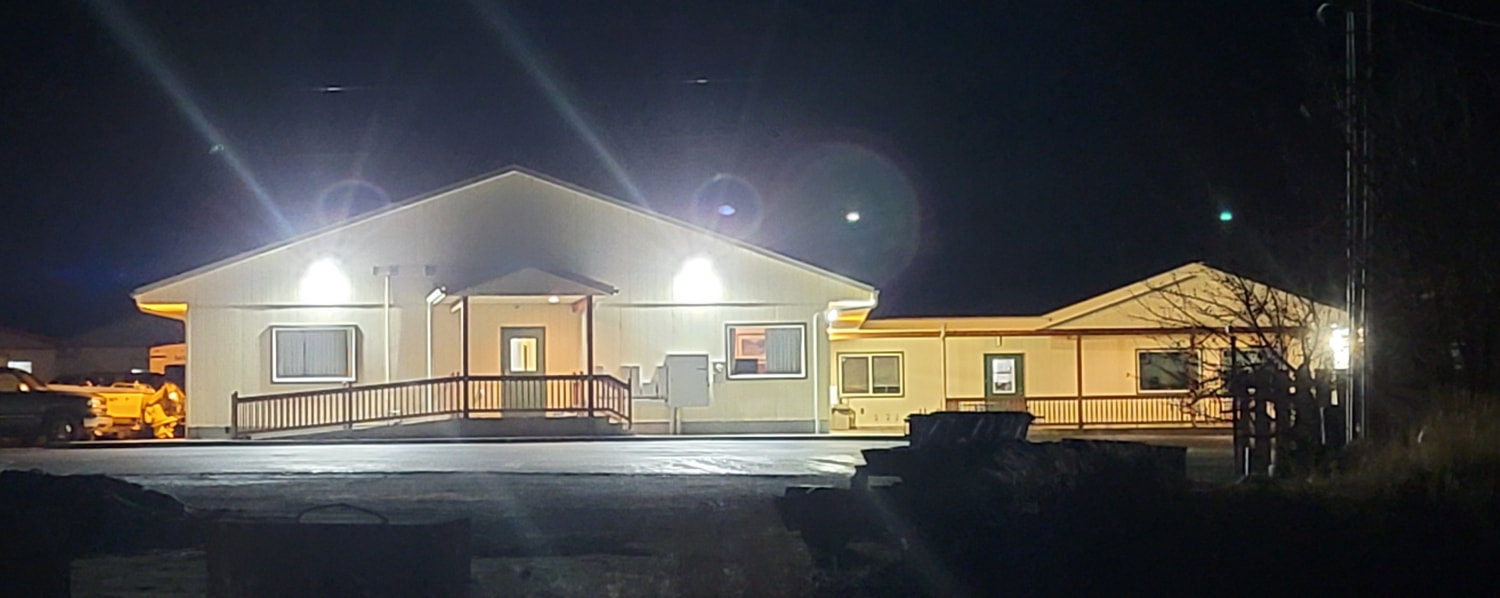
An “asset to be leveraged” and exploited for tourism – not protected for astronomy. The Goldendale Chamber of Commerce sees the Observatory as an "amusement park" and "key to getting people to stay at the hotels." Recently installed and grossly excessive unshielded bright-white blue-rich LED motel lighting shines directly at the Observatory 1 mile away - violating the decade’s old lighting codes to protect the Goldendale Observatory’s starry night sky. Photo: Bob Yoesle.
Washington State Parks
De Facto Subsidiary of the Chamber of Commerce
The root cause: Failure In Leadership & Management
The Goldendale Observatory 24½ inch telescope - and the Goldendale Observatory itself - were explicitly funded and built to provide astronomy science education for students, an observatory class telescope facility for use by students and amateur astronomers, and provide basic astronomy related education and dark night sky telescope experiences to the general public.
Therefore the Goldendale location and telescope donation by Clark College was conditioned by the College and telescope builders and the original Observatory founders on protecting the night sky from light pollution coming from nearby Goldendale and surrounding Klickitat County. This was due to astronomical use being its primary purpose - not tourism as declared by Washington State Parks.
Washington State citizens acquired the Goldendale Observatory in 1980 with its purchase by Washington State Parks. However, Washington State Parks was and remains ill-equipped for leading and managing such a specialized facility, and critically failed to formally maintain the involvement of relevant stakeholders in science education and amateur astronomy in the planning and oversight for the Washington State taxpayer-owned and operated Observatory.
Therefore the Goldendale location and telescope donation by Clark College was conditioned by the College and telescope builders and the original Observatory founders on protecting the night sky from light pollution coming from nearby Goldendale and surrounding Klickitat County. This was due to astronomical use being its primary purpose - not tourism as declared by Washington State Parks.
Washington State citizens acquired the Goldendale Observatory in 1980 with its purchase by Washington State Parks. However, Washington State Parks was and remains ill-equipped for leading and managing such a specialized facility, and critically failed to formally maintain the involvement of relevant stakeholders in science education and amateur astronomy in the planning and oversight for the Washington State taxpayer-owned and operated Observatory.
“No one of us is as smart as all of us.”
Ken Blanchard - author of The Simple Truths of Leadership
"I have met leaders in organizations around the world who act as if leadership is all about them. They want everybody to recognize that they are in charge. They believe that all the brains in the organization are in their office."
Ken Blanchard - author of The Simple Truths of Leadership
"I have met leaders in organizations around the world who act as if leadership is all about them. They want everybody to recognize that they are in charge. They believe that all the brains in the organization are in their office."
Due to institutional bureaucratic inertia and lack of familiarity, importance, or vision; for decades the Goldendale Observatory remained largely "out of sight and out of mind" by Washington State Parks. Without any formal statewide science education and amateur astronomer stakeholder involvement, the Goldendale Observatory then became vulnerable to the strengths, weaknesses, whims, and prejudices of its local management staff, and eventually beholden to the informal untoward influences of local political and business interests. With the arrival of Lem Pratt in 2012 and Troy Carpenter in 2013, the fears of Gary Fouts, the Goldendale Observatory Director who helped transition the Observatory to Washington State Parks ownership, were realized - the Goldendale Observatory no longer serves the constituencies or provides the programs it was intended to.
Rather than be a leader for legitimate public and state interests, or honoring its original intended purposes, Washington State Parks has adopted the local preference for being the servant for providing a tourism-focused facility without any significant night sky conservation or protection.
Following the initial International Dark Sky Park suspension, Washington State Parks completely failed at basic managerial practice to do a root-cause and significant-event review analysis, and therefore continued to fail at engagement to transform its own management staff - let alone local or statewide community engagement - to vision and value the Goldendale Observatory for its original astronomical observation and dark sky related education purposes.
Thereafter Washington State Parks abandoned providing education and advocacy for a conserving the dark night sky natural resource not only for its only observatory and International Dark Sky Park, but also for school students, amateur astronomers, and the public, which benefits the entire region and state.
Instead, Washington State Parks lack of leadership and community engagement has "absolutely" prioritized the Goldendale Observatory State Park being declared first and foremost a local tourist attraction devoid of promised night sky conservation that got the Observatory built in the first place. The primary goal and purpose of the Goldendale Observatory State Park is now publicly proclaimed to support filling up motel and restaurant parking spaces and the monetary benefit of local businesses, and the concurrent generation of Discover Pass sales for Washington State Parks - Clark College and the telescope builders be damned.
Following the initial International Dark Sky Park suspension, Washington State Parks completely failed at basic managerial practice to do a root-cause and significant-event review analysis, and therefore continued to fail at engagement to transform its own management staff - let alone local or statewide community engagement - to vision and value the Goldendale Observatory for its original astronomical observation and dark sky related education purposes.
Thereafter Washington State Parks abandoned providing education and advocacy for a conserving the dark night sky natural resource not only for its only observatory and International Dark Sky Park, but also for school students, amateur astronomers, and the public, which benefits the entire region and state.
Instead, Washington State Parks lack of leadership and community engagement has "absolutely" prioritized the Goldendale Observatory State Park being declared first and foremost a local tourist attraction devoid of promised night sky conservation that got the Observatory built in the first place. The primary goal and purpose of the Goldendale Observatory State Park is now publicly proclaimed to support filling up motel and restaurant parking spaces and the monetary benefit of local businesses, and the concurrent generation of Discover Pass sales for Washington State Parks - Clark College and the telescope builders be damned.
This was accomplished without an iota of public or stakeholder participation, and in violation of Washington State Parks declared but obviously meaningless "core values."
Truth be told, rather than Washington State Parks catering to nearsighted local parochial interests - with appropriate leadership, public and stakeholder involvement, and qualified management - the Goldendale Observatory State Park could have met many diverse needs and purposes as was originally intended, including sincere local "astro-tourism" purposes.
Instead, Washington State Parks is the blind being led by the blind.
Truth be told, rather than Washington State Parks catering to nearsighted local parochial interests - with appropriate leadership, public and stakeholder involvement, and qualified management - the Goldendale Observatory State Park could have met many diverse needs and purposes as was originally intended, including sincere local "astro-tourism" purposes.
Instead, Washington State Parks is the blind being led by the blind.
Not All State Park Systems Have Such Poor Vision:
Obviously, despite the importance of locating the Clark College 24½ inch telescope in a dark night sky location, it doesn't take having an astronomical observatory to care about night sky conservation and protection.
Obviously, despite the importance of locating the Clark College 24½ inch telescope in a dark night sky location, it doesn't take having an astronomical observatory to care about night sky conservation and protection.
Washington state is often regarded as a leader in environmental conservation and sustainability. However, the Goldendale Observatory shows Washington State Parks to be a deviant outlier.
While on the one hand Washington State Parks markets the Goldendale Observatory as being "famous for its dark skies," on the other hand a dark night sky for an observatory has been referred to as just a "concept" and "not a part of its mission."
The "famous for its dark skies" status was due to the former International Dark Sky Park designation, yet this accolade is now stated "not a good fit with Washington State Parks operating policy," falsely claimed as "too onerous" for its staff and financial resources, and therefore to be gone "out of the way to avoid."
Night sky conservation education and advocacy has been referred to as "part of an environmentalist agenda," "hippy-dippy activism", "pandering to amateur astronomers," and a "low priority" "waste of money."
While on the one hand Washington State Parks markets the Goldendale Observatory as being "famous for its dark skies," on the other hand a dark night sky for an observatory has been referred to as just a "concept" and "not a part of its mission."
The "famous for its dark skies" status was due to the former International Dark Sky Park designation, yet this accolade is now stated "not a good fit with Washington State Parks operating policy," falsely claimed as "too onerous" for its staff and financial resources, and therefore to be gone "out of the way to avoid."
Night sky conservation education and advocacy has been referred to as "part of an environmentalist agenda," "hippy-dippy activism", "pandering to amateur astronomers," and a "low priority" "waste of money."
In contrast, many communities and state and national parks, including Virginia's as shown above, have embraced sincere advocacy for night sky natural resource conservation as part of the natural environment through an International Dark Sky Place designation.
Due to the initiative of the Goldendale Observatory State Park's now retired Interpretive Specialist Steven Stout, this once included Goldendale Observatory State Park. This was a no-brainer - and completely within keeping the intent of the Goldendale Observatory founders for maintaining a dark night sky for the Observatory's telescope, and the promises made by Goldendale and Klickitat County to adopt light pollution ordinances and provide "public education" for "observatory protection."
Stout hoped the prestigious International Dark Sky Park status would lead to the local business and political community's support for night sky conservation and perhaps even lighting code enforcement.
Stout was tragically mistaken.
The entrenched powers that run Goldendale and Klickitat County behind the scenes couldn't care less about protecting the Goldendale Observatory for astronomical observation - indeed they are strongly opposed to any regulatory effort protecting it. All they care about is exploiting the Observatory for the tourism money it can generate for local business interests.
A Godsend to the Chamber of Commerce
Five years after attaining an International Dark Sky Park designation, a change in Washington State Parks leadership and local Observatory management led to a "partnership" with the Greater Goldendale Area Chamber of Commerce, who's anti-regulation Director Dana Peck was explicitly opposed to enforcement of the lighting codes intended to protect the Goldendale Observatory's night sky. This anti-regulatory tourism-focused "partnership" led to an unprecedented absence of support for night sky conservation by Washington State Parks.
Not only did Washington State Parks new management fail to put up required signage about the Observatory being an International Dark Sky Park, and install non-compliant lighting at the Observatory, former Washington State Parks Area Manager Lem Pratt and current Goldendale Observatory State Park Administrator Troy Carpenter went so far as to disparage education and support for night sky conservation as being "unpopular," part of an "environmentalist agenda," "hippie dippy activism," a "waste of money," and "pandering to amateur astronomers." After engineering the Goldendale Observatory State Park's decertification as an International Dark Sky Park, the Goldendale Observatory State Park Administrator now insists that Washington State Parks "should not have been" affiliated with the International Dark-Sky Association.
Not only did Washington State Parks new management fail to put up required signage about the Observatory being an International Dark Sky Park, and install non-compliant lighting at the Observatory, former Washington State Parks Area Manager Lem Pratt and current Goldendale Observatory State Park Administrator Troy Carpenter went so far as to disparage education and support for night sky conservation as being "unpopular," part of an "environmentalist agenda," "hippie dippy activism," a "waste of money," and "pandering to amateur astronomers." After engineering the Goldendale Observatory State Park's decertification as an International Dark Sky Park, the Goldendale Observatory State Park Administrator now insists that Washington State Parks "should not have been" affiliated with the International Dark-Sky Association.
The irrationality of these statements from those operating an astronomical observatory cannot be over emphasized. They are profoundly ironic considering the Observatory's telescope was specifically located in a rural area to get away from night-sky-damaging light pollution, and the Observatory wouldn't exist without the 24½ inch telescope painstakingly built over many years by dedicated amateur astronomers. With the Goldendale Observatory historically being a mere afterthought for Washington State Parks, these statements and sentiments are a direct consequence of Washington State Parks managerial failures to engage with the astronomy and science education community, nearby amateur astronomers, and other relevant stakeholders.
Moreover, the night sky natural resource, especially important for an astronomical observatory which was located where it is because of its telescope's need for a dark night sky, seems to have been dropped from the universe of natural resources Washington State Parks seems to recognize, value, or cares to provide education about:
Moreover, the night sky natural resource, especially important for an astronomical observatory which was located where it is because of its telescope's need for a dark night sky, seems to have been dropped from the universe of natural resources Washington State Parks seems to recognize, value, or cares to provide education about:
"Provide stewardship protection for an outstanding array of natural, cultural, and historic resources... Provide opportunities for the public to learn how parks contribute to everyone, even those that don’t visit them. Specifically, educate people about the benefits of natural resources like clean air, clean water, native habitat, carbon sequestration, water, filtration, storage and flood protection." Emphasis added.
Washington State Parks and Recreation Commission
2021-2031 Strategic Plan - Achieving a healthy, sustainable park system.
Washington State Parks and Recreation Commission
2021-2031 Strategic Plan - Achieving a healthy, sustainable park system.
Instead of providing education that promotes the general environmental, ecological, public health, and societal importance of night sky conservation, or the especially important protection of the Goldendale Observatory "Heritage Site" night sky natural resource for astronomical purposes, Washington State Parks now prefers to "pander" to the conflicting goals of the local business community's opposition to night sky conservation advocacy and lighting code enforcement. Goldendale Observatory Administrator Carpenter echoes the statements of Jonathan Lewis, the former Chamber of Commerce Vice President who stated that the Greater Goldendale Area Chamber of Commerce sees the Observatory as an "amusement park," its primary objective being "to getting people to stay at the hotels." Note that the Greater Goldendale Area Chamber of Commerce is directly subsidized by the City of Goldendale via hotel occupancy taxes.
Therefore, Washington State Parks has adopted this "amusement park" tourism-focused concept for the Goldendale Observatory State Park and preference for local economic exploitation over protection of the night sky natural resource. This is counter to what most people would consider important, especially those who visit the Goldendale Observatory State Park from more heavily light-polluted urban and suburban areas of Washington State and who desire a dark night sky experience.
|
|
Washington - being a predominantly Democratic state and one of the most environmentally friendly states - one might assume conservation and protection for the night sky would be a priority at Washington State Parks, especially for its historic "Heritage site" observatory. Instead, Washington State Parks has abandoned advocacy for night sky conservation and protection of its former - and only - International Dark Sky Park, becoming the first place to have its International Dark Sky Place revoked - something that hasn't happened anywhere else in the world.
On the other hand, adjacent Idaho, a predominantly Republican state, has multiple small communities which have embraced and promote night sky conservation and protection through adoption and enforcement of outdoor lighting regulations. These communities have recently achieved the prestigious accomplishment of having the first designated International Dark Sky Reserve in the United States. |
|
The Real Story of International Dark Sky Park Revocation
The initial and subsequently approved International Dark-Sky Association (IDA) application for designation as an International Dark Sky Park includes a November 2008 statement from then Washington State Parks Director Rex Derr that as part of the Goldendale Observatory's educational efforts, "people are encouraged to be aware of how to preserve the dark night sky environment." Derr added that the Goldendale Observatory's dark night sky was considered part of Washington State Parks "premier destinations of uncommon quality, including state and regionally significant natural, cultural, historical and recreational resources that are outstanding for the experience, health, enjoyment and learning of all people." Because of this support, in 2010 the Goldendale Observatory State Park became the sixth International Dark Sky Park designated in the world.
Several years later, the recently installed Goldendale Observatory State Park Interpretive Specialist Troy Carpenter failed to submit a required annual report to the IDA that was due in October 2016. In November at a meeting of the Rose City Astronomers in Portland, Oregon, Carpenter failed to even mention that the Goldendale Observatory State Park was the only International Dark Sky Park in the Pacific Northwest. In fact, Carpenter publicly stated that light pollution at the Observatory was "a low priority," and claimed dark sky education was a "politically charged issue" and "makes us very unpopular" – without a shred of evidence to support this assertion.
David Ingram of the Dark Skies Northwest Chapter of the IDA was particularly not impressed by Carpenter, noting that previous Goldendale Observatory Interpretive Specialist Steve Stout championed achieving one of the first International Dark Sky Park designations in the world, and was "a strong and unapologetic advocate for protecting the skies over GOSP." In contrast, Ingram noted Carpenter "does not seem to have the heart or will to acknowledge the historical dark sky stewardship of Goldendale Observatory State Park... In fact, he seems clearly willing to step away from that heritage."
The lack of an Annual Report, along with Carpenter's comments to the Rose City Astronomers, resulted in the suspension of the Dark Sky Park status of the Goldendale Observatory State Park. Carpenter's late November 2016 annual report to the IDA listed the Goldendale Chamber of Commerce Vice-President Jonathan Lewis as a Goldendale Observatory State Park contact for the IDA, failed to include any required night sky quality measurements, and claimed the Observatory provided tens of thousands of people the requisite dark-sky education programs.
This was a lie - for the third year in a row. Carpenter himself had written to a potential visitor to the International Dark Sky Park who specifically inquired about having a presentation on light pollution: "we normally don't do presentations specifically on light pollution." In reality, the required dark-sky programs were non-existent, and not a single person received the benefit night sky conservation enlightenment under Carpenter's tenure. While not wanting anything to do with night sky conservation, Washington State Parks apparently coveted the International Dark Sky Park designation and being "famous for our dark skies" for promoting Discover Pass sales - and therefore needed to lie to the IDA about the provision of conservation education programs. However, Carpenter's terse, incomplete, and falsified report was deemed inadequate by the IDA, and the Goldendale Observatory remained suspended as an International Dark Sky Park in December 2016.
This forced the Washington State Parks Administration to submit a more detailed revised annual report in April 2017. This included night sky quality measurements made by Carpenter that were grossly inaccurate, and falsely indicated it no longer met any International Dark Sky Park night sky quality criteria. Given Carpenter's well-established history of making false statements in his annual reports to the IDA, and obvious lack of interest in an International Dark Sky Park designation which resulted in the suspension to begin with, it's flabbergasting that the Washington State Parks administration would gullibly trust Carpenter and submit these obviously defective night sky quality measurements - again demonstrating a complete lack of knowledgeable and qualified Observatory consultation or oversight. And while it acknowledged Carpenter had previously failed to provide dark sky education programs or conservation advocacy, it listed no subsequent dark sky education programs or advocacy required to meet clearly described IDA standards.
Commendably with this attempt to lift the suspension of the International Dark Sky Park designation, Washington State Parks Climate and Sustainability Coordinator and Interpretive Program Manager Ryan Karlson stated “We certainly value the [International Dark Sky Park] designation. Preserving the dark sky at the Goldendale Observatory is part of our mission. We do see it as unique and meaningful." Emphasis added. Karlson added "we will promote the value of preserving our dark skies and support educational outreach to reduce the impacts of light pollution and other threats to this vulnerable natural resource.” Emphasis added. Furthermore, Washington State Parks Director Don Hoch told the IDA that Carpenter's "low priority" comments did not reflect Washington State Parks position, and that Washington State Parks supported and would be "providing educational experiences that help raise awareness of the impacts of light pollution on this valuable resource - the dark sky experience." Emphasis added.
Observatory Administrator Carpenter's popularity as a public entertainer, which has led to increased visitation and Discover Pass sales, also has resulted in The Tail Wags the Dog: Washington State Parks bureaucracy is apparently so poorly managed that after the above statements were made by Washington State Parks leadership, Carpenter "didn't get the memo." Solidly in the pocket of the local business interests and politicians, and seemingly defiant of Washington State Park's top management officials - he continued refusing to provide any night sky conservation education or advocacy during the several months following the International Dark Sky Park suspension.
At the same time, and in direct conflict with Karlson's and Washington State Parks Director Hoch's statements to the IDA regarding provision of "educational outreach" and "experiences," Steve Brand, Washington State Parks Partnership and Planning manager referred to a dark night sky at the Goldendale Observatory as a "concept," and required the Friends of Goldendale Observatory to remove night sky conservation education and advocacy from their official Operating Plan, stating it was "not part of operating the Park."
These statements are inconsistent with and inappropriate for an International Dark Sky Park or an astronomical observatory - let alone both. It's the equivalent of a hospital's surgical services manager stating that a sterile operating room environment is only a "concept" for a hospital, and not a part of actually providing surgical services. The result of Brand's directive was that there would be no officially sanctioned night sky education or conservation advocacy from anyone associated with Washington State Parks.
Removing night sky conservation education and advocacy from the Friends Operating Plan also nullified Carpenter's previous public praise for - and total reliance on - the Friends of Goldendale Observatory to do what Washington State Parks was obligated to do as an IDA certified International Dark Sky Park. As opposed to himself, Carpenter publicly stated "Our Friends group, however, does care very much about light pollution and they do work hard." Prior to this, however, Carpenter condemned in writing the Friends for their light pollution and night sky education activities as "wasting money" and "hippy dippy activism."
The ongoing failure of Carpenter to provide any dark sky education activity or support for night sky conservation for several months following the suspension, along with Brand's statements and directions explicitly contradicting Hoch's and Karlson's assurances to the IDA that night sky conservation education would be provided and encouraged by Washington State Parks – ultimately and deservedly resulted in the removal of the Goldendale Observatory State Park's prestigious International Dark Sky Park designation on September 29, 2017 – the first and only International Dark Sky Park certification ever revoked:
Several years later, the recently installed Goldendale Observatory State Park Interpretive Specialist Troy Carpenter failed to submit a required annual report to the IDA that was due in October 2016. In November at a meeting of the Rose City Astronomers in Portland, Oregon, Carpenter failed to even mention that the Goldendale Observatory State Park was the only International Dark Sky Park in the Pacific Northwest. In fact, Carpenter publicly stated that light pollution at the Observatory was "a low priority," and claimed dark sky education was a "politically charged issue" and "makes us very unpopular" – without a shred of evidence to support this assertion.
David Ingram of the Dark Skies Northwest Chapter of the IDA was particularly not impressed by Carpenter, noting that previous Goldendale Observatory Interpretive Specialist Steve Stout championed achieving one of the first International Dark Sky Park designations in the world, and was "a strong and unapologetic advocate for protecting the skies over GOSP." In contrast, Ingram noted Carpenter "does not seem to have the heart or will to acknowledge the historical dark sky stewardship of Goldendale Observatory State Park... In fact, he seems clearly willing to step away from that heritage."
The lack of an Annual Report, along with Carpenter's comments to the Rose City Astronomers, resulted in the suspension of the Dark Sky Park status of the Goldendale Observatory State Park. Carpenter's late November 2016 annual report to the IDA listed the Goldendale Chamber of Commerce Vice-President Jonathan Lewis as a Goldendale Observatory State Park contact for the IDA, failed to include any required night sky quality measurements, and claimed the Observatory provided tens of thousands of people the requisite dark-sky education programs.
This was a lie - for the third year in a row. Carpenter himself had written to a potential visitor to the International Dark Sky Park who specifically inquired about having a presentation on light pollution: "we normally don't do presentations specifically on light pollution." In reality, the required dark-sky programs were non-existent, and not a single person received the benefit night sky conservation enlightenment under Carpenter's tenure. While not wanting anything to do with night sky conservation, Washington State Parks apparently coveted the International Dark Sky Park designation and being "famous for our dark skies" for promoting Discover Pass sales - and therefore needed to lie to the IDA about the provision of conservation education programs. However, Carpenter's terse, incomplete, and falsified report was deemed inadequate by the IDA, and the Goldendale Observatory remained suspended as an International Dark Sky Park in December 2016.
This forced the Washington State Parks Administration to submit a more detailed revised annual report in April 2017. This included night sky quality measurements made by Carpenter that were grossly inaccurate, and falsely indicated it no longer met any International Dark Sky Park night sky quality criteria. Given Carpenter's well-established history of making false statements in his annual reports to the IDA, and obvious lack of interest in an International Dark Sky Park designation which resulted in the suspension to begin with, it's flabbergasting that the Washington State Parks administration would gullibly trust Carpenter and submit these obviously defective night sky quality measurements - again demonstrating a complete lack of knowledgeable and qualified Observatory consultation or oversight. And while it acknowledged Carpenter had previously failed to provide dark sky education programs or conservation advocacy, it listed no subsequent dark sky education programs or advocacy required to meet clearly described IDA standards.
Commendably with this attempt to lift the suspension of the International Dark Sky Park designation, Washington State Parks Climate and Sustainability Coordinator and Interpretive Program Manager Ryan Karlson stated “We certainly value the [International Dark Sky Park] designation. Preserving the dark sky at the Goldendale Observatory is part of our mission. We do see it as unique and meaningful." Emphasis added. Karlson added "we will promote the value of preserving our dark skies and support educational outreach to reduce the impacts of light pollution and other threats to this vulnerable natural resource.” Emphasis added. Furthermore, Washington State Parks Director Don Hoch told the IDA that Carpenter's "low priority" comments did not reflect Washington State Parks position, and that Washington State Parks supported and would be "providing educational experiences that help raise awareness of the impacts of light pollution on this valuable resource - the dark sky experience." Emphasis added.
Observatory Administrator Carpenter's popularity as a public entertainer, which has led to increased visitation and Discover Pass sales, also has resulted in The Tail Wags the Dog: Washington State Parks bureaucracy is apparently so poorly managed that after the above statements were made by Washington State Parks leadership, Carpenter "didn't get the memo." Solidly in the pocket of the local business interests and politicians, and seemingly defiant of Washington State Park's top management officials - he continued refusing to provide any night sky conservation education or advocacy during the several months following the International Dark Sky Park suspension.
At the same time, and in direct conflict with Karlson's and Washington State Parks Director Hoch's statements to the IDA regarding provision of "educational outreach" and "experiences," Steve Brand, Washington State Parks Partnership and Planning manager referred to a dark night sky at the Goldendale Observatory as a "concept," and required the Friends of Goldendale Observatory to remove night sky conservation education and advocacy from their official Operating Plan, stating it was "not part of operating the Park."
These statements are inconsistent with and inappropriate for an International Dark Sky Park or an astronomical observatory - let alone both. It's the equivalent of a hospital's surgical services manager stating that a sterile operating room environment is only a "concept" for a hospital, and not a part of actually providing surgical services. The result of Brand's directive was that there would be no officially sanctioned night sky education or conservation advocacy from anyone associated with Washington State Parks.
Removing night sky conservation education and advocacy from the Friends Operating Plan also nullified Carpenter's previous public praise for - and total reliance on - the Friends of Goldendale Observatory to do what Washington State Parks was obligated to do as an IDA certified International Dark Sky Park. As opposed to himself, Carpenter publicly stated "Our Friends group, however, does care very much about light pollution and they do work hard." Prior to this, however, Carpenter condemned in writing the Friends for their light pollution and night sky education activities as "wasting money" and "hippy dippy activism."
The ongoing failure of Carpenter to provide any dark sky education activity or support for night sky conservation for several months following the suspension, along with Brand's statements and directions explicitly contradicting Hoch's and Karlson's assurances to the IDA that night sky conservation education would be provided and encouraged by Washington State Parks – ultimately and deservedly resulted in the removal of the Goldendale Observatory State Park's prestigious International Dark Sky Park designation on September 29, 2017 – the first and only International Dark Sky Park certification ever revoked:
“There’s a consensus view that the local management and staff have not shown sufficient commitment to the maintenance of the [International Dark Sky Park] designation through words or actions. To the extent that WSPRC does or does not exert supervision of park managers and their staff, it seems unable to change the culture at the Park in this regard. While I think the Committee recognizes the interest of WSPRC in maintaining the Dark Sky Park designation for GOSP, it seems unconvinced that the desire is reflected locally at the Park or in the community of Goldendale.”
International Dark Sky Association Program Manager John Barentine
International Dark Sky Association Program Manager John Barentine
There are now over 200 certified Dark Sky Places around the globe, 27 of which are State Parks in the United States.
Goldendale Observatory State Park is no longer one of them.
Goldendale Observatory State Park is no longer one of them.
The Washington State Parks entrenched bureaucracy is unfamiliar with all things astronomical, and apparently has a management culture incapable of engaging broad stakeholder involvement or enlisting and consulting authentically knowledgeable and qualified outside expertise for such a unique (for them) facility. Its managerial personnel therefore have no unified vison or values, or consistent goals and objectives for matters which they are inexperienced in dealing with. This resulted in difficulty determining whether conservation of the night sky for the Goldendale Observatory State Park and "Heritage Site" is:
1. Part of an "array of natural resources," and a "vulnerable" and "valuable natural resource" for which education and conservation advocacy takes place as part of Washington State Parks "mission” to “provide stewardship and protection" for Washington's citizens "cherished natural heritage" for "future generations."
OR
2. Some sort of highfalutin, "low priority" "concept" for which education and advocacy is "not a part of its mission or operations," but instead is considered part of an "environmentalist agenda" which only interests "hippy dippy activists," and constitutes a "waste of money" and "unpopular amateur astronomer pandering."
1. Part of an "array of natural resources," and a "vulnerable" and "valuable natural resource" for which education and conservation advocacy takes place as part of Washington State Parks "mission” to “provide stewardship and protection" for Washington's citizens "cherished natural heritage" for "future generations."
OR
2. Some sort of highfalutin, "low priority" "concept" for which education and advocacy is "not a part of its mission or operations," but instead is considered part of an "environmentalist agenda" which only interests "hippy dippy activists," and constitutes a "waste of money" and "unpopular amateur astronomer pandering."
Lack of Vision & Washington State Parks Incompetency:
Failing Observatory Location Placement 101
Location
State Parks Heritage Areas usually are located where they are found or the feature exists. However, in some instances relocation or re-creation of artifacts, resources or facilities is possible. In these situations they may be located in appropriate settings and concentrated near major population centers and along primary travel routes.
WASHINGTON STATE PARKS LAND CLASSIFICATION SYSTEM
Washington State Parks Heritage Areas (Emphasis added)
State Parks Heritage Areas usually are located where they are found or the feature exists. However, in some instances relocation or re-creation of artifacts, resources or facilities is possible. In these situations they may be located in appropriate settings and concentrated near major population centers and along primary travel routes.
WASHINGTON STATE PARKS LAND CLASSIFICATION SYSTEM
Washington State Parks Heritage Areas (Emphasis added)
Washington State Parks designated the Goldendale Observatory State Park as a Heritage Site in 2014, and therefore could have justifiably and responsibly "leveraged" its position as the owner of the Goldendale Observatory State Park (and representing the interest of all Washingtonians), to conditioning additional Washington taxpayer investments in the Goldendale Observatory State Park to be predicated on Goldendale and Klickitat County honoring their promises to protect the Observatory's night sky.
However - given Goldendale and Klickitat County's well established and obvious decades long failures to protect the Goldendale Observatory State Park - the optimal solution would have been relocating the Observatory to a much better location such as the nearby and much darker Brooks Memorial State Park. This was well within Washington State parks authority and stated ability for an official State Park Heritage Site.
After all - if you're going through all the trouble to spend six million Washington State taxpayer dollars to demolish and rebuild an entire observatory facility, why not do it where it would be much better off and appropriate for its original purpose of observing the night sky? And just like the Maryhill Museum above the nearby Columbia River, it would have remained close enough to Goldendale to be used as a "marketing tool" in order to "fill up hotel and restaurant parking spaces" - the preferred purpose of Washington State Parks partner - the Goldendale Chamber of Commerce.
Answer: YOU DON'T CARE about why the Observatory was built and its purpose to observe the universe under a dark night sky. It's now purely a Washington State taxpayer owned and operated "amusement park" tourist trap and public entertainment "science center." Science about light pollution and the nocturnal environmental, ecosystems, dark sky astronomical, and human physiology science is excluded, as it would not be to the benefit of Goldendale and Klickitat County business interests, and Washington State Parks Discover Pass sales.
Washington State Parks itself declared "tourism is our primary focus" and "absolute priority."
The "Appropriate Setting" for an Observatory?
Not a tough call. Goldendale Observatory State Park (Bortle 4-5) v. Brooks Memorial State Park (Bortle 2) light pollution levels. Light Pollution Map
The Bortle Scale of Light Pollution
|
|
Another no-brainer - and a tremendous and deliberately avoided opportunity. Given the concerns Clark College had about "too much light emitting" from Goldendale; had the Washington State Parks and Recreation Commission been the original recipient of the Clark College 24½inch telescope, the College would have insisted its telescope be sited at Brooks Memorial State Park versus anywhere near Goldendale. Brook's is also easily accessible along US Hwy 97 which is a "primary travel route," and also well-known by astronomy interests and Washington State Parks for astronomy use. It obviously is also a much more "appropriate setting" for an astronomical observatory. Goldendale and Klickitat County also have a long and well-established history of disregard for both their promises to Clark College and the ordinances adopted for night sky protection of the Goldendale Observatory State Park and its famous telescope. The failure of Washington State Parks and its Observatory Administrator to even consider this alternative location with the Observatory's 2018 demolition and subsequent reconstruction is another obvious indicator of the total disregard for the reason the Goldendale Observatory exists, and the subservience to local business and political interests at the expense of the statewide public interest. |
|
|
Washington taxpayer's six-million-dollar complete rebuilding of the Goldendale Observatory. Only the telescope dome, floor, walls, and the telescope itself remain of the original observatory. And except for the dome itself, the "Heritage Site" "historically significant South Dome Room" is completely hidden from view. Therefore very little exteriorly visible "historical preservation" of the "Heritage Site" was achieved and the entire modern facility could have been relocated to a much better and darker site only a 15 minute (12 miles, 19 km) drive away from the City of Goldendale.
Compared to moving other historically significant monuments to preserve them from degradation and destruction, relocating and/or re-creating the Goldendale Observatory would have been straightforward child's play, and eliminated demolition costs. Directly adjacent to expensive luxury homes, the 5 acres of scenic view land and the existing facility which were originally bought at a fire-sale price could easily have been sold for a substantial amount of money to provide additional funds for relocating the facility at Brooks Memorial State Park. Another Tragically Missed Opportunity
Far Beyond 'Socratic' Teaching Methods If being a "science education center" was really of such importance, the additional funds (as if $5.9 million wasn't already more than enough - see below) could have easily allowed incorporating a planetarium as with other modern astronomy and science education centers like this one in Fountain Hills, Arizona. Note that this facility somehow manages to incorporate education, research, dark sky preservation, and tourism without exclusion, and also enjoys the support of an enlightened local chamber of commerce and a city with vision and foresight - which are completely lacking in Klickitat County - and at Washington State Parks.
Planetariums offer a distinct opportunity to engage a broad audience in STEM [Science, Technology, Engineering, Mathematics] in ways that inspire and go beyond what most traditional educational platforms afford. Planetarium programs have the capacity to improve learning outcomes even after a brief visit for audiences... The immersive capacity of the full dome environment may improve learning, including explanations addressing how immersion supports memory, spatial learning, and data comprehension.
Pennsylvania State University The advancement of digital planetarium systems now affords the opportunity to utilize the dome for more than just stargazing, including content related to earth science, physics, chemistry, biology, aviation, and more. STEM Education and the Rural Planetarium A planetarium would have been ideal for the Pacific Northwest inclement winter weather conditions when telescope use is more limited, and is widely considered much better suited for education - and why planetariums are almost universally found in modern astronomical and science education facilities. But a planetarium was not to Goldendale Observatory State Park Administrator Carpenter's personal liking (or apparent desire to be a "Socratic" focus of attention), and dismissed without any review, consultation, or ostensible consideration by Washington State Parks. “Digital full-dome planetariums are effective at improving learning gains, especially when compared to the same visual content shown on non-immersive flat-screens in a regular classroom.” K.C. Yu PhD. Denver Museum of Nature & Science Historic Preservation?
The natural environment heritage of the Observatory's night sky which historically was why the telescope was located outside of Vancouver, Washington, was of no significant consideration and isn't believed to need or deserve any protective effort by Washington State Parks. However, if relocated at Brooks Memorial State Park, Washington State Parks could have easily retained or re-created the diamond shaped south dome room interior brick walls of the original south dome building, which was deemed "historically significant" and needing to be preserved and protected.
After all, that's what people traveling hundreds of miles to an astronomical observatory "famous for its dark skies" really come to see and care about: Failing Observatory Design 101
What Color is Your Observatory? Note the Shou Sugi Ban siding chosen for the new main telescope building exterior - where the wood surface is charred dark black. This is one of the dumbest ideas you could possibly have chosen for an observatory due to its potential daytime heat absorption and retention, which deteriorates the steadiness of the air around the observatory after sunset as the stored heat is released to the cooler night air and creates turbulence in front of the telescope.
Designed by Patano Studio Architecture in Seattle apparently without professional observatory design consultation, no observatory in the world has or would choose such a dark color or materials for the building exteriors for its telescopes with expensively upgraded high-resolution optics... except maybe Darth Vader for the Death Star Observatory, which seems perversely fitting for Washington State Parks given its lack of concern for nighttime starlight survival. Also insanely expensive and terribly designed: WIRED magazine
Enormously Expensive - AND Idiotic
Less than half of the new facility's $5.9 million budget went to the new observatory building construction. The remainder apparently went to enlarging the parking lot, and architectural, engineering, and consultant fees.
Judging by the Goldendale Observatory State Park property map showing its 5 acres, the road paving and the enlarged parking area amount to somewhere around 1.5 acres of paved surface in total: At the high-end of 2024 asphalt parking lot costs of $4.50 per square foot, the 65,340 SF (1.5 acres) of parking lot and roadway should have had a total cost of about $295,030, plus a little more for parking lights, curbs, and parking bumpers. The use of Shou Sugi Ban wood was allegedly done to reduce the new building's construction cost, which eventually came to 2.4 million dollars for its 4000 total square feet. Yet this ~ $600 per square foot construction cost in 2018 was extraordinarily expensive - almost double the national average hospital construction costs - with all their internal infrastructure such as oxygen and vacuum lines, hospital grade HVAC, elevators, enhanced electrical code requirements and back-up generators - and cost more than hospitals built today in the most expensive city in the US: Inordinate and wasteful spending is apparently the norm for Washington State Parks - at least for the Goldendale Observatory State Park - and just not because of the more unfamiliar astronomy related construction.
Under the oversight of Pratt and Carpenter - the latter of which called International Dark Sky Park education requirements with barely any cost a "waste of money," Washington taxpayers spent $50,000 on about 1000 square feet of a new basic concrete deck and walkway, and some grass seeding adjoining the Heritage Site Observatory in 2015 (highlighted yellow & green in middle picture below). This was despite the fact that Washington State Parks would more than likely have to spend (and eventually did spend - after a funding delay) additional taxpayer dollars to remove it all to make way for the already planned capital facilities upgrades. This included a new building and landscaping construction that they knew would take place after the "use it or lose it" spending of this $50,000. $50,000 could have gone a long way toward helping to fund a more advanced science education facility with a modern digital planetarium. Instead it ended up in a landfill. Any possible concern with the thermal retention effects of the south dome telescope room's exterior brick walls is nullified if not worsened with the building having been insulated on the outside of the original walls, and covered with a dark heat-absorbing black exterior wall. A radical deviation from best practices - the exterior insulation enclosed area with black Shou Sugi Ban helps absorb and transmit heat inward and then conducts back outward, which warms the adjacent air which rises upward in front of the telescope.
The original brick enclosure's thermal effects on the telescope could have been most effectively dealt with by best-practices use of modern and relatively inexpensive high reflectivity and emissivity paints - the technique used for real observatories around the world - which also would have preserved viewability of the outside of the allegedly "historically significant" "Heritage Site" observatory structure.
Modern best practices observatory construction: thin uninsulated (or interiorly insulated) walls with high reflectivity-emissivity exterior coatings to block heat infiltration and provide thermal stability inside and outside the observatory.
Kitt Peak National Observatory, Stanford University, Warner and Swasey Observatory. While expensive and astronomically incompetent, the Shou Sugi Ban "Death Star" black observatory structure is an "architects dream" – and architectural notoriety apparently all Washington State Parks cared about. Therefore no knowledgeable astronomical observatory expertise involvement or consultation with "astronomy nerds" (Carpenter's phrase) was employed or utilized. Washington State taxpayers and legitimate astronomy interests were compromised to benefit tourism for Goldendale and Klickitat County, and generate Discover Pass sales for Washington State Parks.
This demonstrates - as with the lack of concern with conservation of the Goldendale Observatory night sky quality - the Washington State Park and Recreation Commission's tourism-centric Discover Pass sales "amusement park" priority, versus any authentic astronomy concerns or related considerations for the facility's telescopes and its original purposes.
Something you've never seen before - an observatory clad in black paint: Or charred black wood: Black metal & Shou Sugi Ban observatories. Even for these guys - pretty dumb and dumber.
Not by Accident -
What professional observatories look like for thermal control purposes: |
|
What well designed amateur observatories look like:
|
Goldendale Observatory State Park Administrator and formally designated Washington State Parks "subject matter expert" Carpenter states he played a central role in "coordinating facility upgrades," and apparently raised no concerns about the bizarre black-clad observatory design decision. Remarkably, prior to coming to the Goldendale Observatory, Carpenter worked in the wind energy industry, where wind turbines are painted white for similar thermal control reasons as professional and other well designed astronomical observatories. Moreover, Carpenter had been explicitly informed of appropriate observatory exterior thermal management coatings before the new observatory construction began. This advice was summarily dismissed and apparently subsequently rejected for the new construction.
Washington State Parks is evidently invested in this SME hubris despite the obvious lack of applicable knowledge or experience. As with the 24½ inch telescope's highly flawed reconfiguration implementations, the foregoing observatory remodeling and construction defects are text-book examples of the Dunning-Kruger Effect, and Washington State Parks usual and customary systemic failures to involve authentically knowledgeable and qualified expertise for endeavors with which it has no familiarity. |
International Dark Sky Park Misrepresentations
Carpenter also reassured his primary tourism constituency of Goldendale Mayor Canon and Goldendale Chamber of Commerce Executive Director Peck that despite the revocation of the International Dark Sky Park status appropriately becoming public knowledge (which Washington State Parks - though a public agency - would preferred to have kept a secret); Washington State Parks would reward decades of night sky conservation neglect by giving the Goldendale Observatory this architecturally appealing and costly 6-million-dollar state-taxpayer-funded facility replacement no matter what.
In April 2018 Carpenter wrote: “Our status with a third-party organization [the IDA] with which we are no longer affiliated (and should not have been) has no bearing on our policies or capital project objectives.” Emphasis added:
In April 2018 Carpenter wrote: “Our status with a third-party organization [the IDA] with which we are no longer affiliated (and should not have been) has no bearing on our policies or capital project objectives.” Emphasis added:
Spin Control: Carpenter is the king of creating "false narratives." No one ever implied a that an observatory "requires an IDA badge" in order to operate "the way a tavern requires a liquor license," or anything remotely similar to this. This statement is simply another bit of the characteristic sophistry and distortion Carpenter will invent out of thin air to manipulate and persuade others to believe his way of thinking. Similarly, for Carpenter there's also no need to ever be embarrassed or express remorse about anything - including playing the pivotal role for the only International Dark Sky Place in the world to be revoked. But he does need to convince his Washington State Parks superiors and the local tourism beneficiaries of this "no need to be embarrassed" view as well.
And if it's not embarrassing, what's with all the elaborate deceptions given to the public noted below?
In contradistinction to Carpenter's April 2018 anti IDA declaration, in April 2019 Karlson stated Washington State Parks would correct its previous deficiencies and seek reinstatement of an International Dark Sky Park designation, including provision of night sky conservation education, with a pledge to "work with the local community to ensure that is accomplished."
However, by April 2021 Washington State Parks apparently chose not to buck Carpenter and Washington State Park's local business 'partners' opposition to meaningful night sky conservation, and dropped pursuit of an International Dark Sky Park reinstatement or provision of night sky conservation education.
However, by April 2021 Washington State Parks apparently chose not to buck Carpenter and Washington State Park's local business 'partners' opposition to meaningful night sky conservation, and dropped pursuit of an International Dark Sky Park reinstatement or provision of night sky conservation education.
When publicly asked by a citizen about Washington State Parks commitment to seek community support for dark skies as part of regaining an International Dark Sky Park status, Carpenter stated: “We’re not going to be reapplying for that status; I would go out of my way to avoid doing so actually." Emphasis added.
Refuted by years of night sky conservation advocacy provided by his predecessor Stout, and officially sanctioned by Washington State Parks as an International Dark Sky Park "famous for its dark skies," Carpenter now writes “the requirements attached to the [International Dark Sky Park] status were not a good fit with WA State Parks operating policy,” stating they would “require parks staff to behave in an activist or legislative capacity.” Emphasis added.
Lie Upon Lie to Bamboozle the Public About
International Dark Sky Park Abandonment
One does not usually encounter unethical Washington State employees who abuse the trust that the public generally places in them, only to discover they have been deliberately misled and their trust violated. For some Washington State Parks personnel this is apparently the norm.
Lie No. 1: Observatory Administrator Carpenter initially claimed the issue of light pollution at the Goldendale Observatory is a "low priority" because any mention of "it makes us very unpopular every time we bring it up," despite there being no public opinion surveys of any kind to support this statement.
Lie No. 2: Carpenter stated the International Dark Sky Park status was "not a good fit for WA State Parks operating policy," allegedly because it requires "state park staff to behave in an activist" and "legislative capacity." These connotations that providing education regarding conservation of the night sky is being "activist," and Washington State Parks simply giving public support to long existing outdoor lighting codes adopted before he was born is somehow acting in a "legislative capacity," are simply more of Carpenter's deliberate deception and absurd but well-practiced sophistry, or he's dumber than a box of rocks when it comes to civics and government.
Lie No. 3: Carpenter publicly states the Goldendale Observatory International Dark Sky Parks' "silver-tier status was potentially too generous," after he submitted grossly inaccurate and likely falsified poor night-sky readings to Washington State Parks management. These erroneous measurements were then submitted to the IDA and wrongly indicated a substantial decrease in overhead night sky darkness which would preclude an International Dark Sky Park designation. What Washington State Parks is really opposed to is the International Dark Sky Park requirements that "The importance of dark skies/natural darkness and the benefits of quality lighting must be part of Park interpretation/outreach programs." See Minimum Requirements For All Parks pages 5 - 8.
To this day Goldendale Observatory State Park likely meets the overhead night sky darkness requirement for an International Dark Sky Park.
But even if failing to meet night sky darkness requirements, it should be noted that the IDA - now Dark Sky International - adopted a new category of Dark Sky Place so that even those regions with higher levels of artificial light at night (ALAN) can be designated as Urban Night Sky Places worthy of recognition due to "their efforts to educate the public on the benefits of proper outdoor lighting that ensures public safety while minimizing potential harm to the natural nighttime environment."
Again, it is this education and increasing public awareness concerning light pollution that Washington State Parks is opposed to providing, falsely construed as being "unpopular," "pandering to amateur astronomers," etc.
Lie 4: Carpenter thereafter contradicted himself by stating the night sky of the Goldendale Observatory is "beautifully dark and getting darker" - by which the "getting darker" statement is also a lie for the purpose of marketing, not a reality.
Lie No. 5: Apparently Washington State Parks told a visitor in early 2021 when the Observatory reopened after the COVID shutdown - "the reporting and outreach requirements for maintaining it [the International Dark Sky Park designation] proved too onerous for State Parks’ limited staff and monetary resources." Emphasis added.
So how exactly was it possible that Carpenter's predecessor - Interpretive Specialist Steve Stout - was able to successfully go through a laborious two-year long International Dark Sky Park application process? And rather than skimp, lie on, and finally skip even turning one in; how was Stout able to provide more detailed IDA annual reports, and actually do a few one-hour public outreach dark sky education programs per year at the Goldendale Observatory State Park without exhausting his yearly budget or sending Washington State Parks into insolvency?
And having provided absolutely no outreach before or after replacing Stout, how could one claim how "onerous" and/or costly it was to provide a minimum of four such dedicated night sky conservation oriented programs annually? How do other state parks in the United States - 27 and counting - manage to be able to provide such programs and benefit significantly from them, and the Goldendale Observatory State Park cannot?
Having reviewed all of Carpenter's falsified IDA Annual Reports, I can confidently state he spent far less than 30 minutes on each annual report. Please see his final astoundingly terse, grossly inadequate, and deliberately deceiving IDSP Annual Report (with extensive annotations by FOGO) at the bottom of this page.
Lie No. 6: Education about minimizing potential harm to the natural environment is now stated to be "not within its mission" - when it comes to the nocturnal environment and light pollution.
Contradicting the earlier public statements made by Washington State Parks Interpretive Program Manager Ryan Karlson that protecting the night sky environment of the Goldendale Observatory is "part of its mission" and that it "will support educational outreach to reduce the impacts of light pollution;" former Washington State Parks employee and Goldendale Observatory interpretive staff James Day stated to a visitor from Seattle in August 2022 that an International Dark Sky Park status "is not within the mission or scope of Washington Parks." Emphasis added. Day is now the President of the Washington State Parks official Friends of Gorge Area Parks.
Lie No. 7: After the above statements by Karlson during the International Dark Sky Park suspension period and hoped-for reinstatement, the Washington State Parks Partner and Planning manager Steve Brand also stated a dark night sky for the observatory was only a "concept" and that education regarding conserving the night sky was "not a part of operating the park." The truth is that a dark night sky for observatories and state parks is not just a "concept," and education regarding night sky conservation actually is part of operating other observatories and state parks around the world.
Lie No. 8: Carpenter’s ongoing anti-dark sky education and night sky conservation advocacy deceptions apparently include the blatant misrepresentation that being an International Dark Sky Park made Washington State Parks into some sort of lighting code enforcement agency. In April 2024 Naomi James stated “I've spoken with him [Carpenter] in it (sic), it came down to being a policeman of lights.” This assertion is just as absurd as his disinformation and lie that being a IDSP forced them into “acting in a legislative capacity.”
Lie No. 1: Observatory Administrator Carpenter initially claimed the issue of light pollution at the Goldendale Observatory is a "low priority" because any mention of "it makes us very unpopular every time we bring it up," despite there being no public opinion surveys of any kind to support this statement.
Lie No. 2: Carpenter stated the International Dark Sky Park status was "not a good fit for WA State Parks operating policy," allegedly because it requires "state park staff to behave in an activist" and "legislative capacity." These connotations that providing education regarding conservation of the night sky is being "activist," and Washington State Parks simply giving public support to long existing outdoor lighting codes adopted before he was born is somehow acting in a "legislative capacity," are simply more of Carpenter's deliberate deception and absurd but well-practiced sophistry, or he's dumber than a box of rocks when it comes to civics and government.
Lie No. 3: Carpenter publicly states the Goldendale Observatory International Dark Sky Parks' "silver-tier status was potentially too generous," after he submitted grossly inaccurate and likely falsified poor night-sky readings to Washington State Parks management. These erroneous measurements were then submitted to the IDA and wrongly indicated a substantial decrease in overhead night sky darkness which would preclude an International Dark Sky Park designation. What Washington State Parks is really opposed to is the International Dark Sky Park requirements that "The importance of dark skies/natural darkness and the benefits of quality lighting must be part of Park interpretation/outreach programs." See Minimum Requirements For All Parks pages 5 - 8.
To this day Goldendale Observatory State Park likely meets the overhead night sky darkness requirement for an International Dark Sky Park.
But even if failing to meet night sky darkness requirements, it should be noted that the IDA - now Dark Sky International - adopted a new category of Dark Sky Place so that even those regions with higher levels of artificial light at night (ALAN) can be designated as Urban Night Sky Places worthy of recognition due to "their efforts to educate the public on the benefits of proper outdoor lighting that ensures public safety while minimizing potential harm to the natural nighttime environment."
Again, it is this education and increasing public awareness concerning light pollution that Washington State Parks is opposed to providing, falsely construed as being "unpopular," "pandering to amateur astronomers," etc.
Lie 4: Carpenter thereafter contradicted himself by stating the night sky of the Goldendale Observatory is "beautifully dark and getting darker" - by which the "getting darker" statement is also a lie for the purpose of marketing, not a reality.
Lie No. 5: Apparently Washington State Parks told a visitor in early 2021 when the Observatory reopened after the COVID shutdown - "the reporting and outreach requirements for maintaining it [the International Dark Sky Park designation] proved too onerous for State Parks’ limited staff and monetary resources." Emphasis added.
So how exactly was it possible that Carpenter's predecessor - Interpretive Specialist Steve Stout - was able to successfully go through a laborious two-year long International Dark Sky Park application process? And rather than skimp, lie on, and finally skip even turning one in; how was Stout able to provide more detailed IDA annual reports, and actually do a few one-hour public outreach dark sky education programs per year at the Goldendale Observatory State Park without exhausting his yearly budget or sending Washington State Parks into insolvency?
And having provided absolutely no outreach before or after replacing Stout, how could one claim how "onerous" and/or costly it was to provide a minimum of four such dedicated night sky conservation oriented programs annually? How do other state parks in the United States - 27 and counting - manage to be able to provide such programs and benefit significantly from them, and the Goldendale Observatory State Park cannot?
Having reviewed all of Carpenter's falsified IDA Annual Reports, I can confidently state he spent far less than 30 minutes on each annual report. Please see his final astoundingly terse, grossly inadequate, and deliberately deceiving IDSP Annual Report (with extensive annotations by FOGO) at the bottom of this page.
Lie No. 6: Education about minimizing potential harm to the natural environment is now stated to be "not within its mission" - when it comes to the nocturnal environment and light pollution.
Contradicting the earlier public statements made by Washington State Parks Interpretive Program Manager Ryan Karlson that protecting the night sky environment of the Goldendale Observatory is "part of its mission" and that it "will support educational outreach to reduce the impacts of light pollution;" former Washington State Parks employee and Goldendale Observatory interpretive staff James Day stated to a visitor from Seattle in August 2022 that an International Dark Sky Park status "is not within the mission or scope of Washington Parks." Emphasis added. Day is now the President of the Washington State Parks official Friends of Gorge Area Parks.
Lie No. 7: After the above statements by Karlson during the International Dark Sky Park suspension period and hoped-for reinstatement, the Washington State Parks Partner and Planning manager Steve Brand also stated a dark night sky for the observatory was only a "concept" and that education regarding conserving the night sky was "not a part of operating the park." The truth is that a dark night sky for observatories and state parks is not just a "concept," and education regarding night sky conservation actually is part of operating other observatories and state parks around the world.
Lie No. 8: Carpenter’s ongoing anti-dark sky education and night sky conservation advocacy deceptions apparently include the blatant misrepresentation that being an International Dark Sky Park made Washington State Parks into some sort of lighting code enforcement agency. In April 2024 Naomi James stated “I've spoken with him [Carpenter] in it (sic), it came down to being a policeman of lights.” This assertion is just as absurd as his disinformation and lie that being a IDSP forced them into “acting in a legislative capacity.”
The bottom line is Washington State Parks is afraid of you or anyone else knowing the truth:
"Even though state parks are defined as being protective of the natural environment, and we are a large statewide governmental entity, unfortunately we are a feckless and cowardly bureaucracy, unable to stand up for being able to educate you about light pollution or encourage protection of your valuable State Park Observatory and its beautiful and irreplaceable night sky natural environment. This is because it would make the little town of Goldendale and Klickitat County, and our generous advertising and independent website supporting "partner" - the Greater Goldendale Area Chamber of Commerce - upset with us, and we would therefore be 'very unpopular' with them."
"Even though state parks are defined as being protective of the natural environment, and we are a large statewide governmental entity, unfortunately we are a feckless and cowardly bureaucracy, unable to stand up for being able to educate you about light pollution or encourage protection of your valuable State Park Observatory and its beautiful and irreplaceable night sky natural environment. This is because it would make the little town of Goldendale and Klickitat County, and our generous advertising and independent website supporting "partner" - the Greater Goldendale Area Chamber of Commerce - upset with us, and we would therefore be 'very unpopular' with them."
Dorothy frightens the Cowardly Lion in The Wizard of Oz
Washington State Parks has a formally designated Climate and Sustainability Coordinator who promoted conservation and education about the Goldendale Observatory's "vulnerable night sky natural resource" as part of its "mission," a Director who promised to provide "educational experiences that help raise awareness of the impacts of light pollution on this valuable resource - the dark sky experience," and a Strategic Plan which promises to "educate the public about the benefits of an array of natural resources."
Yet Washington State Parks apparently implemented new "operating policies" that removed night sky conservation of its famous Observatory as part of its mission, and precludes providing education about, or advocating for, the sustainability of the Goldendale Observatory State Park Heritage Site's "vulnerable and valuable night sky natural resource."
Therefore, the night sky of Washington apparently is no longer considered a suitably vulnerable or valuable natural resource worthy of education, conservation, or protection by Washington State Parks. Due to their long term disregard for nurturing this "gem" as some describe it; the WSPRC Strategic Plan which promises education, stewardship, and protection of an "array of natural resources" isn't worth the paper it's written on.
Yet Washington State Parks apparently implemented new "operating policies" that removed night sky conservation of its famous Observatory as part of its mission, and precludes providing education about, or advocating for, the sustainability of the Goldendale Observatory State Park Heritage Site's "vulnerable and valuable night sky natural resource."
Therefore, the night sky of Washington apparently is no longer considered a suitably vulnerable or valuable natural resource worthy of education, conservation, or protection by Washington State Parks. Due to their long term disregard for nurturing this "gem" as some describe it; the WSPRC Strategic Plan which promises education, stewardship, and protection of an "array of natural resources" isn't worth the paper it's written on.
More significantly, Washington State Parks Goldendale Observatory Administrator Carpenter's disparaging "activist" label and ludicrous "behaving in a legislative capacity" apply to any Washington State Park, not just those in Klickitat County and Goldendale. Those negative portrayals of otherwise responsible caretakers - and other bogus rationales regarding the IDA's night sky conservation education and advocacy requirements - are evidence of Washington State Parks unjustified and stubborn inaction.
Apparently what's not only acceptable but beneficial for other public observatories, other state park systems including the adjacent state of Oregon, as well as the U.S. National Park Service is somehow not so good for Washington.
Apparently what's not only acceptable but beneficial for other public observatories, other state park systems including the adjacent state of Oregon, as well as the U.S. National Park Service is somehow not so good for Washington.
“State parks are parks or other protected areas… are typically established by a state to preserve a location on account of its natural beauty, historic interest, or recreational potential.”
Natural beauty environment preservation: none – “not within or part of our mission.”
Historic preservation: almost none.
Recreational use: not applicable.
Exploiting a historic observatory for generation of tourism revenue for local businesses: “our primary focus - absolutely our priority.”
Natural beauty environment preservation: none – “not within or part of our mission.”
Historic preservation: almost none.
Recreational use: not applicable.
Exploiting a historic observatory for generation of tourism revenue for local businesses: “our primary focus - absolutely our priority.”
|
|
Thanks to the local political and business community's antipathy for outdoor lighting codes or their enforcement, and its subservient "partner" Washington State Parks aversion for night sky conservation education or advocacy, here's a sign you haven't seen in Washington State:
|
|
And apparently never will.
|
|
On the other hand, the adjacent States of Oregon and Idaho have chosen to embrace conservation of their irreplaceable night sky natural heritage:
|
|
Note the numerous small towns and communities in rural Idaho which support night sky conservation and have implemented lighting regulations to protect the night sky in order to first achieve - and then maintain - their International Dark Sky Reserve designation.
Since 1980 Washington State citizens and taxpayers have provided many millions of dollars for the operation of and upgrades to the Goldendale Observatory State Park and its historic telescope. Yet the Park's most important asset – the quality of its night sky – is continuing to be degraded for future generations at the behest of the local political and business establishment, while Washington State Parks now stands by and watches without saying a word.
Therefore, the failure of Washington State Parks to promote night sky conservation and protect taxpayer investments in the Goldendale Observatory State Park are a betrayal not only of the founding principles of the Observatory, but of the fiduciary responsibility to care for public assets the State of Washington has stewardship and responsibility for.
Since 1980 Washington State citizens and taxpayers have provided many millions of dollars for the operation of and upgrades to the Goldendale Observatory State Park and its historic telescope. Yet the Park's most important asset – the quality of its night sky – is continuing to be degraded for future generations at the behest of the local political and business establishment, while Washington State Parks now stands by and watches without saying a word.
Therefore, the failure of Washington State Parks to promote night sky conservation and protect taxpayer investments in the Goldendale Observatory State Park are a betrayal not only of the founding principles of the Observatory, but of the fiduciary responsibility to care for public assets the State of Washington has stewardship and responsibility for.
Make-Believe Public Policy
You can't fix what you don't know about. Most people in Goldendale and Klickitat County remain completely unaware of the issue of light pollution, the negative effects on the Goldendale Observatory State Park, or the decades-long existence of the lighting codes intended to protect the Observatory. Local political and business interests want to keep it that way.
Washington State Parks is their willing accomplice.
|
Over 45 years' worth of unrestrained light pollution - visible as the illumination of the south side of the Goldendale Observatory on a clear moonless night - coming directly from the City of Goldendale and surrounding Klickitat County.
|
Inaction Speaks Louder than Words
For decades the City of Goldendale and Klickitat County have broken the promises - and subsequently adopted lighting codes - under which they were entrusted with the Goldendale Observatory's historic telescope, and without which the Observatory wouldn't exist - at least not in Goldendale or Klickitat County:
Purpose:
Protect a dark nighttime sky and visual environment near the Goldendale Observatory.
Prevent excessive illumination, glare, and reflection in areas adjacent to astronomical research facilities, such as observatories, where such light intrusion would hinder use of sensitive optical devices.
Goldendale and Klickitat County lighting codes.
Protect a dark nighttime sky and visual environment near the Goldendale Observatory.
Prevent excessive illumination, glare, and reflection in areas adjacent to astronomical research facilities, such as observatories, where such light intrusion would hinder use of sensitive optical devices.
Goldendale and Klickitat County lighting codes.
These unpublicized and unenforced lighting codes and unfulfilled promises to protect the Observatory telescope's night sky were and remain a classic "bait and switch."
While the Goldendale Chamber of Commerce Director Dana Peck openly proclaimed their priority is to exploit the Goldendale Observatory as a "marketing tool" for local "economic and commercial gain" – reinforced by Washington State Park's Observatory Administrator Carpenter parroting that this is "absolutely our priority" (while publicly declaring light pollution is a "low priority") – the Chamber, Goldendale, and Klickitat County's failure educate the public about or promote the lighting codes demonstrates local political and business interests don't care about the Observatory's fundamental purposes, conserving the beauty of its star-filled night sky, or protecting the Washington State taxpayers' substantial investment in their community.
Below is a small sample of City, County, and Federal government buildings, commercial and residential city and countryside outdoor lighting – much of it installed since the 2017 Goldendale lighting code revision – which is grossly excessive or violates the lighting code requirements for full cut-off shielding of outdoor lighting.
Note the dramatic proliferation of unshielded blue-white "daylight" LED lighting and signage which is exceptionally damaging to the night sky, as well as having significant human and environmental health effects. At the insistence of city-appointed lighting task force business representatives and home-grown anti-regulation business owner-politicians, draft regulations meeting "dark sky community" lighting code "best practices" which addressed excessive "total area lumens," high "color temperature" lighting elements, and improper illumination of outdoor signs, were deliberately removed from the 2017 Goldendale lighting code revision.
All photos were taken from April 2020 to April 2021 between 1 am and 4 am local time:
A predominance of trashy prohibited unshielded lighting, and a 50 year failure to “protect a dark nighttime sky and visual environment near the Goldendale Observatory” and “prevent excessive illumination, glare, and reflection...” Photos: Bob Yoesle
|
|
Classy – not trashy. One of the few dark sky compliant outdoor lighting examples in Goldendale. A Carnegie Library with fully shielded, night-sky conserving "warm" color temperature fixtures, and non-excessive and well-placed levels of illumination. Easy and inexpensive to do - if you actually care about what is best for the Observatory and the community. Photo: Bob Yoesle
|
|
Below: "Fisheye lens" all-sky view seen from the Goldendale Observatory. The "light dome" from Goldendale extends along one-quarter or more of the southern horizon and half-way to directly overhead. The first image is the original exposure. The second image is an enhanced version to show the true extent of light pollution relative to the brightness of the Milky Way. The third shows relative light pollution brightness contour levels. Photos: Bob Yoesle
Washington State Parks Enmeshment & Lies
"I recently stayed in Goldendale only because the international Dark-Sky Association announced that the Observatory was named a silver-tier IDA Dark Sky Park. Prior to the IDA's press release, I had never heard of Goldendale... However, light pollution from the town was a bit bothersome."
Karen L Miller, MD
Salt Lake City, Utah
July 17, 2013 letter to the Greater Goldnedale Area Chamber of Commerce
Karen L Miller, MD
Salt Lake City, Utah
July 17, 2013 letter to the Greater Goldnedale Area Chamber of Commerce
Most anyone who has viewed the Observatory's night sky over the years notes the light pollution has grown brighter year after year, and is located in one of the most important parts of the sky – to the south, where the center of the summer Milky Way lies.
Less than a year latter in early 2014 - another voice stating the obvious during a radio interview:
"There is already too much light pollution from town to get a good view of deep space objects in the southern sky, like the center of our galaxy... The dark sky situation could be better... It’s not abysmal, but at the same time it’s getting worse... it’s not getting better… so it’s just a real issue."
Goldendale Observatory Administrator Troy Carpenter
Goldendale Observatory Administrator Troy Carpenter
Now beholden to the marketing priorities of his Washington State Parks "partner" - the Goldendale Chamber of Commerce which hosts and pays for his personal Goldendale Observatory website - Carpenter contradictorily states that:
"Goldendale Washington features beautifully dark skies and the city has taken steps to make them even darker with the installation of full-cutoff and dimmable LED street lamps."
This statement contradicts the facts known about most all LED streetlights, and is another total fabrication for marketing Discover Pass sales and local tourism purposes.
Unfortunately, the brighter and whiter LED streetlights of Goldendale are twice as damaging to the night sky as the fully shielded (full cut-off) high pressure sodium (HPS) streetlights they replaced. Additionally, decades of uncontrolled proliferation of unshielded outdoor lighting, compounded by an explosion of unshielded blue-white LED outdoor lighting, adds insult to injury:
|
A dramatic display of Light pollution at Goldendale Observatory State Park coming mostly from blue-rich LED street and outdoor lighting in Goldendale - located 1 mile (1.6 km) behind the camera - spreads outwards for many miles flooding a cloudy sky and the snow-covered landscape with artificial light on a moonless night, December 23, 2022. A rare form of light pollution - a multitude of "light pillars" coming from lighting code prohibited unshielded outdoor lights - is located nearby in light polluted areas of Klickitat County just north and east of the Observatory. Normally this light pollution is scattered by aerosols, dust particles, air molecules and water vapor much higher in the atmosphere creating a diffuse "sky glow." Bright light pillars form during cold calm weather when very small ice crystals drift horizontally close to the ground. Millions of these ice crystals act like tiny mirrors, redirecting a small amount of the light pollution coming from the unshielded light source back towards the ground where it can be observed, making it appear as if a beam of light is coming from the sky. Photo: Troy Carpenter.
|
|
Besides using the propaganda technique of the Big Lie claiming the night sky of the Goldendale Observatory having become “beautifully dark,” Carpenter is fond of making rationalizations for the light pollution from Goldendale and Klickitat County not being as bad as at other observatories like those in Los Angeles - which therefore somehow makes it acceptable not to promote night sky conservation or advocate for control and reduction of light pollution in Goldendale and surrounding Klickitat County.
However - unlike the deviant outliers at Washington State Parks and its Goldendale Observatory Administrator - Ed Krupp, the Director of the Griffith Observatory in the heart of light-polluted LA County, acknowledges and provides education about the negative effects of artificial light at night on the natural world and sincerely advocates for its reduction.
Despite their promises to the telescope makers and Clark College, and in spite of the 40-plus year presence of lighting codes, since there is no control of light pollution by the City of Goldendale and Klickitat County, all it will a take is a little more time:
Recent NASA satellite imagery (left) corrected for factors such as cloud cover, vegetation, and land cover type. The data has been validated with measurements taken on the ground. State-of-the-art modeling of light pollution (right) showing Goldendale (arrowed) has not become "even darker" after the installation of LED streetlights. Indeed, the night sky has significantly deteriorated with the switch from HPS to 3000 K LED streetlights, and the spread of even more blue-rich unshielded LED outdoor lighting in Goldendale and throughout nearby Klickitat County:
Light pollution in the night sky at the Goldendale Observatory State Park has gone from being accurately described by Carpenter in 2014 as "already too much" with a portion of the night sky "washed out," and "not abysmal but getting worse," to Abracadabra! - miraculously transformed into being "beautifully dark" and getting "even darker."
With Carpenter now openly proclaiming Goldendale Observatory State Parks No.1 priority is serving the tourism and economic needs of the local business and political community, and a dark night sky having been relegated to being a "low priority concept," Washington State Parks downplays the existence and lies about the extent of increasing light pollution at the Observatory. Discussion of light pollution is claimed to be "a politically charged issue and makes us very unpopular" - referring to the political/business community who have deliberately ignored lighting codes and worsened the light pollution at the Goldendale Observatory, despite promises and enacted lighting codes meant to do the opposite.
Most importantly, being honest about increasing light pollution at the Goldendale Observatory is not conducive to promotion of Observatory visits and the sale of Washington State Parks Discover Passes, or the "prime directive" of non-interference with the promotion and generation of tourism dollars for Washington State Park's business community "partners."
Therefore, like a used-car salesman not wanting to reveal a cars defects, Washington State Park staff will not initiate a discourse on the existence of light pollution or the ever-increasing need to conserve the night sky of the Goldendale Observatory. Fear of bringing attention to these facts is revealed by discussion and education about light pollution and its effects being condemned by Carpenter as being "unpopular," "pandering to amateur astronomers," behaving as a "hippy dippy activists."
Demonstrating a lack of agency-level recognition - let alone formal policy support - for night sky conservation at the Goldendale Observatory State Park, Lem Pratt - the Washington State Parks Area manager who was transferred to Goldendale in December 2012 - implemented his personal values and judgements with regard to night sky conservation at the Observatory. Carpenter stated that Pratt considered the Goldendale Observatory's International Dark Sky Park status part of an "environmentalist agenda" he would like to see "go away."
Carpenter - formerly a highly paid industrial wind power trainer in Philadelphia - was first hired at the Observatory as seasonal entry-level Park Aide in May 2013, and Pratt promoted him to become the interim Goldendale Observatory Interpretive Specialist following the early retirement of Steve Stout in June of 2013. Stout had championed the International Dark Sky Park Status for the Observatory. Carpenter went through an abbreviated hiring and perfunctory interview process supervised by Pratt to get the permanent Observatory Interpretive Specialist position.
Carpenter was instrumental in the revocation of the International Dark Sky Park status of the Goldendale Observatory in 2017 - and he indeed made the designation "go away." Carpenter was then given the title of "Observatory Administrator" and received a large pay raise. Not surprisingly, regaining an International Dark Sky Park designation is something Carpenter will "go out of my way to avoid."
During the 2014 radio interview above Carpenter was asked about Washington State Parks connection to the "dark sky movement." Carpenter's nonsensical but telling distortion of facts was "there was some confusion about that. The reality is they're not."
Really? Goldendale Observatory State Park at that time was still a Certified International Dark Sky Park and would remain so for two years, with Carpenter submitting falsified annual reports to the International Dark-Sky Association in order to maintain the prestigious astro-tourism (a new concept for Carpenter) generating designation.
Carpenter is fond of gaslighting by claiming there's "some confusion" or "misunderstanding" needing clarification when factual statements presented by others disagree with his preferred false reality. Channeling his boss Pratt, Carpenter employed his habitual sophistry by stating that "We don’t want a situation where people think the state government is trying to tell local municipalities what to do. Same with the Observatory; we’re not trying to tell anyone what to do.”
Apparently Washington State Parks lacks any ability to politely ask or gently attempt to persuade local governments to act toward the common good (the purpose of government) and protect state taxpayer investments in its expensive facilities, as this would require leadership where none exists.
Pratt left Washington State Parks to ironically - but not surprisingly - become the Code Enforcement Officer for Klickitat County. You can't make this stuff up. Pratt no doubt came highly recommended by former Klickitat County Economic Development Director and then Goldendale Chamber of Commerce Director Peck.
The City of Goldendale and Klickitat County had promised and adopted lighting codes for protecting the night sky of the Goldendale Observatory's telescope and educating the pubic about light pollution before Washington State Parks ownership. Yet Washington State Parks is not going to inform anyone they exist, or provide education and advocate for protecting the natural night sky environment of the Observatory via the outdoor lighting regulations that the municipalities themselves have codified, and who would be responsible for their enforcement - NOT Washington State Parks.
Feel like dumping your garbage into or polluting a Washington State Park river or lake? Washington State Parks is not going to tell you (especially if you're a local business owner and/or Washington State political Representative) there’s a federal, state, county, or city law against it. Washington State Parks apparently won't be willing to ask the appropriate responsible jurisdiction to enforce their applicable water pollution laws to prevent such illegal activity – because Washington State Parks is "not going to tell anyone what to do."
But Washington State Park Rangers - real law enforcement officers - can arrest you if you break state laws or park rules, and will give you a $99 ticket if you park your car at a Washington State Park and don't have a Discover Pass - and therefore actually will and do tell people what to do.
With Carpenter now openly proclaiming Goldendale Observatory State Parks No.1 priority is serving the tourism and economic needs of the local business and political community, and a dark night sky having been relegated to being a "low priority concept," Washington State Parks downplays the existence and lies about the extent of increasing light pollution at the Observatory. Discussion of light pollution is claimed to be "a politically charged issue and makes us very unpopular" - referring to the political/business community who have deliberately ignored lighting codes and worsened the light pollution at the Goldendale Observatory, despite promises and enacted lighting codes meant to do the opposite.
Most importantly, being honest about increasing light pollution at the Goldendale Observatory is not conducive to promotion of Observatory visits and the sale of Washington State Parks Discover Passes, or the "prime directive" of non-interference with the promotion and generation of tourism dollars for Washington State Park's business community "partners."
Therefore, like a used-car salesman not wanting to reveal a cars defects, Washington State Park staff will not initiate a discourse on the existence of light pollution or the ever-increasing need to conserve the night sky of the Goldendale Observatory. Fear of bringing attention to these facts is revealed by discussion and education about light pollution and its effects being condemned by Carpenter as being "unpopular," "pandering to amateur astronomers," behaving as a "hippy dippy activists."
Demonstrating a lack of agency-level recognition - let alone formal policy support - for night sky conservation at the Goldendale Observatory State Park, Lem Pratt - the Washington State Parks Area manager who was transferred to Goldendale in December 2012 - implemented his personal values and judgements with regard to night sky conservation at the Observatory. Carpenter stated that Pratt considered the Goldendale Observatory's International Dark Sky Park status part of an "environmentalist agenda" he would like to see "go away."
Carpenter - formerly a highly paid industrial wind power trainer in Philadelphia - was first hired at the Observatory as seasonal entry-level Park Aide in May 2013, and Pratt promoted him to become the interim Goldendale Observatory Interpretive Specialist following the early retirement of Steve Stout in June of 2013. Stout had championed the International Dark Sky Park Status for the Observatory. Carpenter went through an abbreviated hiring and perfunctory interview process supervised by Pratt to get the permanent Observatory Interpretive Specialist position.
Carpenter was instrumental in the revocation of the International Dark Sky Park status of the Goldendale Observatory in 2017 - and he indeed made the designation "go away." Carpenter was then given the title of "Observatory Administrator" and received a large pay raise. Not surprisingly, regaining an International Dark Sky Park designation is something Carpenter will "go out of my way to avoid."
During the 2014 radio interview above Carpenter was asked about Washington State Parks connection to the "dark sky movement." Carpenter's nonsensical but telling distortion of facts was "there was some confusion about that. The reality is they're not."
Really? Goldendale Observatory State Park at that time was still a Certified International Dark Sky Park and would remain so for two years, with Carpenter submitting falsified annual reports to the International Dark-Sky Association in order to maintain the prestigious astro-tourism (a new concept for Carpenter) generating designation.
Carpenter is fond of gaslighting by claiming there's "some confusion" or "misunderstanding" needing clarification when factual statements presented by others disagree with his preferred false reality. Channeling his boss Pratt, Carpenter employed his habitual sophistry by stating that "We don’t want a situation where people think the state government is trying to tell local municipalities what to do. Same with the Observatory; we’re not trying to tell anyone what to do.”
Apparently Washington State Parks lacks any ability to politely ask or gently attempt to persuade local governments to act toward the common good (the purpose of government) and protect state taxpayer investments in its expensive facilities, as this would require leadership where none exists.
Pratt left Washington State Parks to ironically - but not surprisingly - become the Code Enforcement Officer for Klickitat County. You can't make this stuff up. Pratt no doubt came highly recommended by former Klickitat County Economic Development Director and then Goldendale Chamber of Commerce Director Peck.
The City of Goldendale and Klickitat County had promised and adopted lighting codes for protecting the night sky of the Goldendale Observatory's telescope and educating the pubic about light pollution before Washington State Parks ownership. Yet Washington State Parks is not going to inform anyone they exist, or provide education and advocate for protecting the natural night sky environment of the Observatory via the outdoor lighting regulations that the municipalities themselves have codified, and who would be responsible for their enforcement - NOT Washington State Parks.
Feel like dumping your garbage into or polluting a Washington State Park river or lake? Washington State Parks is not going to tell you (especially if you're a local business owner and/or Washington State political Representative) there’s a federal, state, county, or city law against it. Washington State Parks apparently won't be willing to ask the appropriate responsible jurisdiction to enforce their applicable water pollution laws to prevent such illegal activity – because Washington State Parks is "not going to tell anyone what to do."
But Washington State Park Rangers - real law enforcement officers - can arrest you if you break state laws or park rules, and will give you a $99 ticket if you park your car at a Washington State Park and don't have a Discover Pass - and therefore actually will and do tell people what to do.
Coming soon to Washington State Park's pro-local economic development itinerary:
|
For Washington State Parks clean water is no longer considered a "vulnerable" or "valuable" natural resource, which instead is just a "concept" for a State Park with a lake. And while water pollution looks crummy, you don't really need clean water to jet ski or motorboat. In spite of local regulations intended to prevent it, education about and advocacy for the mitigation of water pollution is considered "unpopular" and a "politically charged" "hot-button issue" - particularly with Washington State Park's "partners" - the local water polluters who have ignored and violated the water pollution regulations for decades and see the State's lakes as nothing more than "assets to leverage."
Despite being "famous" for their "clear clean waters," water pollution is obvious in select parts of the State Parks lakes, but only kills a few fish, frogs, birds, and other wildlife. It can therefore be minimized, ignored, and lied about in order to promote park visitation and the tourism businesses financial interests without too much public backlash. While they're at it, let's reward the polluters with a new state taxpayer-funded 6-million-dollar visitor center to increase visitation and help the marina fuel operators, RV parks, hotels, restaurants, and other polluters get more money so they can expand operations and pollute even more. To get more appreciation from the polluters, education concerning water pollution can be condemned as "wasting money," "pandering to naturalists," and part of a "hippy-dippy" "environmentalist agenda." Washington State Park's tourism-focused stooges for local business interests won't take issue with their "partners" water pollution, and the polluters and their anti-regulatory political allies won't get upset over State Parks personnel advocating for clean water in compliance with the law, which goes against the polluter's short-term petty financial interests. The Washington State Parks bureaucracy snowflakes will be safe from feared retaliatory budget cuts by remaining "neutral" about water pollution and avoid mentioning any clean water concerns or environmental advocacy whatsoever. Whatever you do - don't rock the boat...
|
Instead, Washington State Parks will state that despite obvious water pollution, its lakes are much better than wastewater ponds and polluted lakes found elsewhere, and claim they are "beautifully clean and getting cleaner."
What else could or would you expect from a State Parks system?
|
Goldendale's Bogus Application for a Corrupt Purpose
Goldendale's Bogus Application for a Corrupt Purpose
Goldendale has gone to great lengths to solicit grants in the hundreds of thousands of dollars to improve its small and infrequently used municipal airport serving a few private individuals and local millionaire business interests who apparently don't wish to have to fuel up their private planes in Dallesport 19 miles away. Goldendale also believes people are dying to be able to fly into their otherwise rather lackluster town to stay at a motel and eat at Papa John's Pizza, while visiting the towns only real claim to fame - an Observatory that they promised to protect from light pollution, but which has had its night sky ignored, neglected, and increasingly degraded year after year.
And speaking of dying, and demonstrating their authentic anti-regulation credentials and an uniformed disregard for the protection of public's health, safety, and welfare - and your health care insurance premium dollars - the City of Goldendale awarded tens of thousands of dollars in 2023 and 2024 to ABATE of Washington - an anti-motorcycle-helmet law organization - for a tourism-promoting demolition derby event at the Klickitat County Fair.
And speaking of dying, and demonstrating their authentic anti-regulation credentials and an uniformed disregard for the protection of public's health, safety, and welfare - and your health care insurance premium dollars - the City of Goldendale awarded tens of thousands of dollars in 2023 and 2024 to ABATE of Washington - an anti-motorcycle-helmet law organization - for a tourism-promoting demolition derby event at the Klickitat County Fair.
Your tax dollars at work - enthusiastically supported by the Goldendale Chamber of Commerce.
Organ donors welcome!
Organ donors welcome!
At the same time, Goldendale hasn't done a thing to raise awareness about light pollution or provide funds to retrofit the extensive unshielded outdoor lighting it has allowed to violate its lighting codes for decades. The same goes for Klickitat County. Nor has Goldendale used any of the $60,000 or more per year in electricity cost savings from a 2017 LED streetlight conversion (paid for by a state transportation improvement grant) for replacing its own unshielded lighting, lighting code education, or night sky conservation and support.
Despite the Goldendale Chamber of Commerce stating Observatory tourism pumps $5 million annually into the local economy, local businesses and politicians - aided and abetted by Washington State Parks - have demonstrated time after time their contempt for the codified promises to protect the Observatory's night sky:
"Dark Sky Place designations are based on implementing stringent lighting plans and public outreach programs that provide educational programing and outdoor night sky activities... An International Dark Sky Community is a town, city, municipality or other legally organized community that has shown exceptional dedication to the preservation of the night sky through the implementation and enforcement of a quality outdoor lighting ordinance, dark sky education and citizen support of dark skies. Dark Sky Communities excel in their efforts to promote responsible lighting and dark sky stewardship, and set good examples for surrounding communities." DarkSky International.
Goldendale and Klickitat County have shown an exceptional lack of dedication to the preservation of the night sky through the implementation and enforcement of quality outdoor lighting ordinances. As demonstrated in the photos above, they won't even implement or enforce their substandard ordinances that have been in place since 1979. Additionally, they and the Goldendale Chamber of Commerce have provided no significant or sustained dark sky education, promotion, or public support for the importance of night sky conservation for the Goldendale Observatory State Park.
Goldendale and Klickitat County have shown an exceptional lack of dedication to the preservation of the night sky through the implementation and enforcement of quality outdoor lighting ordinances. As demonstrated in the photos above, they won't even implement or enforce their substandard ordinances that have been in place since 1979. Additionally, they and the Goldendale Chamber of Commerce have provided no significant or sustained dark sky education, promotion, or public support for the importance of night sky conservation for the Goldendale Observatory State Park.
Unlike Goldendale and Klickitat County – Flagstaff Arizona, the first International Dark Sky Community, and surrounding Coconino County, strive for and have earnestly implemented quality outdoor lighting ordinances for the protection of the night sky of their historic Lowell Observatory.
In early 2018 the IDA offered Goldendale Mayor Mike Canon direct open-ended assistance at no cost to pursue an International Dark Sky Community status to replace the Goldendale Observatory State Park's forfeited International Dark Sky Park designation.
There could be no better assistance or expertise to achieve such a designation:
There could be no better assistance or expertise to achieve such a designation:
Mayor Canon never responded.
It is perversely twisted – yet totally predictable – that Mayor Canon and the City of Goldendale would reject the free of cost assistance and unquestionable expertise of the IDA, and instead wait until January 2019 and initiate a $10,000 1 year contract with then Goldendale Chamber of Commerce’s anti-regulation Director Dana Peck to submit a laughably incompetent Dark Sky Community Application to the IDA, and develop an alleged educational plan for encouraging "voluntary" compliance with the city's lighting code:
|
|
2019 City of Goldendale Contract with the Greater Goldendale Area Chamber of Commerce Statement of Work. Note there are only two vaguely described deliverables, with the rest being boilerplate. This S.O.W. is as defective and incompetent as you will find anywhere, and would get an "F" grade in a high school business class.
|
|
In 2003, the Friends of Goldendale Observatory had a Board of Directors composed mostly of those pesky amateur astronomers who actually cared about the light pollution affecting the Observatory and advocating for night sky conservation and enforcement of the 1979 lighting codes to protect the night sky of the Goldendale Observatory. Peck - then Director of Klickitat County Economic Development and well known for "protecting jobs in our region from regulatory threats" - led a small group of local yokels to successfully take over and then immediately shut down the official Washington State Parks approved Observatory Friends organization due to their night sky conservation and lighting code advocacy.
Instead of utilizing the no-cost unrivaled expertise of the IDA - Mayor Canon and the Goldendale City Council expended thousands of public tax dollars in order to contract with Peck and the Chamber of Commerce to allegedly achieve an International Dark Sky Community status which requires “preservation of the night sky through the implementation and enforcement of a quality outdoor lighting ordinance.”
This is equivalent to hiring Jeffry Epstein as a chaperone for your teenage daughter at the prom in order to preserve her virginity.
The deceitful and corrupt culture of "good old boy" shenanigans as well as conflicts of interest demonstrated by this arrangement with Peck and the Chamber of Commerce is apparently typical of what passes for public policy and its implementation in Goldendale and Klickitat County.
Fitting right in and using his customary hyperbole, Goldendale Observatory Administrator Carpenter wrote: “New area parks management are working closely with the IDA, local businesses, and community leaders to apply for an IDA status which acknowledges the darkness of the site but does not require parks staff to behave in an activist or legislative capacity.” Emphasis added.
Given her naïveté and lack of familiarity with the players and issues, it's not surprising that the "new" Washington State Parks Area Manager Jill Sprance (who replaced Pratt and has some biological science acumen, but similarly appears to have no astronomy related background, education, or expertise) would be duped by Carpenter into participating in this fraudulent Goldendale/Peck/Chamber of Commerce Dark Sky Community "effort."
The bottom line is that Washington State Parks and the City of Goldendale wanted a Dark Sky Community status for the tourism and Discover Pass money-generating ability. At the same time, they absolutely loathe the requirements to provide allegedly "unpopular" public education or adopt authentic night sky conservation measures to secure and maintain an International Dark Sky Place designation. So they attempted to deceive the IDA in their processes and applications to keep and/or secure the Dark Sky Place designations.
IDA Dark Sky Program personnel headquartered in Tucson, Arizona, denied they had any involvement or consultation with this effort - which is completely obvious to ANYONE familiar with the IDA Dark Sky Community application processes or requirements.
The Dark Sky Community designation effort was therefore doomed from the start:
- In order to meet a provisional status as an International Dark Sky Community, Goldendale would have had to submit a complete application that included a thorough inventory and incorporated a detailed plan to bring into compliance 90% of all of the accumulated non-dark-sky compliant outdoor lighting in the City of Goldendale within 5 years’ time. No such inventory was attempted, let alone submitted, and therefore the application obviously included no plan for bringing decades of non-compliant lighting into compliance with night sky conserving outdoor lighting standards.
- Peck's and the City of Goldendale's application made a totally false claim that "the City, working in partnership with the Goldendale Chamber of Commerce, has engaged in an extensive community stakeholder outreach effort focused on the importance of dark skies over the last several years." (Emphasis added.) This was a bald-faced lie - no such outreach effort ever existed. And why else would the City Goldendale have to contract with the Chamber as shown above to "develop" a "plan" for such education only 1 year earlier? Additionally, the Dark Sky Community application would have had to include documented, well-established and ongoing public support and educational outreach programs for night sky conservation - which were and remain non-existent.
- The application would have had to show the adoption of an "effective and enforced" lighting ordinance which included regulating the color temperature values of outdoor lighting, establishing night sky friendly total lumen values per area, and limiting the brightness of illuminated outdoor signs – all of which were Dark Sky Community lighting ordinance requirements deliberately removed from the draft Goldendale lighting code revision in 2017 after intervention from Goldendale native and anti-regulatory State Representative Gina Mosbrucker and local business operatives - without objection by Peck for the Chamber of Commerce, or Pratt for Washington State Parks. Peck and Pratt attended the Lighting Task Force meetings as non-voting participants. Pratt went out of his way to emphasize Washington State Parks wasn't advocating for improvement of the outdoor lighting code, and was perfectly happy with the current (unenforced) version of the outdoor lighting code without any changes.
- This improved lighting code would need to be in place at the time of the application to be considered. While Canon (Peck) acknowledging the current lighting code fell below the required standards - and despite having over a year to have done so - no effort to include the removed provisions or otherwise bring the lighting code up to IDA Dark Sky Community standards was made, let alone adopted by the City of Goldendale.
- No documentation was provided that showed the current sub-standard lighting code is enforced - because it isn't.
While it took over a year for the Chamber/City of Goldendale to submit their $10,000 faux Dark Sky Community provisional application to the IDA in March of 2020, it was so obviously and grossly flawed and incomplete that it was immediately rejected without any further consideration:
"Frankly, as proposed the Provisional IDSC for Goldendale, WA has absolutely no chance of being approved by the DSPC [Dark Sky Places Committee]... it appears the City fundamentally misunderstands the IDSC [International Dark Sky Community] certification process at this time." IDA Dark Sky Places Program Manager Adam Dalton, May 2020; emphasis added:
The Goldendale Chamber of Commerce, acting as a proxy for the City of Goldendale, and "working closely" with its dishonest "partner" Washington State Parks, did not misunderstand anything:
Did a Chamber of Commerce Director opposed to the enforcement of the preexisting inadequate lighting codes suddenly become converted to the need of lighting code improvement, dark sky education, and lighting code enforcement required for an International Dark Sky Community designation?
Or was the entire exercise a devious half-baked scheme to get a tourism-generating "provisional" Dark Sky Community designation which could be exploited for tourism purposes, but which they had no intention of following through on? Peck then could follow Carpenter's example and submit false Dark Sky Community recertification reports to the IDA claiming to provide dark sky public education programs and implementation of lighting codes which would in reality be non-existent.
One year later on April 29, 2021, when Carpenter asked about the status of achieving an International Dark Sky Community designation, Mayor Canon responded, "It's still continuing, I haven't gotten an update on where we are on it – we should be there."
The Goldendale Chamber of Commerce, acting as a proxy for the City of Goldendale, and "working closely" with its dishonest "partner" Washington State Parks, did not misunderstand anything:
Did a Chamber of Commerce Director opposed to the enforcement of the preexisting inadequate lighting codes suddenly become converted to the need of lighting code improvement, dark sky education, and lighting code enforcement required for an International Dark Sky Community designation?
Or was the entire exercise a devious half-baked scheme to get a tourism-generating "provisional" Dark Sky Community designation which could be exploited for tourism purposes, but which they had no intention of following through on? Peck then could follow Carpenter's example and submit false Dark Sky Community recertification reports to the IDA claiming to provide dark sky public education programs and implementation of lighting codes which would in reality be non-existent.
One year later on April 29, 2021, when Carpenter asked about the status of achieving an International Dark Sky Community designation, Mayor Canon responded, "It's still continuing, I haven't gotten an update on where we are on it – we should be there."
They weren't, and never were remotely close.
The Dark Sky Community application was immediately rejected due to its obvious and appalling inadequacies: All the detailed and extensive concrete measures which needed to be completed prior to a Dark Sky Community application submission were completely absent.
When the pre-application requirements to show genuine commitment to night sky conservation were apparently "discovered" via the application rejection, there was no follow-up effort by the Chamber of Commerce or the City of Goldendale to correct the deficiencies and follow through in meeting the requirements, and re-submitting the application.
To this day there remains no plan - let alone a program - to educate the public about Goldendale lighting codes or compliance therewith - voluntary or otherwise.
Because the City of Goldendale and the Greater Goldendale Area Chamber of Commerce have never had information about the lighting codes displayed anywhere, it would be difficult to voluntarily comply with them if you didn't know they exist. Their Washington State Parks "partner" is now completely silent on the issue of light pollution - other than to downplay and lie about its presence - let alone significance.
Either Mayor Canon was never informed by Peck of the application's rejection and made no inquiries for over a year to as the Dark Sky Community application status (despite contractual requirements for quarterly updates) - or was simply lying when he said "it's still continuing... we should be there." The Greater Goldendale Area Chamber of Commerce took the City's money and ran, while the Mayor and City Council looked the other way.
When asked about Mayor Canon's statement to the public that the Dark Sky Community process was "continuing," IDA Dark Sky Place Program Manager Barentine responded "there’s nothing 'continuing,' because I find no evidence that anything ever started."
They weren't, and never were remotely close.
The Dark Sky Community application was immediately rejected due to its obvious and appalling inadequacies: All the detailed and extensive concrete measures which needed to be completed prior to a Dark Sky Community application submission were completely absent.
When the pre-application requirements to show genuine commitment to night sky conservation were apparently "discovered" via the application rejection, there was no follow-up effort by the Chamber of Commerce or the City of Goldendale to correct the deficiencies and follow through in meeting the requirements, and re-submitting the application.
To this day there remains no plan - let alone a program - to educate the public about Goldendale lighting codes or compliance therewith - voluntary or otherwise.
Because the City of Goldendale and the Greater Goldendale Area Chamber of Commerce have never had information about the lighting codes displayed anywhere, it would be difficult to voluntarily comply with them if you didn't know they exist. Their Washington State Parks "partner" is now completely silent on the issue of light pollution - other than to downplay and lie about its presence - let alone significance.
Either Mayor Canon was never informed by Peck of the application's rejection and made no inquiries for over a year to as the Dark Sky Community application status (despite contractual requirements for quarterly updates) - or was simply lying when he said "it's still continuing... we should be there." The Greater Goldendale Area Chamber of Commerce took the City's money and ran, while the Mayor and City Council looked the other way.
When asked about Mayor Canon's statement to the public that the Dark Sky Community process was "continuing," IDA Dark Sky Place Program Manager Barentine responded "there’s nothing 'continuing,' because I find no evidence that anything ever started."
Greater Goldendale Area Chamber of Commerce Executive Director Diana Adams was explicitly informed that IDA involvement with Goldendale hadn't taken place in years; yet Adams thereafter made no further inquiries or took any action to resume the Dark Sky Park/Community application process, let alone develop any night sky conservation program for the City of Goldendale or the surrounding area of Klickitat County.
Goldendale contracting with Dana Peck and the Greater Goldendale Area Chamber of Commerce to develop a night-sky conservation education program and submit an application to the IDA for Goldendale to become an International Dark Sky Community made about as much sense as hiring a drill sergeant to be a therapist.
Liars and incompetent bureaucrats are the chosen "partners"
Washington State Parks choses to "work closely with."
Goldendale and the Chamber of Commerce apparently viewed a Dark Sky Community designation as something easy to accomplish by attempting to bamboozle the IDA with a bogus Provisional Dark Sky Community application - just as Carpenter had done for three years with his falsified International Dark Sky Park annual reports to the IDA. And as with Carpenter and Washington State Parks, they only wanted the notoriety from the International Dark Sky Community designation in order to help generate tourism dollars and Discover Pass sales.
Why else would you reject the direct assistance and expertise of the IDA for a complex, labor intensive, and time-consuming International Dark Sky Community application process, and instead pay $10,000 to go with a devious con-man like Peck and a totally unqualified Chamber of Commerce?
The cast of characters had not changed, and birds of a feather flock together. Washington State Parks, Goldendale, and the Greater Goldendale Area Chamber of Commerce have made it clear their only motivation for having a Dark Sky Place status was local tourism commerce and Discover Pass revenue generation - not sincere conservation of the night sky.
When their dishonest agendas are discovered and they have to legitimately address the requirements for providing night sky conservation education or implementing real measures to protect the night sky natural heritage of the Heritage Site Goldendale Observatory - it's no thanks - "not a good fit" - and as Carpenter declared, something they will "go out of their way to avoid."
Why else would you reject the direct assistance and expertise of the IDA for a complex, labor intensive, and time-consuming International Dark Sky Community application process, and instead pay $10,000 to go with a devious con-man like Peck and a totally unqualified Chamber of Commerce?
The cast of characters had not changed, and birds of a feather flock together. Washington State Parks, Goldendale, and the Greater Goldendale Area Chamber of Commerce have made it clear their only motivation for having a Dark Sky Place status was local tourism commerce and Discover Pass revenue generation - not sincere conservation of the night sky.
When their dishonest agendas are discovered and they have to legitimately address the requirements for providing night sky conservation education or implementing real measures to protect the night sky natural heritage of the Heritage Site Goldendale Observatory - it's no thanks - "not a good fit" - and as Carpenter declared, something they will "go out of their way to avoid."
The best Goldendale can muster - a new city seal.
Mayor Dave Jones said the move to develop an updated logo was a project begun under former mayor Mike Canon. "The city entered into a deal with Felicia Gray, a local artist and designer," he said "This year she submitted several drawings and logos. We assembled a team of people and picked the one that we have in the packet... The old logo was more about the sun," observed Councilor Theone Wheeler. "This one depicts our night skies more. I think Goldendale really is about the stars, with our Observatory and all."
June 5, 2024 - The Goldendale Sentinel
Thankfully, the integrity and credibility of IDA’s Dark Sky Places program has not been undermined and discredited by either the dishonesty of the Greater Goldendale Area Chamber of Commerce and the City of Goldendale, or its equally dishonest, complicit, and compliant "partner" - Washington State Parks.
|
|
|
Finale
Goldendale, Klickitat County, and the Goldendale Chamber of Commerce
Socialist Welfare Queens
Socialist Welfare Queens
The raison d'etre of the Goldendale Observatory was getting away from light pollution.
The local community, business, and political interests who originally desired the 24½ inch telescope in order to build an observatory for Goldendale pledged to protect it from light pollution in order to be given this massive and valuable telescope. They could then solicit a federal grant, and loans - paid off by state taxpayers, to build an observatory for it.
Over the past four-plus decades they've gotten millions upon millions of Washington State taxpayer dollars to maintain, run, and upgrade it, and generous other public funds and grants promoting tourism related to the presence of the Observatory - greatly benefitting from it.
According to the Goldendale Chamber of Commerce, local businesses realize over five million dollars a year from the tourism generated by the "great treasure" Goldendale Observatory.
But the promises to protect the Observatory's telescope from light pollution mean nothing to the City of Goldendale, Klickitat County, or the Greater Goldendale Area Chamber of Commerce. They won't lift a finger or spend a dime to educate or inform the public about light pollution or the local lighting codes which were promised in order to obtain the Observatory's telescope and conserve and protect its night sky.
Indeed, many of the business and political interests which greatly benefit monetarily from the Observatory are opposed to applying and enforcing the lighting codes needed to protect it.
A spineless Washington State Parks doesn't involve the public or stakeholders in its Goldendale Observatory State Park policy decisions, or want to rock the boat by holding Goldendale and Klickitat County accountable to their promises and long-standing codified Goldendale Observatory protections. Washington State Parks also won't spend any time - or a dime - on public education about obviously relevant and significant light pollution and its deleterious impact on the Observatory or the natural environment in general - yet claims the Observatory is a "science education center."
The deterioration of the night sky of the Goldendale Observatory State Park, which they all pretend to value and give lip service to, will continue to worsen year after year without end - just as it has everywhere else that doesn't proactively protect the night sky.
They really would be just as happy to have an “amusement park” rather than an observatory to help “fill up hotel rooms and restaurant parking spaces.” Unfortunately, they couldn’t get massive donated roller coasters or Ferris wheels, federal government grants, or decades of Washington State taxpayer operating funds plus millions of Washington State taxpayer capital improvement dollars to foot the bill for that.
The local community, business, and political interests who originally desired the 24½ inch telescope in order to build an observatory for Goldendale pledged to protect it from light pollution in order to be given this massive and valuable telescope. They could then solicit a federal grant, and loans - paid off by state taxpayers, to build an observatory for it.
Over the past four-plus decades they've gotten millions upon millions of Washington State taxpayer dollars to maintain, run, and upgrade it, and generous other public funds and grants promoting tourism related to the presence of the Observatory - greatly benefitting from it.
According to the Goldendale Chamber of Commerce, local businesses realize over five million dollars a year from the tourism generated by the "great treasure" Goldendale Observatory.
But the promises to protect the Observatory's telescope from light pollution mean nothing to the City of Goldendale, Klickitat County, or the Greater Goldendale Area Chamber of Commerce. They won't lift a finger or spend a dime to educate or inform the public about light pollution or the local lighting codes which were promised in order to obtain the Observatory's telescope and conserve and protect its night sky.
Indeed, many of the business and political interests which greatly benefit monetarily from the Observatory are opposed to applying and enforcing the lighting codes needed to protect it.
A spineless Washington State Parks doesn't involve the public or stakeholders in its Goldendale Observatory State Park policy decisions, or want to rock the boat by holding Goldendale and Klickitat County accountable to their promises and long-standing codified Goldendale Observatory protections. Washington State Parks also won't spend any time - or a dime - on public education about obviously relevant and significant light pollution and its deleterious impact on the Observatory or the natural environment in general - yet claims the Observatory is a "science education center."
The deterioration of the night sky of the Goldendale Observatory State Park, which they all pretend to value and give lip service to, will continue to worsen year after year without end - just as it has everywhere else that doesn't proactively protect the night sky.
They really would be just as happy to have an “amusement park” rather than an observatory to help “fill up hotel rooms and restaurant parking spaces.” Unfortunately, they couldn’t get massive donated roller coasters or Ferris wheels, federal government grants, or decades of Washington State taxpayer operating funds plus millions of Washington State taxpayer capital improvement dollars to foot the bill for that.
Killing the goose that lays the golden eggs.
Killing the goose that lays the golden eggs.
Let there be light. No need for conserving the natural night sky or reducing light pollution here.
Or here:
Or here:
They haven't forgotten. THEY JUST DON'T CARE.
Washington State Parks has no true appreciation for observational astronomy or the beauty of the night sky - the reasons the Goldendale Observatory was built in the first place. Nor does the City of Goldendale or Klickitat County. This has resulted in the Goldendale Observatory State Park becoming a soft science "amusement park" whose main purpose is generating Discover Pass sales and generating tourism revenue for the benefit of Washington State Park's local business interest "partners."
According to Washington State Parks, regulations Goldendale and Klickitat County adopted in 1979 for protecting the night sky of the Goldendale Observatory telescope are now a "hot button issue" for the City and County. Ignoring the public's interest, Washington State Parks desire to placate these local anti-regulation interests has led to its opposition to night sky conservation education and advocacy, and the continued failure of the night sky protection regulations specifically adopted for the Goldendale Observatory historic telescope's benefit.
This failure of leadership is antithetical to genuine observational astronomy purposes, and incompatible with an International Dark Sky Place status.
With light pollution skyrocketing almost everywhere, Washington State Parks rhetoric and behavior has shown it to be part of the problem, not part of the solution. Moving in the opposite direction of other state park systems and the National Park Service, most of which do not operate an observatory, Washington State Parks apparently no longer considers a dark night sky an important part of the State's environment, ecology, and economy, or the natural landscape and the State's environmental heritage, or its "famous for its dark skies" Heritage Site Observatory.
Washington State Parks is no longer a "good fit" for this publicly owned observatory which depends on public awareness, education, and advocacy for the protection and stewardship of its valuable and vulnerable night sky natural resource.
Goldendale, Klickitat County, and Washington State Parks have broken faith not only with the builders of the Goldendale Observatory's 24½ inch telescope and the Observatory founders - they've betrayed the citizens and taxpayers of Washington.
According to Washington State Parks, regulations Goldendale and Klickitat County adopted in 1979 for protecting the night sky of the Goldendale Observatory telescope are now a "hot button issue" for the City and County. Ignoring the public's interest, Washington State Parks desire to placate these local anti-regulation interests has led to its opposition to night sky conservation education and advocacy, and the continued failure of the night sky protection regulations specifically adopted for the Goldendale Observatory historic telescope's benefit.
This failure of leadership is antithetical to genuine observational astronomy purposes, and incompatible with an International Dark Sky Place status.
With light pollution skyrocketing almost everywhere, Washington State Parks rhetoric and behavior has shown it to be part of the problem, not part of the solution. Moving in the opposite direction of other state park systems and the National Park Service, most of which do not operate an observatory, Washington State Parks apparently no longer considers a dark night sky an important part of the State's environment, ecology, and economy, or the natural landscape and the State's environmental heritage, or its "famous for its dark skies" Heritage Site Observatory.
Washington State Parks is no longer a "good fit" for this publicly owned observatory which depends on public awareness, education, and advocacy for the protection and stewardship of its valuable and vulnerable night sky natural resource.
Goldendale, Klickitat County, and Washington State Parks have broken faith not only with the builders of the Goldendale Observatory's 24½ inch telescope and the Observatory founders - they've betrayed the citizens and taxpayers of Washington.
|
|
|
"When my grandkids come to visit from Portland, they say 'Grandma, you have so many more stars than us.' But people don't realize that if we don't do something, our grandchildren may not be able to lay in the grass and gaze at the stars. That's happening all over the place, and so people are coming here to have that opportunity." Earlene Sullivan, Goldendale, WA |
|
Additional related details and Washington State Parks personnel's dishonest and unethical behavior - and its coverup - can be found here.
Information about light pollution and how it can be easily and effectively managed can be found at the website of Dark Sky Defenders.
Additional related details and Washington State Parks personnel's dishonest and unethical behavior - and its coverup - can be found here.
Information about light pollution and how it can be easily and effectively managed can be found at the website of Dark Sky Defenders.
The opinions expressed are solely those of the Friends of Goldendale Observatory dba Dark Sky Defenders and may not represent those of DarkSky International, the Flagstaff Dark Skies Coalition, or their affiliates and members.
